
MOL2NET'18, Conference on Molecular, Biomed., Comput. & Network Science and Engineering, 4th ed.
MOL2NET: FROM MOLECULES TO NETWORKS
15 January 2018–20 January 2019
Science, Chemistry, Biomedical Engineering, Computational Sciences, Law and Regulatory Issues, Environmental Science, Pharmaceutical Sciences, Nanotechnology, artificial intelligence
- Go to the MOL2NET'18 CONGRESSES
-
- 01. Proceedings & Welcome Message
- 02. USEDAT-04: USA-Europe Data Analysis Training Program Workshop, Cambridge, UK-Bilbao, Spain-Miami, USA, 2018
- 03. CHEMBIOINFO-04: Chem-Bioinformatics Congress Cambridge, UK-Chapel Hill and Duluth, USA, 2018
- 04. AIMEDIC-06: AI, Med. Info., & Biomed. Eng. Congress, Coruña, Spain-Miami, USA, 2018.
- 05. MODEC-03: Workshop on Natural Products and Agro-Industrial Procesess in Amazon, UEA, Puyo, Ecuador, 2018
- 06. CHEMBIOMOL-04: Chem. Biol. & Med. Chem. Workshop, Paraiba, Porto, Rostock, Germany-Galveston, Texas, USA, 2018
- 07. TECHLAWSCI-02: PANELFIT H2020 Tech. Law. & Sci. Challenges, Bilbao, Spain, Halden, Norway, Baltimore, USA, 2018
- 08. NANOBIOMAT-04: Nanotechnology & Biomaterials Sci. Congress, Jackson & Fargo, USA, 2018
- 09. NICEXSM-04: North-Ibero-American Congress on Exp. and Simul. Methods., Valencia, Spain-Talca, Chile-Miami, USA, 2018-2019
- 10. MOL2NET'18 Abstracts & Workshops
- 11. Session 11 (Empty)
- 12. Session 12 (Empty)
- 13. Session-13 (Empty)
- 14. Session-14 (Empty)
- 15. Session 15 (Empty)
- 16. Session 16 (Empty)
- 17. Session 17 (Empty)
- 18. Session 18 (Empty)
- Event Details
-
- Welcome from the Chair
- MOL2NET'18 CONGRESSES
- MOL2NET Chairman & Honor Advisory Committee
- MOL2NET HQ Institutions Committee
- MOL2NET Scientific Committee (Abroad)
- MOL2NET Scientific Committee (Local)
- MOL2NET Program & Schedule
- MOL2NET Assoc. Journals Issues
- MOL2NET Hands-on Training Courses
- MOL2NET-IKERBASQUE Advisory Committee
- MOL2NET People Photo Gallery
- Event Real Time Data
- Conference Chairs
- Instructions for Authors
- List of Accepted Submissions
- List of Authors
- Sponsors and Partners
MOL2NET-04 EDITION NOW CLOSED, THANK YOU FOR YOUR SUPPORT!!!
(Statistics: >10 Workshops in USA, France, Spain, Portugal, etc., Journal Issues: 7, Authors: >700, Submissions: >300)
Welcome from the Chair

[MOL2NET 2015] [MOL2NET 2016] [MOL2NET 2017] [FACEBOOK (>10K followers)]
[Welcome Videos] [官话] [हिन्दी] [Euskera] [Castellano] [Português] [Français]
Headquarters and Supporters
MOL2NET runs both online and/or in person workshops in host universities worldwide and at the SciForum platform maintained by the editorial MDPI, Basel, Switzerland. The Scientific Headquarters (HQs) of this conference series are in the Faculty of Science and Technology, University of Basque Country (UPV/EHU), Biscay. However, the idea of this multidisciplinary conference emerged from the melting pot formed as the result of multiple collaborations of professors from many centers worldwide. Locally, the founders and strongest supporters of the conference are professors endowed by IKERBASQUE, Basque Foundation for Sciences, professors from the two departments Department of Organic Chemistry I and Department of Organic Chemistry II of the University of Basque Country (UPV/EHU), and professors from the Department of Computer Sciences of the University of Coruña (UDC).
Internationally, professors from Dept of Biological Chemistry & Molecular Pharmacology (BCMP), Harvard Medical School, USA; the Center for the Study of Biological Complexity of the Virginia Commonwealth University (VCU), USA; the Natural Resources Research Institute, of the University of Minnesota, USA; CNRS-Université Paris-Sud, Paris, France, and other institutions are also founders and/or supporters of this conference, please see full committees lists [Honor Committee] [Co-Chairs Committee] [Scientific Committee (Abroad)] [Scientific Committee (Local)] and [MOL2NET-IKERBASQUE Staff].
Conference Lemma
The acronym MOL2NET summarizes the running title of this conference: FROM MOLECULES TO NETWORKS. This lemma is inspired by the possibility of spreading the knowledge about multiple topics by promoting multidisciplinary collaborations in science with conferences including topics ranging from quantum world to large social networks. In this sense, the spirit of this conference is in consonance with the lemma EMAN TA ZABAL ZAZU (Give and extend knowledge). This anthem from the 19th century is written in Basque language (Euskera) and is used now a days as the official motto of the University of Basque Country (UPV/EHU).
Steps for Participation
(0) Register, Sign in/Login, to Sciforum platform [Sciforum login]
(1) Submit the title and abstract, select a section or workshop (do not upload paper here) [Submit New Abstract]
(2) Wait for Sciforum abstract acceptance email, follow the link, and/or login to upload paper, doc and pdf format
(3) Download template doc to prepare your communication, for general sessions: [Mol2Net Template], or use the
for other workshops: [BioChemPhys Template], [WRSAMC template] , [MODEC Template], [AWP-04 Template]
(4) Wait for paper acceptance and publication emails (follow link to proofread your paper) (Asap after upload)
(5) Communicate with chairpersons if corrections are necessary, including past editions (All the year)
(6) Log in to post comments, questions, or answers in a section or one of the workshops
(7) Contact chairpersons if you need author (publication) or attendance (posting) certificate for conference and/or workshops (All the year)
Workshops Schedule
General Schedule: MOL2NET International Conference Series on Multidisciplinary Sciences, MDPI Sciforum, Basel, Switzerland has online and/or in person workshops (>10) associated. The conference usually runs online at the online platform SciForum maintained by the editorial MDPI, Basel, Switzerland. The platform is open on a year-round basis almost all the days of the year in course. We have this modality for practical reasons; e.g., accommodation of many workshops in different dates along the year, flexible reception of communications, etc.
Submission and Publication of communications: As we mentioned before, in the practice, the online platform is open at the beginning of the year in course and continue open all the year for submissions of communications. However, the associated workshops may open in different dates along the year (see specific workshop pages). Submission of papers to all workshops is open until the last days of the year in course or the first days of the following. The publication of communications is continuous all the year upon acceptance.
Schedule for Online participation: After publication of papers is closed we open the online platform for online participation. The authors will be able to post online comments and/or answers to comments in this workshop/section and also in the other general sections and/or >10 international workshops of the MOL2NET conference (many of them also run both online and in person). The participants are entitled to receive participation certificates for MOL2NET conference and all the workshops they participate upon request to the respective chairpersons. See committees of MOL2NET and each workshop.
Schedule for in person participation: Many of the workshops associated to MOL2NET are going to be held also in person (face-to-face) in different universities of USA, Spain, Italy, Mexico, Chile, etc. This in person workshops have specific schedules in parallel to their online versions. Please, go to the homepages of these workshops and/or contact their chairpersons for further details.
Notes for participants: MOL2NET conference runs both online (general sections) and/or in person (associated workshops). No physical presence is needed for online participation saving traveling costs. We accept experimental works, theoretical works, or experimental-theoretic works in the areas mentioned. Proceedings will be Published Online, Open Access, and Totally Free of Charges (no cost). For details about in person (face-to-face) participation on associated workshops contact the respective members of the local committees.
Types of communications
Before to submit your communication recommend to download and use the [Template File] to write your communication; we strongly recommend you to read carefully the following information about publication model, copyright, authors responsibilities, etc Firstly, be aware that the works published here belongs to two main modalities preliminary communications or comments on previous works.
Preprints. These are short communications of unpublished results but they are not post-print journal papers. In this sense, committee and/or external reviewers check only scope and apparent scientific soundness. They have the same editorial process than for an online Preprint service. Therefore, all works receive doi number and are indexed in databases (GoogleScholar, Publons, etc.).The works may receive also comments from registered participants (public post-publication review). The authors are encouraged to submit their works to a peer-reviewed scientific journals of MDPI or other editorials during or after finalization of the conference, as per SciForum copyright rules.
Research Highlights. These short communications are comments on already published papers. They are short notes to comment about the more interesting points, highlights, etc. of works previously published by the authors or other groups. In this case, committee and/or external reviewers check also only scope and apparent scientific soundness. The works may receive also comments from registered participants (public post-publication review).
Authors liability
In all cases, is responsibility of authors, to perform a checking similarity, ensure veracity of contents, and carry out a proper citation of previous works. The committee is not responsible of the previous aspects in this publishing modality. Consequently, the opinions expressed on the communications are not necessarily coincident to the opinions of the members of the committees. In this sense, we strongly recommend the authors to use online text-similarity checking services. These tools may help authors to avoid any form of plagiarism or copyright violation. The authors may be requested to modify the communication (re-write their texts) in the case that high similarity is detected and reported to the committee. In these cases, the manuscript could be put on standby or withdrawn temporarily until the authors re-submit the proper version. The authors are also allowed to submit short reviews, comments, letters, or discussions of papers already published if they guarantee sufficient difference to previous public contents.
Call for Collaborators, Editors, Chairpersons, Sponsors
[EN] We sincerely invite you to join MOL2NET Conference Series or one of the worldwide associated workshops; please, sent a direct email to the chairperson: Prof. González-Díaz H., IKERBASQUE Professor, Email: mol2net.chair@gmail.com. You are encouraged to nominating and/or personally applying for a position or active role in some of the following modalities, or other modalities of collaboration suggested by you:
(1) Committee membership (nomination or personal application for membership in honor, steering, or scientific committees).
(2) Guest-Editor of JCR MDPI journal issue (help to propose, editing, announce your special issue in one of the MDPI journals).
(3) Chairperson of workshop (publishing an online or in person workshop of your institution with you as chairperson).
(4) Sponsor of conference (including logo, description, flyer, and link to homepage of your institution).
(5) Speaker (publication of video conferences with cover poster, issn, isbn, and doi number).
MDPI Journals Issues (Organized by MOL2NET Committee Members)
In parallel, the members of committees and/or authors are encouraged to edit special issues for different journals of the editorial MDPI (https://www.mdpi.com/). The special issue is now in call for papers, submissions are welcome in a posteriori, in parallel, or totally independently from the conference. Manuscripts should be submitted online at www.mdpi.com by registering and logging in to this website. In order to send a proposal of associated workshop and/or special issue contact the chairperson of the conference Prof. González-Díaz H. Please, check the following list of past and present special issues associated to our conference:

Nanomaterials (Published): Special issue entitled: Experimental Nanosciences, Computational Chemistry, and Data Analysis. Journal Nanomaterials (ISSN 2079-4991), JCR IF = 3.55. Editors: Prof. González-Díaz H, UPV/EHU, Spain, Prof. B. Rasulev , NDSU, USA, Dr. Shameer Khader, Philips, Cambridge, MA, USA, Prof. H. Kušić, UZ, Croatia.

IJMS (Published): Special issue entitled: Data Analysis in Molecular Sciences. Journal: International Journal of Molecular Sciences IJMS (ISSN 1422-0067), JCR IF = 3.257. Topics: Cheminformatics, Computational Chemistry, Bioinformatics, Data Analysis, Proteomics, Biological Networks, Editors: Prof. González-Díaz H, University of the Basque Country UPV/EHU, Biscay, Spain. Prof. R. Todeschini, University of Milano-Bicocca, Italy, Prof. A. Pazos Sierra, University of Coruña UDC, Spain, Prof. S. Arrasate, University of the Basque Country (UPV/EHU), Biscay, Spain.

Entropy (Call for Papers): Special issue entitled: Biological Statistical Mechanics. Journal Entropy (ISSN 1099-4300), JCR IF = 1.821. Topics: cell differentiation, biocomplexity, order and organization, ecology, epidemics, correlation dynamics, complex networks, systems biology. Editors: Prof. Alessandro Giuliani. Environment and Health Department, Istituto Superiore di Sanità, Roma 00161, Italy. Prof. Mariano Bizzarri, Department of Experimental Medicine, Systems Biology Group Lab, Sapienza University of Rome, Rome, Italy.
Entropy (Call for Papers): Special issue entitled Graph and Network Entropies. Journal Entropy (ISSN 1099-4300), JCR IF = 1.821. Topics: network sciences; walk entropies; algegraic graph theory; spectral methods; matrix functions. Editor: Prof. Dr. Ernesto Estrada, Department of Mathematics & Statistics, University of Strathclyde, Glasgow G11XQ, UK.

Molecules (Call For Papers): Special Issue: GPCR Mechanism and Drug Design. Journal: Molecules (ISSN 1420-3049), JCR IF = 3.098. Topics: data science; drug design and discovery; computational chemistry; structural biology; molecular modeling; molecular docking; computational mutagenesis; G-protein-coupled receptors; protein–protein interactions; protein–ligand interactions. Editor: Dr. Irina Moreira, Email: irina.moreira@cnc.uc.pt, Center for Neuroscience and Cell Biology (CNC), University of Coimbra (UC), Portugal. Workshop Associated: EJIBCE, Encontro de Jovens Investigadores de Biologia Computacional e Estrutural, Portugal, 2018.
Molecules (Call For Papers): Special Issue: Structure and Function of Metalloenzymes. Journal: Molecules (ISSN 1420-3049), JCR IF = 3.098. Topics: catalytic power of enzymes; computer-aided drug design; bio-desulfurization; computational methods in chemistry and biochemistry; metalloenzymes; biological membranes; docking and virtual screening; computational enzymatic catalysis. Editor: Dr. Sérgio Filipe Sousa, Email: sergiofsousa@med.up.pt, UCIBIO/REQUIMTE, BioSIM - Departamento de BioMedicina, Faculdade de Medicina da Universidade do Porto, Porto, Portugal. Workshop Associated: EJIBCE, Encontro de Jovens Investigadores de Biologia Computacional e Estrutural, Portugal, 2018.

Applied Sciences (Call for Papers): Special issue entitled: Complex Networks and Machine Learning: From Molecular to Social Sciences. Journal Applied Sciences (ISSN 2076-3417), JCR IF = 1.679. Topics: machine learning, complex networks, systems biology, protein networks, metabolic networks, ecosystems, artificial neural networks, social, financial, and legal networks. Editors: Prof. Maykel Cruz-Monteagudo, Email: mCruz@westcoastuniversity.edu, West Coast University, Miami Campus, FL, USA, Prof. Dr. David Quesada, Director of Dept. of Mathematics, Miami Dade Colege (MDC), Miami, FL, USA. Email: dquesada@mdc.edu, Prof. González-Díaz H., IKERBASQUE Professor, Dept. of Organic Chemistry II, University of the Basque Country UPV/EHU , 48940, Leioa, Biscay, Spain. Email: mol2net.chair@gmail.com
Associated Workshops
In addition, you can participate both online or in person (face-to-face) in some of the workshops we organize in different universities worldwide (see workshops section). Publication of all communications of the workshops will be also online via the platform SciForum. We welcome proposals for organization of workshops in different universities. Please, do not hesitate to contact conference chairperson and/or scientific committee presidents. Some of the workshops planned to be held in 2018 edition are: SRI-10, St. Thomas University (STU) and Miami Dade College (MDC), Miami, FL, USA (Multidisciplinary Sciences); WCUCW-02, West Coast University (WCU), Miami, FL, USA (Multidisciplinary Sciences); WMCUP-01, University of Padova (UP), Padova, Italy (Medicinal Chemistry); LAWSCI-01, University of the Basque Country UPV/EHU, Bilbao, Spain (TICs, Bioethics, Social, and Legal Sciences), etc.; see other workshops in the list of sections at left panel.
Past Editions
MOL2NET-03, the 3rd edition of this conference series, was held in 2017. This conference received >250 communications, submitted by >450 authors registered, and included >10 workshops in: USA, Spain, Portugal, Brazil, etc.. Some of the world top universities and centers represented in the lists of committee members and/or authors were: Harvard Medical School, Boston, USA; Stanford School of Medicine, USA; Virginia Commonwealth University (VCU), USA; University of Minnesota Duluth, MN, USA; Conservatoire National des Arts et Métiers, CNAM París, France; University of Pennsylvania, USA; Miami Dade Collegue (MDC), USA; EMBL-EBI European Bioinformatics Institute, Cambridge, UK; CAS Chinese Academy of Science, China; ZJU Zhejiang University, China.
MOL2NET-02, the 2nd edition of this conference series, was held in 2016. This 2nd conference published 150 communications of 400+ authors 30+ universities of 20+ countries. Some of the world top universities and centers represented in the lists of committee members and/or authors were: Harvard Medical School, Boston, USA; Stanford School of Medicine, USA; Virginia Commonwealth University (VCU), USA; University of Minnesota Duluth, MN, USA; Conservatoire National des Arts et Métiers, CNAM París, France; University of Pennsylvania, USA; Miami Dade Collegue (MDC), USA; EMBL-EBI European Bioinformatics Institute, Cambridge, UK; CAS Chinese Academy of Science, China; ZJU Zhejiang University, China.
MOL2NET-01, the first edition of this conference series, was held in 2015. This first conference attracted more than 100 papers and 300+ authors and/or committee members representing 30+ universities of 20+ countries. Some of the world top universities and centers represented in the lists of committee members and/or authors were: Harvard Medical School, Boston, USA; Stanford School of Medicine, USA; Virginia Commonwealth University (VCU), USA; University of Minnesota Duluth, MN, USA; Conservatoire National des Arts et Métiers, CNAM París, France; University of Pennsylvania, USA; Miller School of Medicine, University of Miami, USA; EMBL-EBI European Bioinformatics Institute, Cambridge, UK; CAS Chinese Academy of Science, China; ZJU Zhejiang University, China.
People, Media Channels, and Social Networks
We are uploading flyers and promotional videos (in different languages) to the MOL2NET accounts in different social networks such as: FACEBOOK group with >10000 followers; RESEARCHGATE project, LINKEDIN, and TWITTER account @mol2net. In addition, we have uploaded topic-specific pages with lists of contacts of people related to the conference. In this page you can find people with research interests focused on one specific area such as Organic Chemistry, Computational Chemistry, Materials or Nanoscience, etc.
Influences & Sister Conferences
MOL2NET conference series is inspired on various Sciforum conference series, specially on the ECSOC Electronic Conference Series in Organic Chemistry organized during more than 20 years (22nd edition in 2018) by Prof. Julio Seijas at Department of Organic Chemistry, Faculty of Sciences, Campus Lugo, University of Santiago de Compostela (USC), Spain. In consonance, we are glad to list Prof. Siejas in the scientific committee of MOL2NET and we invite all colleagues to participate also in ECSOC conference. In addition, MOL2NET committee members would like to recommend other conferences with some topics in common such as: IWBBIO, International Work-Conference on Bioinformatics and Biomedical Engineering, Chairperson: Prof. Ignacio Rojas, et al., Univerity of Granada, 2018 edition. NetSci: International School and Conference on Network Science.
THANK YOU FOR YOUR SUPPORT!!!
Sincerely yours
MOL2NET Chairman
Prof. González-Díaz H., IKERBASQUE Professor, ![]() [RESEARCHGATE],
[RESEARCHGATE], [LINKEDIN],
![]() [ORCID],
[ORCID],
(1) Department of Organic Chemistry II, University of the Basque Country UPV/EHU , 48940, Leioa, Biscay, Spain.
(2) IKERBASQUE, Basque Foundation for Science , 48011, Bilbao, Biscay, Spain.
Email: mol2net.chair@gmail.com
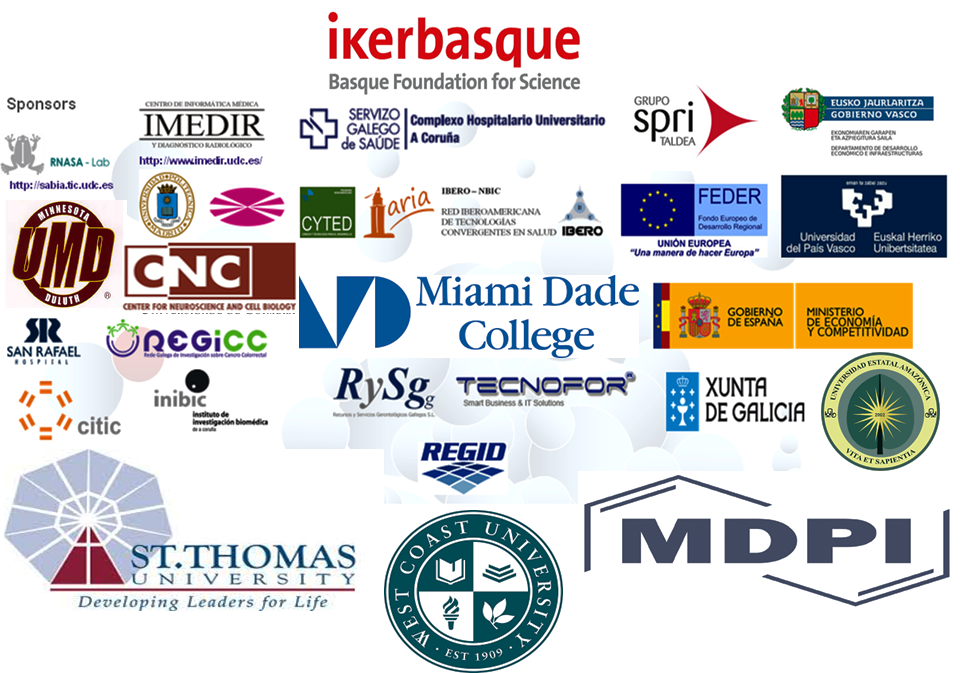
MOL2NET'18 CONGRESSES
02. USEDAT-04: USA-Europe Data Analysis Training Program Workshop, Cambridge, UK-Bilbao, Spain-Miami, USA, 2018
03. CHEMBIOINFO-04: Chem-Bioinformatics Congress Cambridge, UK-Chapel Hill and Duluth, USA, 2018
04. AIMEDIC-06: AI, Med. Info., & Biomed. Eng. Congress, Coruña, Spain-Miami, USA, 2018.
05. MODEC-03: Workshop on Natural Products and Agro-Industrial Procesess in Amazon, UEA, Puyo, Ecuador, 2018
06. CHEMBIOMOL-04: Chem. Biol. & Med. Chem. Workshop, Paraiba, Porto, Rostock, Germany-Galveston, Texas, USA, 2018
07. TECHLAWSCI-02: PANELFIT H2020 Tech. Law. & Sci. Challenges, Bilbao, Spain, Halden, Norway, Baltimore, USA, 2018
08. NANOBIOMAT-04: Nanotechnology & Biomaterials Sci. Congress, Jackson & Fargo, USA, 2018
09. NICEXSM-04: North-Ibero-American Congress on Exp. and Simul. Methods., Valencia, Spain-Talca, Chile-Miami, USA, 2018-2019
10. MOL2NET'18 Abstracts & Workshops
11. Session 11 (Empty)
12. Session 12 (Empty)
13. Session-13 (Empty)
14. Session-14 (Empty)
15. Session 15 (Empty)
16. Session 16 (Empty)
17. Session 17 (Empty)
18. Session 18 (Empty)
MOL2NET Chairman & Honor Advisory Committee
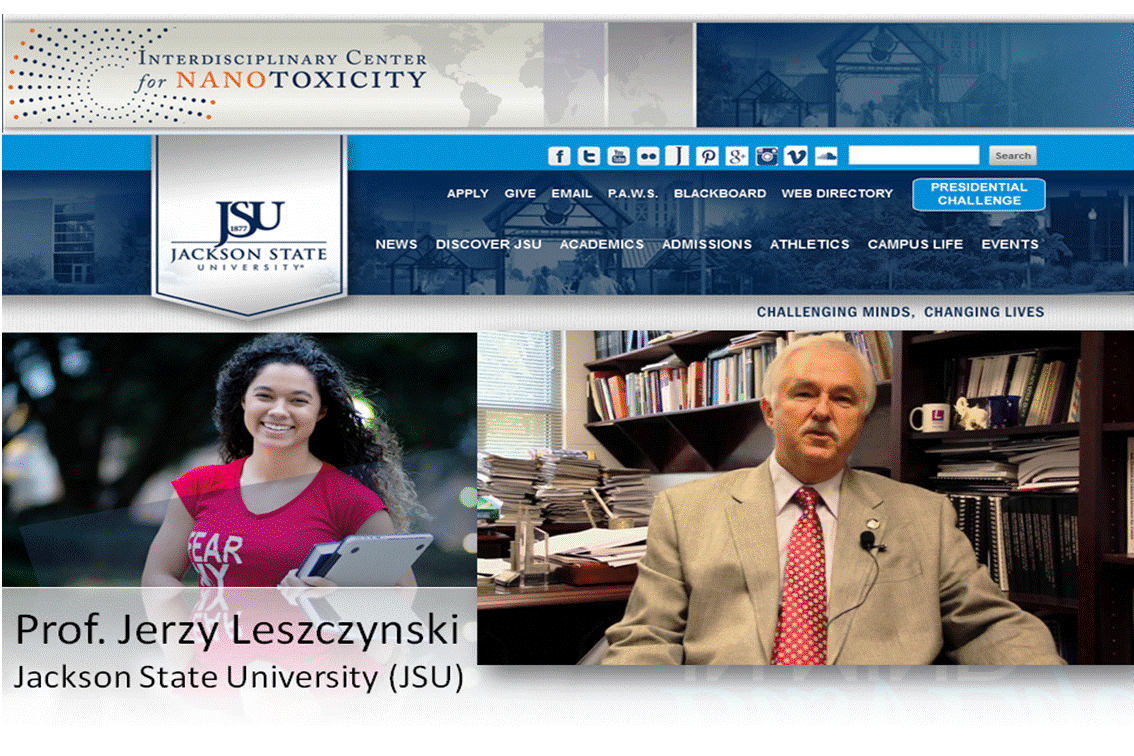
Prof. Jerzy Leszczynski, Dept. of Chemistry and Biochemistry Interdisciplinary Center for Nanotoxicity (ICN), Jackson State University (JSU), USA.
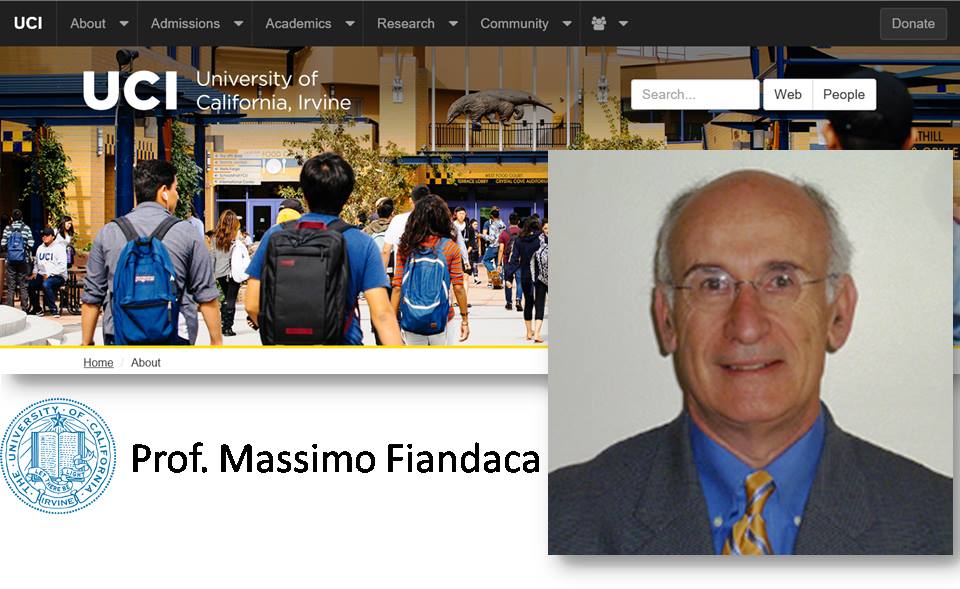
Prof. Massimo S. Fiandaca, Assoc. Prof., MD, Associate Professor in Residence Departments, School of Medicine, University of California, Irvine and Co-Director, Translational Laboratory and Biorepository (TLaB), Irvine, CA, USA.
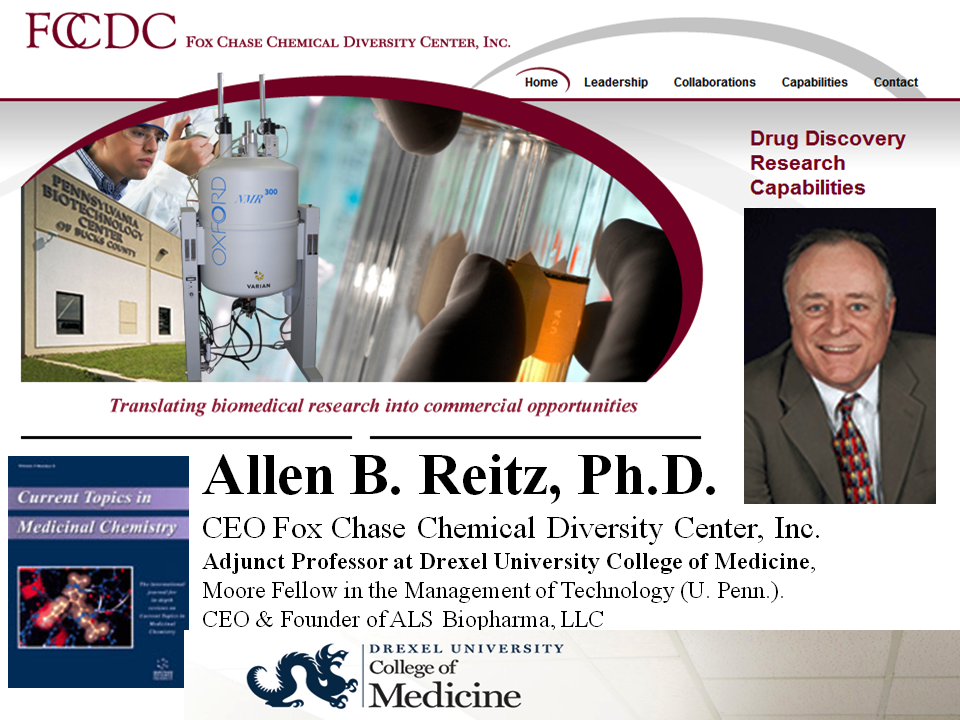
Dr. A.B. Reitz, Ph.D., CEO Fox Chase Chemical Diversity Center, Inc., Doylestown, PA, USA. Moore Fellow in the Management of Technology, University of Pennsylvania (Penn Engineering), Adjunct Professor at Drexel University College of Medicine, Founder CEO of ALS Biopharma, LLC. Editor-in-Chief of Curr Top Medicinal Chemistry
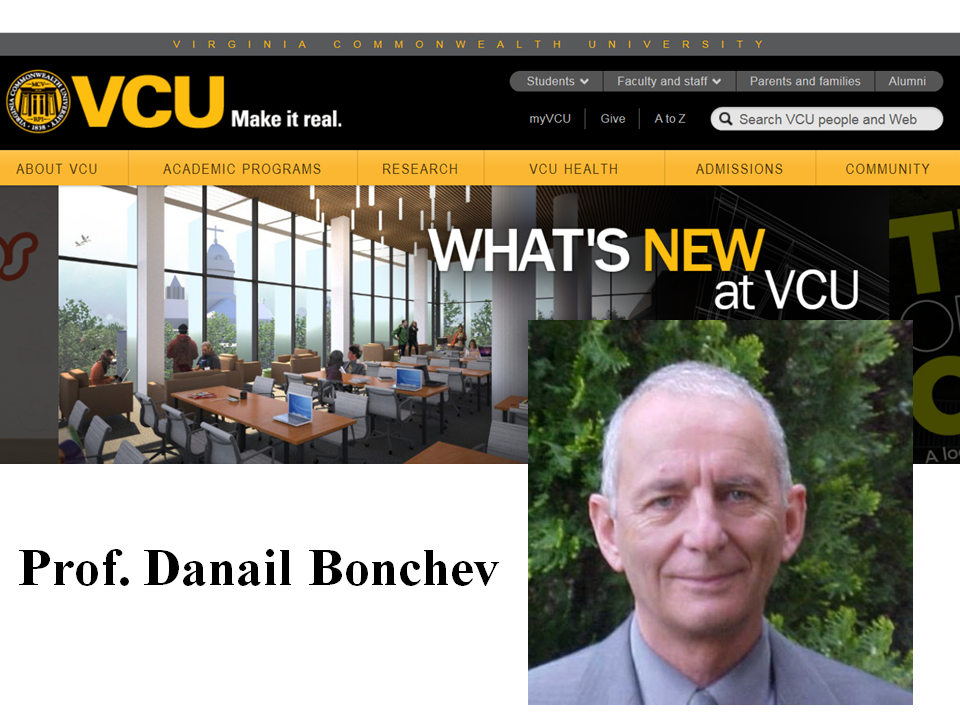
Prof. D. Bonchev, Director of Research on Bioinformatics, Center for the Study of Biological Complexity. Prof., Dept of Mathematics & Applied Mathematics, Virginia Commonwealth University (VCU), USA.
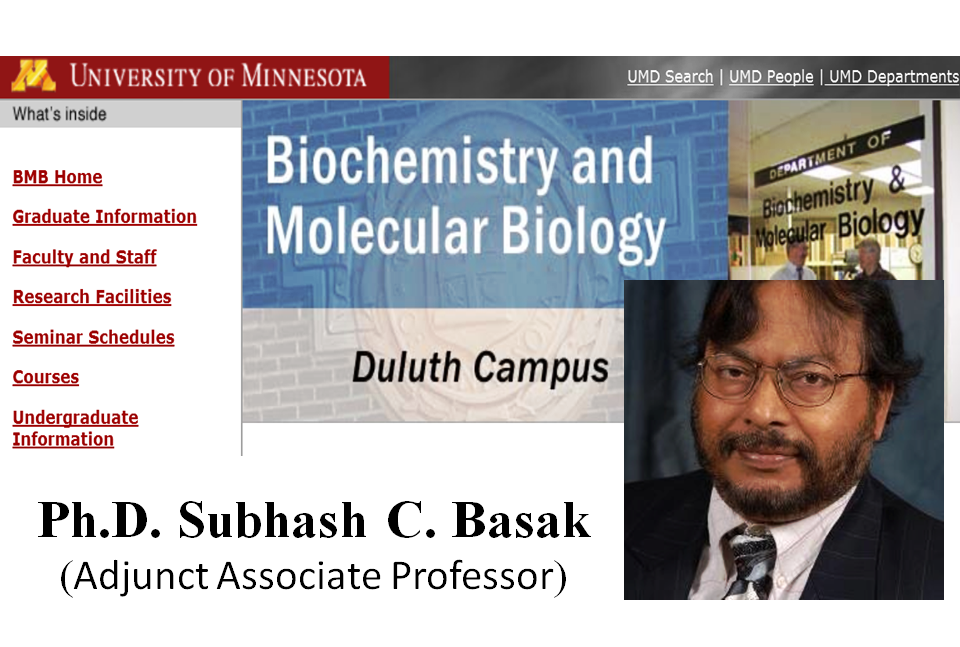
Dr. S.C. Basak, (1) Ph.D. Senior Scientist at Natural Resources Research Institute, Center for Water and the Environment (CWE), Duluth, MN, USA. (2) Adjunct Associate Professor, Department of Chemistry, University of Minnesota Twin Cities, MN, USA.
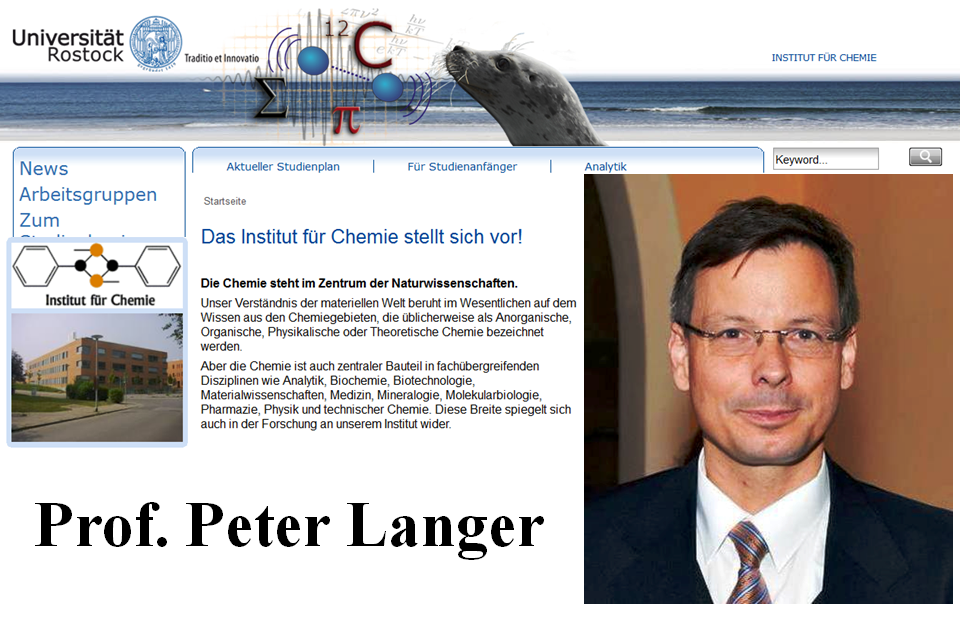
Prof. Dr. Peter Langer, Full Professor (C4) of Organic Chemistry, Vice Director Institute of Chemistry, University of Rostock, Head of the Department of Organic Chemistry. Universität Rostock Institut für Chemie Abteilung für Organische Chemie Albert-Einstein-Straße 3a 18059 Rostock.
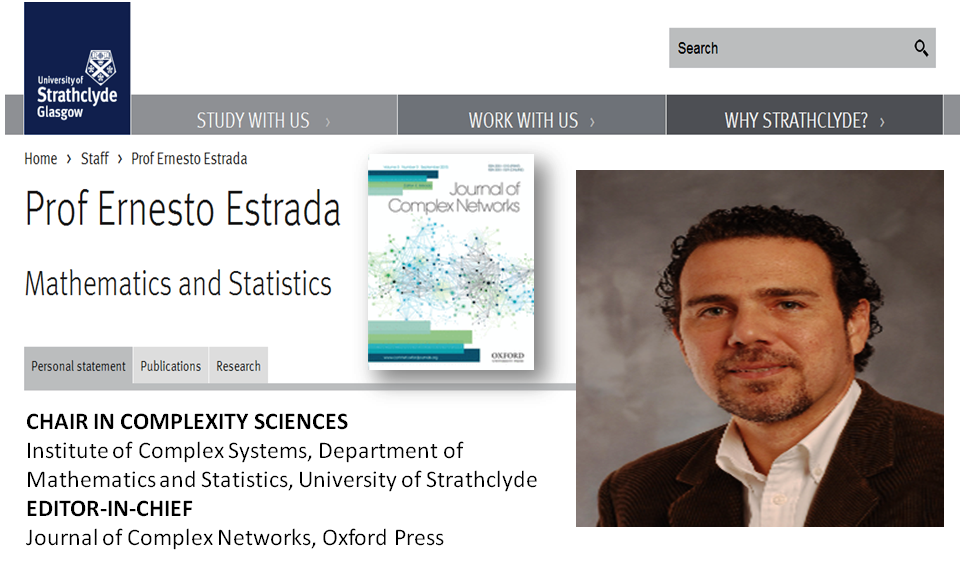
Prof. Ernesto Estrada Roger, Department of Mathematics and Statistics, Chair in Complexity Sciences, Institute of Complexity Systems, University of Strathclyde Glasgow, G1 1XQ, UK. Editor-in-Chief of Journal of Complex Networks, Oxford Academic Press.
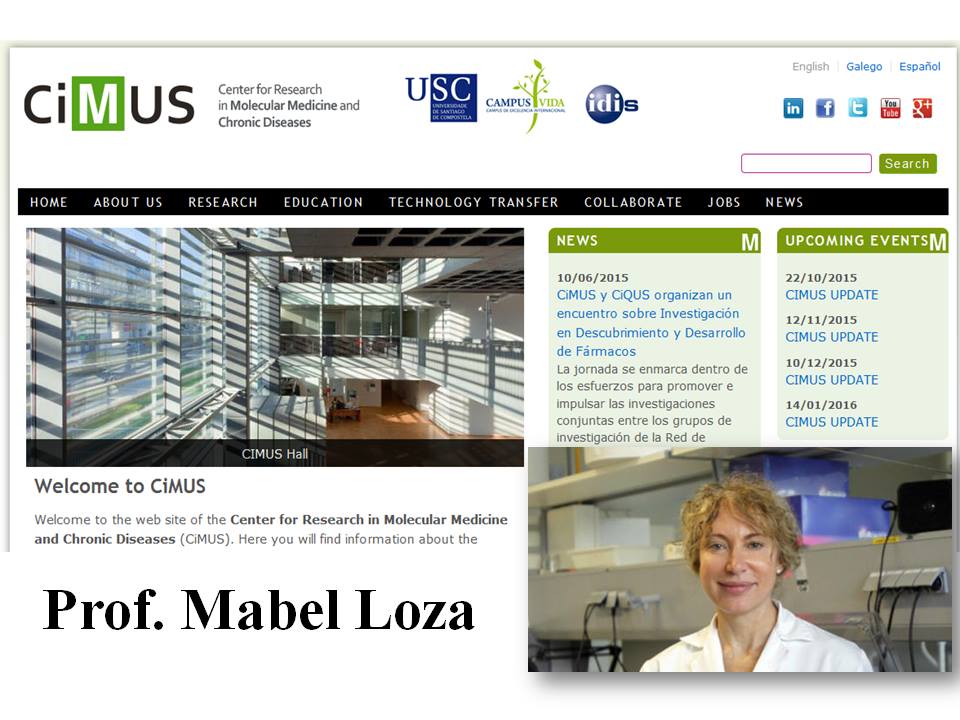
Prof. María Isabel Loza, Department of Pharmacology, USC, Spain.
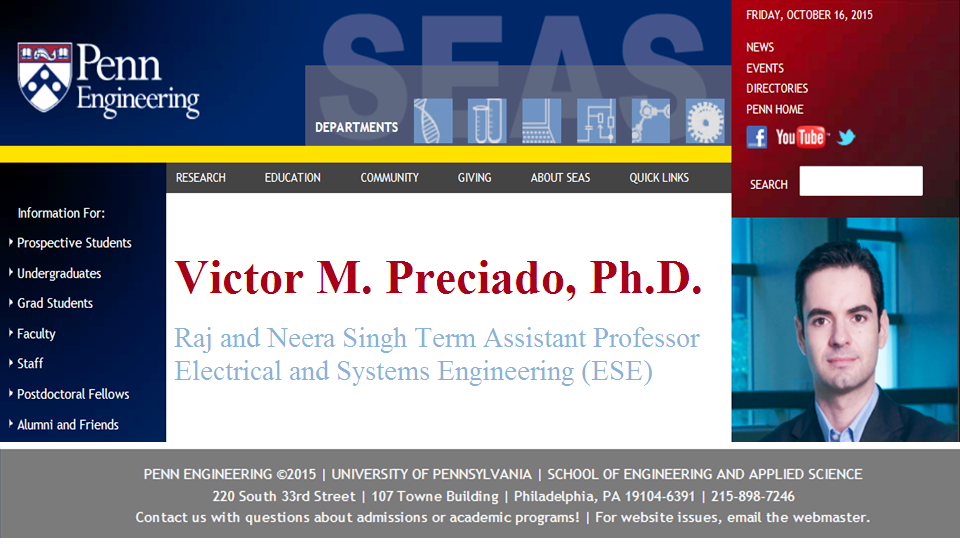
Prof. Victor M. Preciado, Raj and Neera Singh Term Assistant Professor Electrical and Systems Engineering (ESE),
Penn Engineering, University of Pennsilvania, USA.
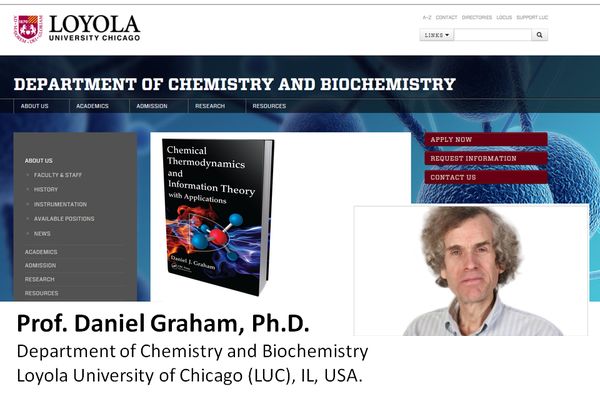
Prof. Daniel Graham, Professor of Chemistry, Loyola University of Chicago (LUC), USA.
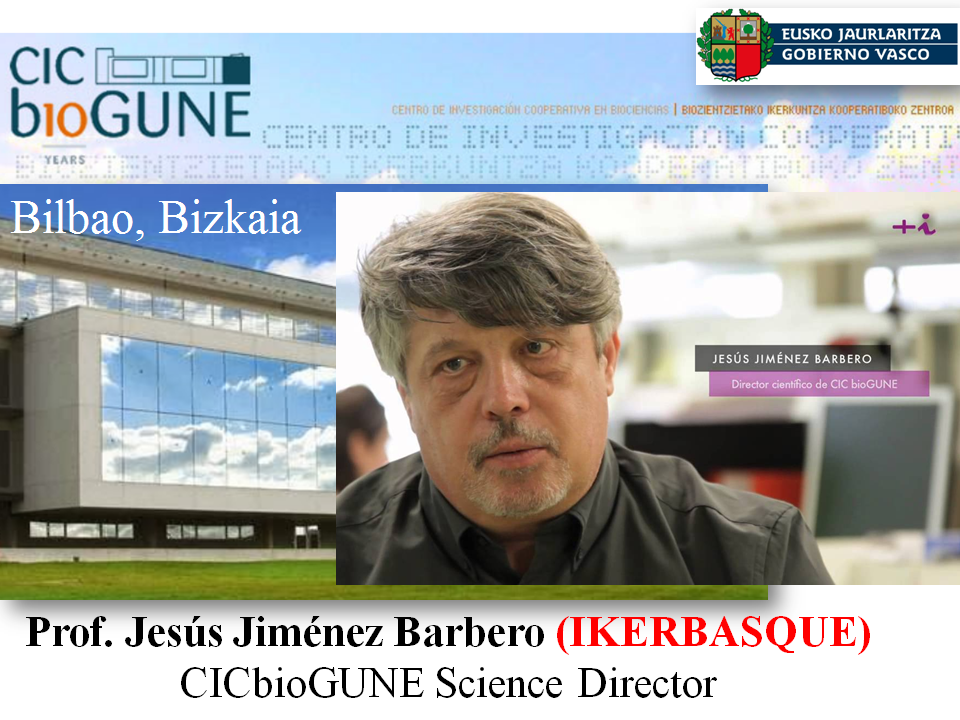
Prof. Jesús Jimenez Barbero , Ikerbasque Professor, Scientific Director of Center for Cooperative Research in Biosciences (CICBiogune), Biscay. President of Royal Society of Chemistry of Spain.
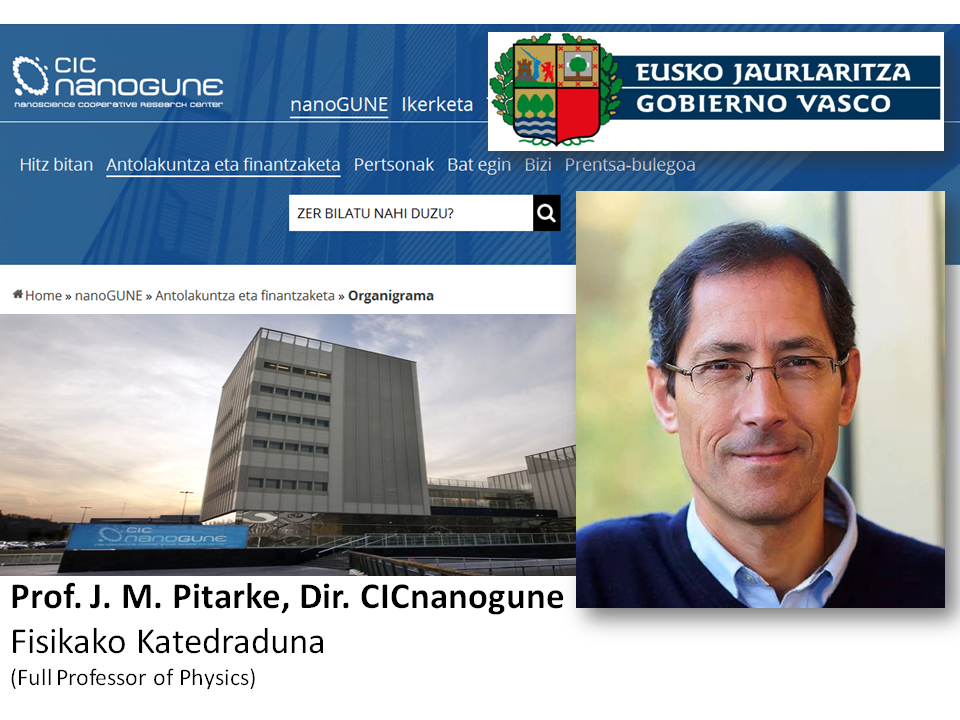
Prof. José María Pitarke , Prof. of Condesed Matter Physics, UPV/EHU, Director of Nanomaterials Cooperative Research Center (CICNanoGune), Tolosa Hiribidea, 76, E-20018, Donostia – San Sebastian, Gipuzkoa.
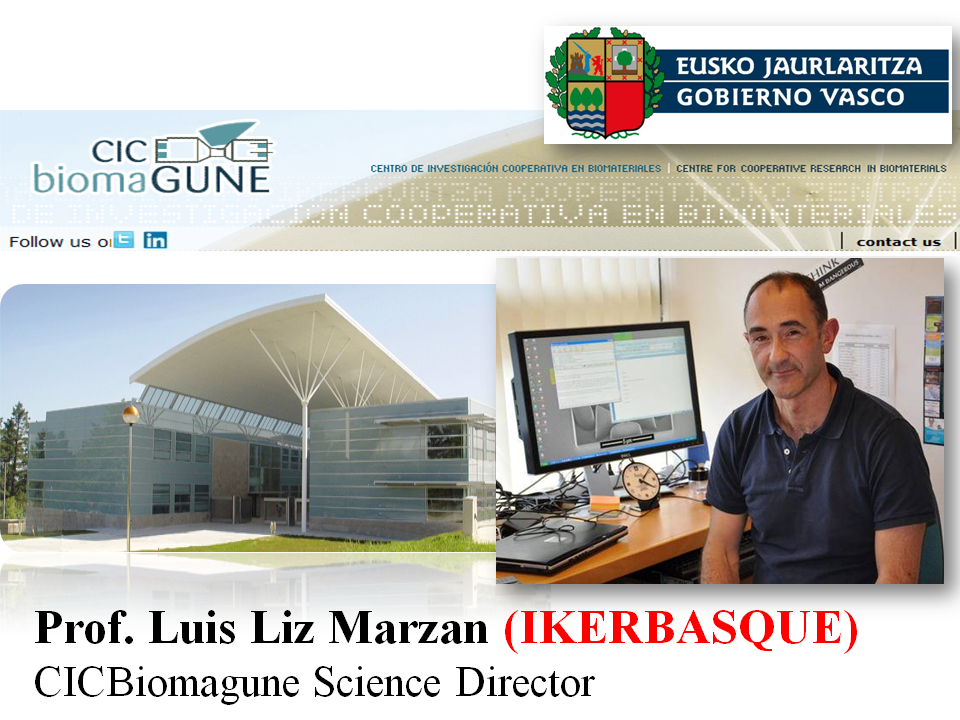
Prof. Luis M Liz-Marzán , Ikerbasque Professor, Scientific Director of Center for Cooperative Research in Biomaterials (CICbiomaGUNE), Gipuzkoa
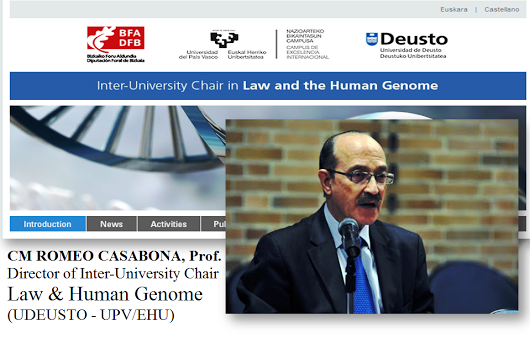
Prof. C.M. Romeo Casabona, Full Professor of Law, Director of Law & Human Genome, Chair, University of the Basque Country (UPV/EHU), Biscay..
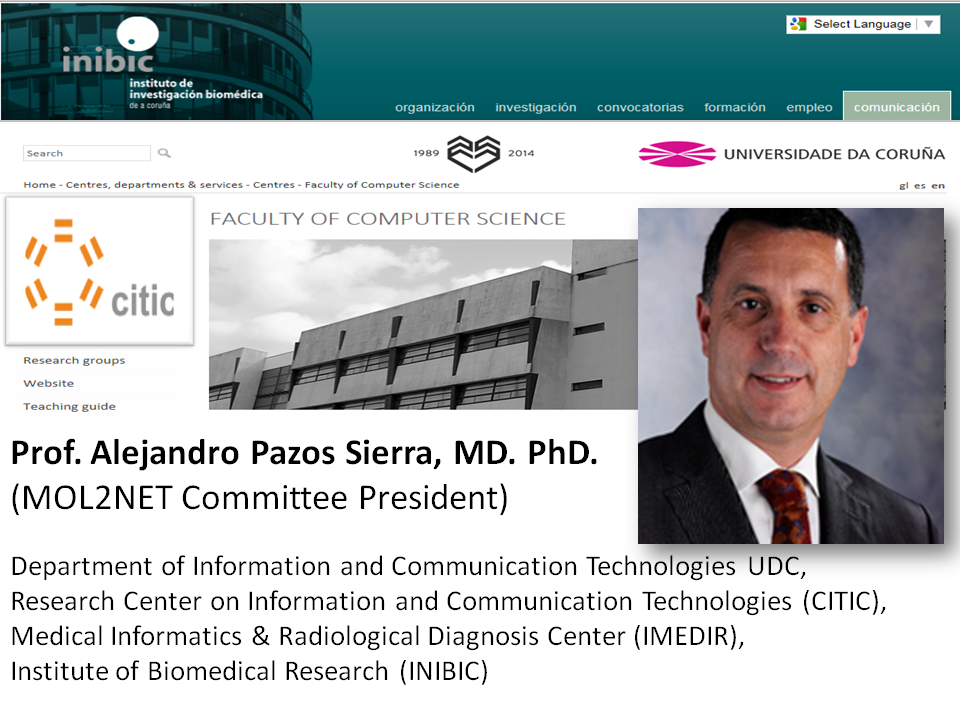
Prof. Alejandro Pazos, Ph.D., M.D., Chair and Director of Department of Computer Sciences, University of Coruña (UDC), Coruña, Spain.
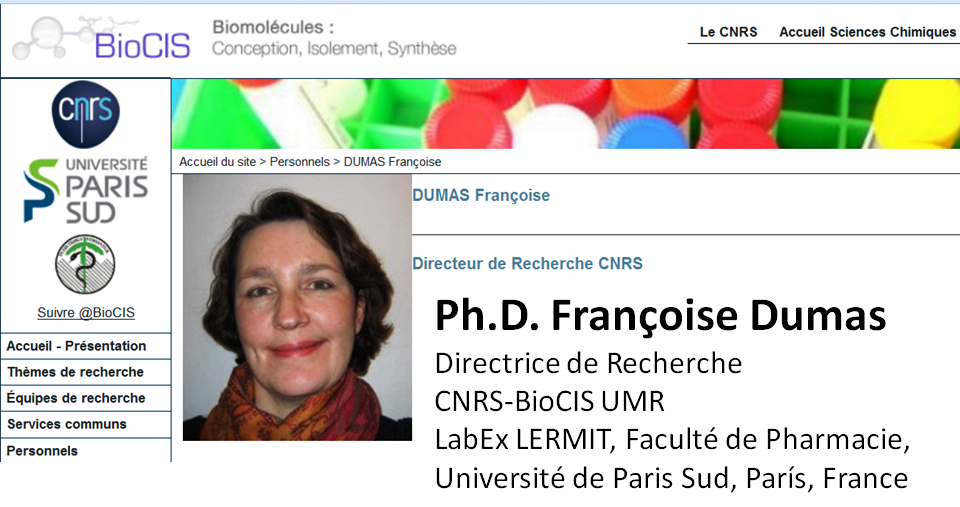
Prof. Françoise Dumas, Prof. Université Paris-Sud, Paris, France CNRS, Directrice de recherche.
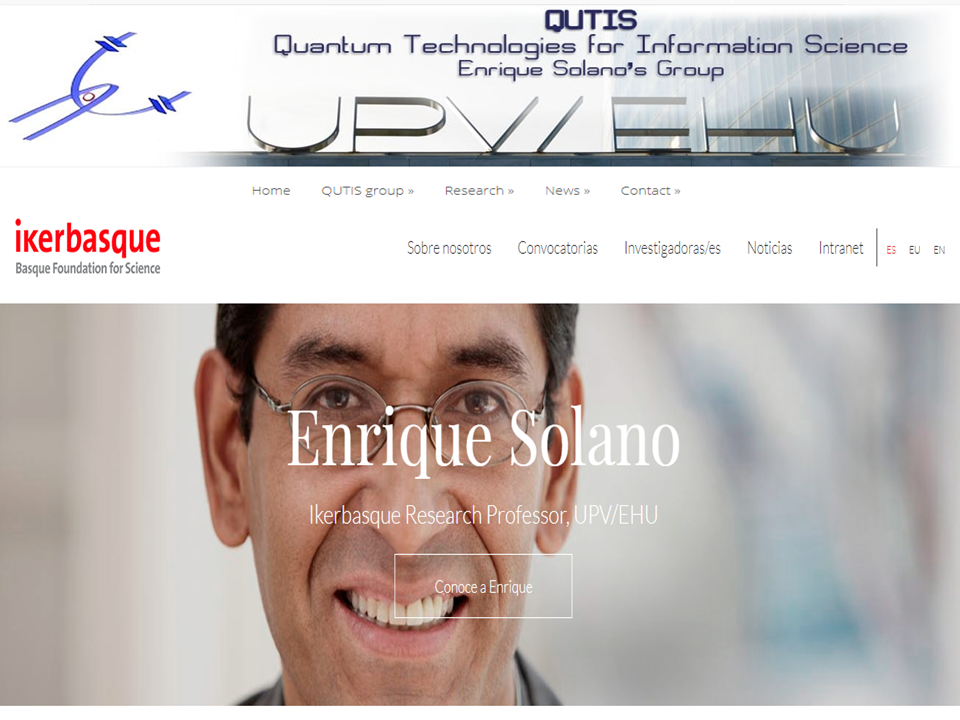
Prof. E. Solano, Ikerbasque Prof., Ikerbasque Website, Dept. of Physical Chemistry, Univ. of the Basque Country UPV/EHU, 48080 Bilbao, Spain

Prof. E. Domínguez Pérez, Emeritus Prof., Dept. of Organic Chemistry II, University of Basque Country (UPV/EHU), Leioa, Sarriena w/n, Bizkaia, Spain.
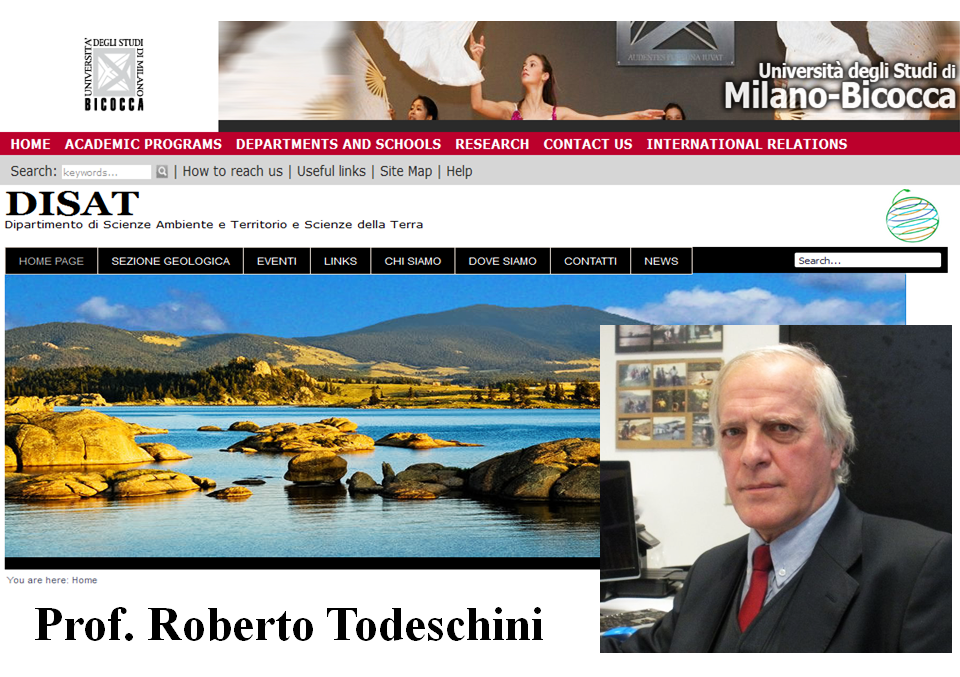
Prof. Roberto Todeschini, Professor of Chemometrics, Department of Environmental Sciences, University of Milano-Bicocca, Milano, Italy.
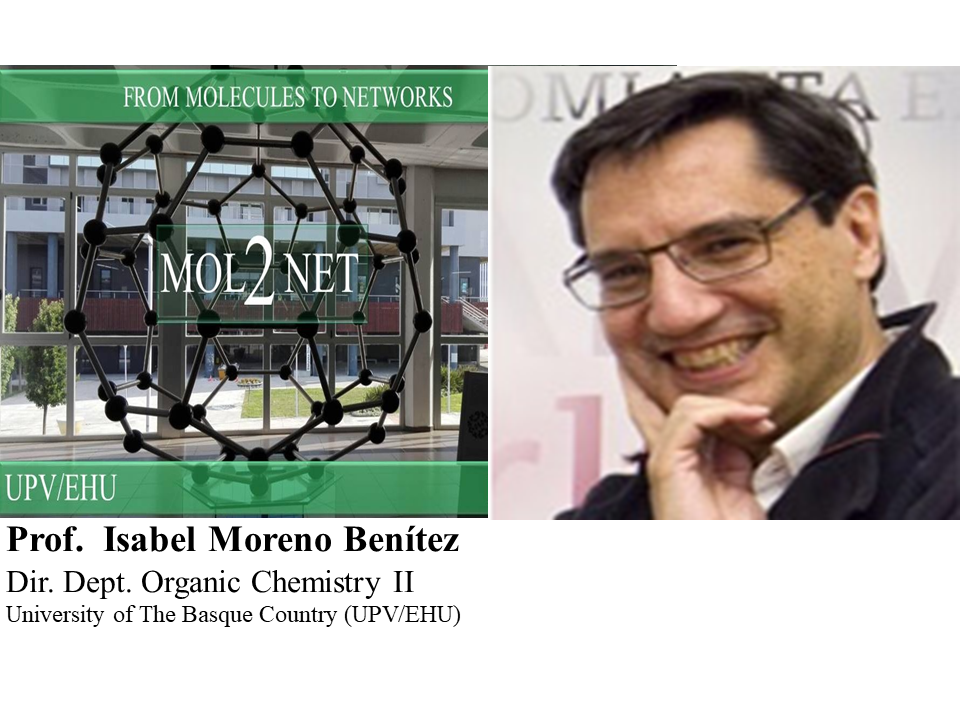
Prof. Miguel A. Gutierrez Ortiz, Dept. of Chemical Engineering, University of Basque Country (UPV/EHU), Campus Bizkaia, Leioa, Spain.
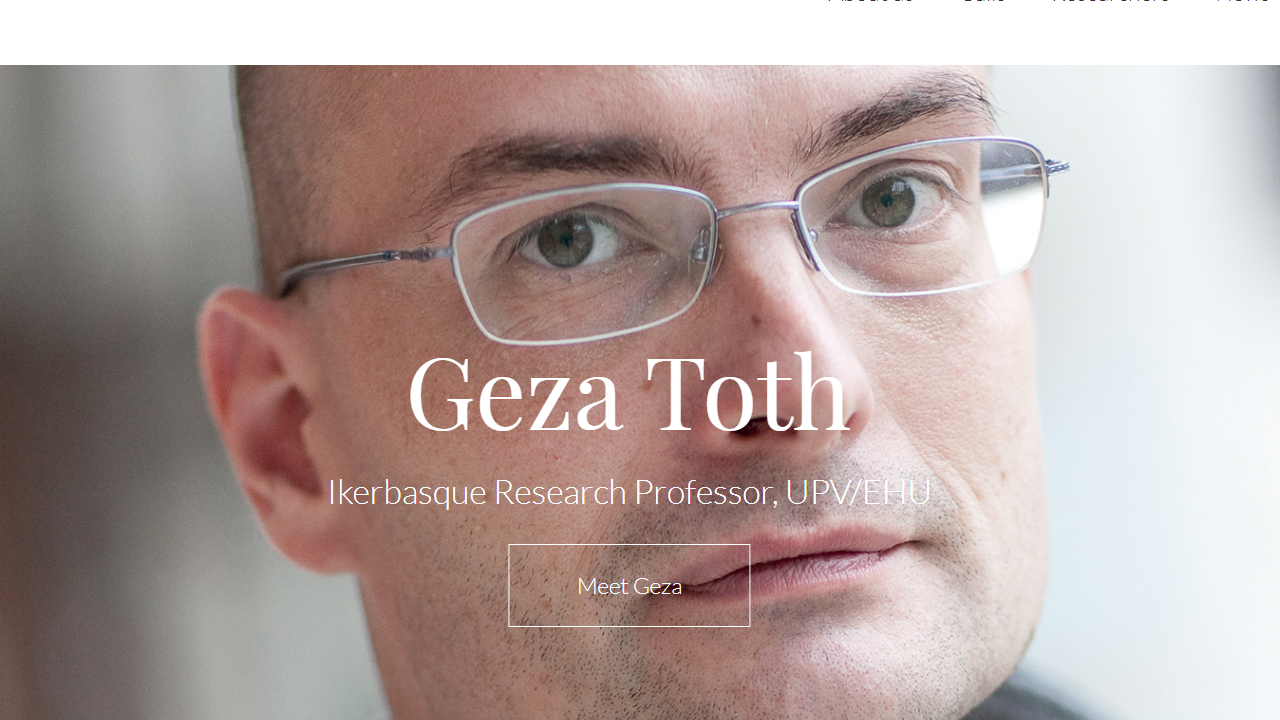
Prof. Geza Toth, Ikerbasque Professor, Department of Physics, University of the Basque Country (UPV/EHU), Campus Buscay, Spain.
Founder Chairman
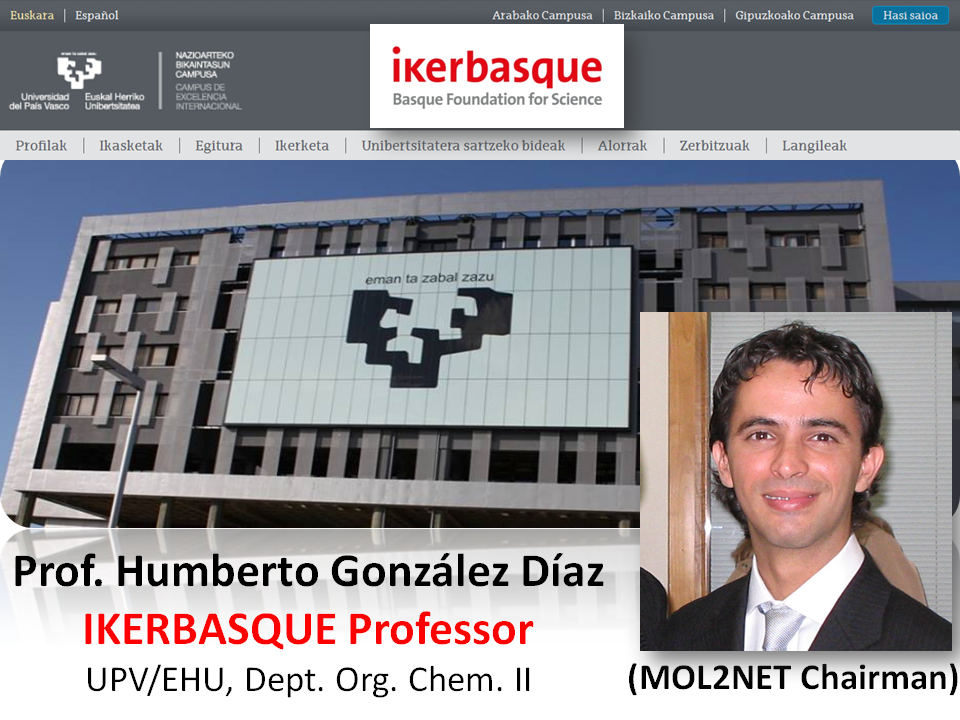
MOL2NET Chairman
(1) Dept. of Organic Chemistry II, University of the Basque Country UPV/EHU , 48940, Leioa, Biscay, Spain.
(2) IKERBASQUE, Basque Foundation for Science , 48011, Bilbao, Biscay, Spain.
MOL2NET HQ Institutions Committee
*Note: This committee is for MOL2NET Conference Series, to see the committees of each specific workshops associated to the conference visit the page of this workshop.
Headquarters Institutions Honor Committee
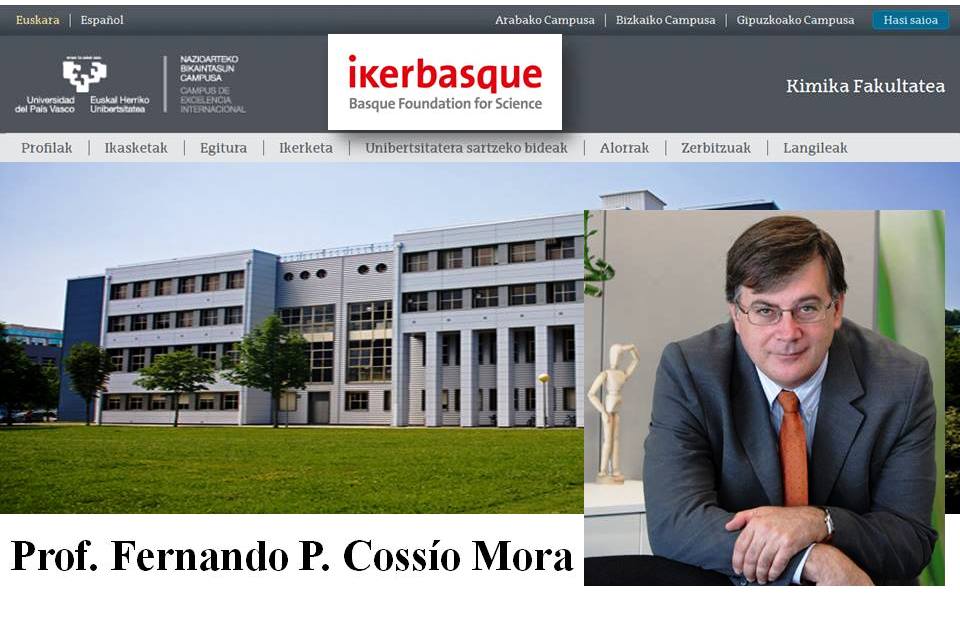
Prof. F.P. Cossío, Prof. Dept. of Organic Chemistry I, University of Basque Country (UPV/EHU), Donostia - San Sebastián Campus, Gipuzkoa.
(IKERBASQUE Foundation President)

Prof. Fernando Plazaola Muguruza, Dean Faculty of Science and Technology, University of The Basque Country (UPV/EHU), Leioa, Biscay, Spain.
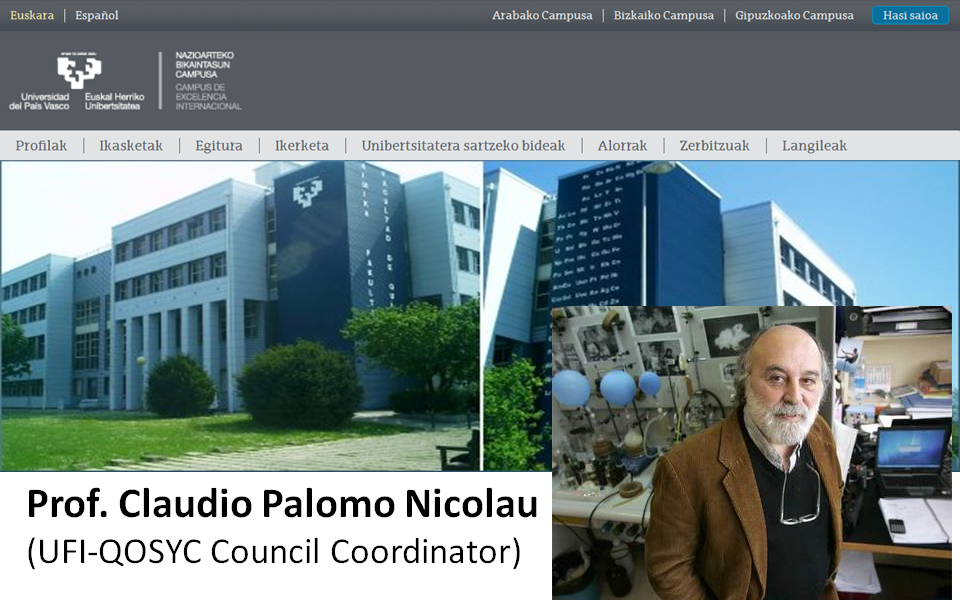
Prof. Claudio Palomo Nicolau, Director Department of Organic Chemistry I, University of Basque Country (UPV/EHU), Donostia - San Sebastián Campus, Gipuzkoa, Spain. (UFI-QOSYC Council Coordinator)
Prof. Maria Isabel Moreno Benítez, Director Dept. of Organic Chemistry II, University of Basque Country (UPV/EHU), Leioa, Sarriena w/n, Bizkaia.
Headquarters Committee Chairpersons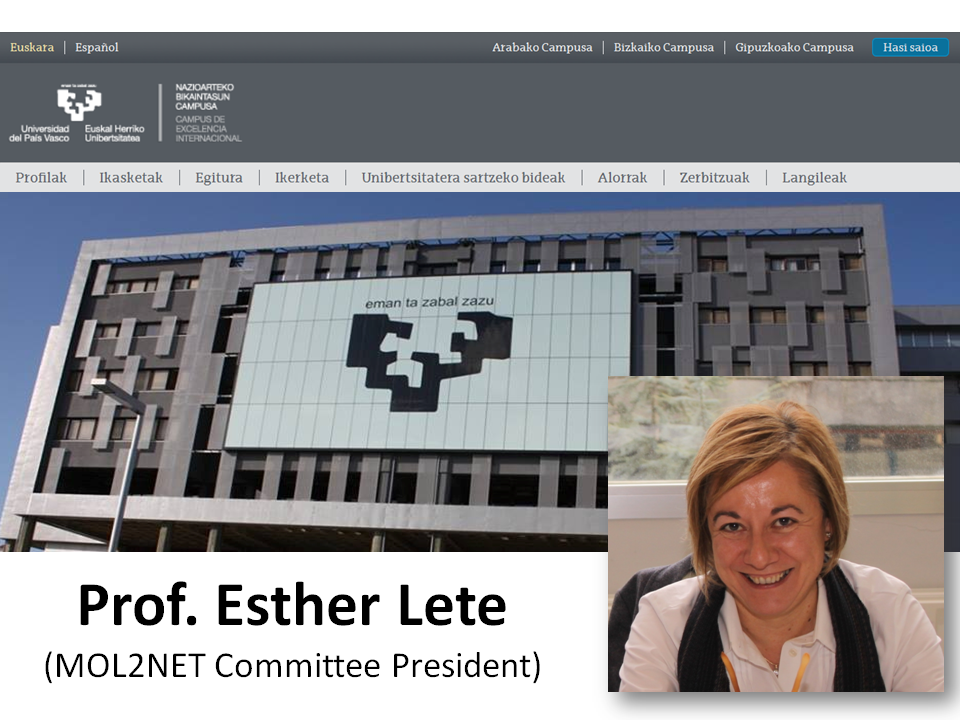
Prof. E. Lete, Prof. Dept. of Organic Chemistry II, University of Basque Country (UPV/EHU), Leioa, Sarriena w/n, Bizkaia.
(Coordinator Ph.D. Synth. & Ind. Chemistry)
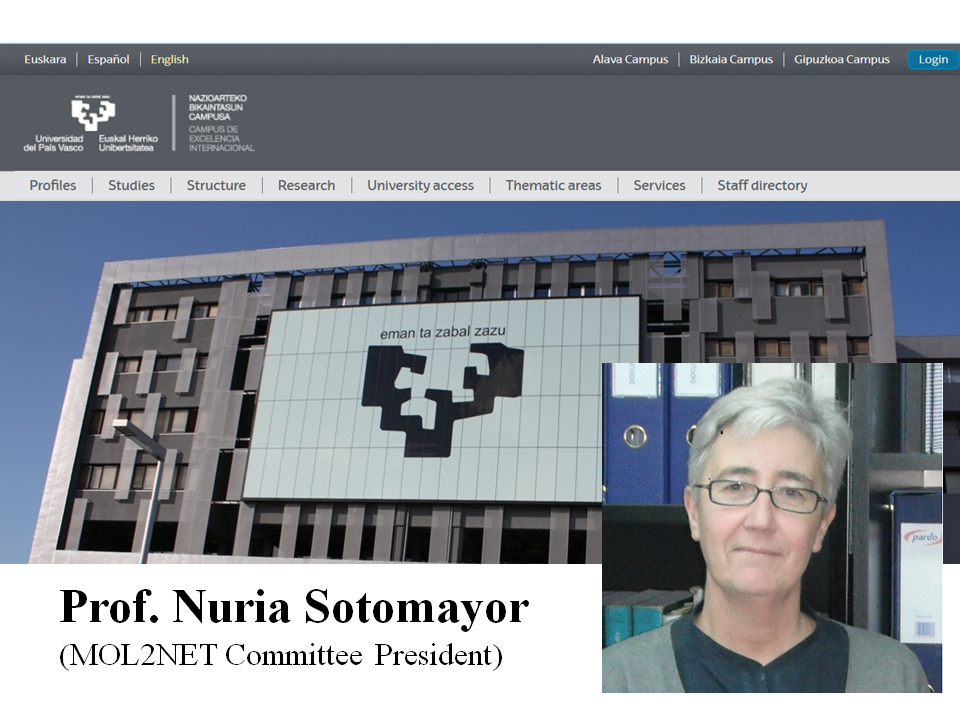
Prof. N. Sotomayor, Department of Organic Chemistry II, University of Basque Country (UPV/EHU), Leioa, Sarriena w/n, Bizkaia, Spain.
(Coordinator M.Sc. Synth. & Ind. Chemistry)
Thank you for your support!!!
MOL2NET Chairman
Prof. González-Díaz H., IKERBASQUE Professor, Email: gonzalezdiazh@yahoo.es
(1) Department of Organic Chemistry II, University of the Basque Country UPV/EHU , 48940, Leioa, Biscay, Spain.
(2) IKERBASQUE, Basque Foundation for Science , 48011, Bilbao, Biscay, Spain. ![]() ORCID: https://orcid.org/0000-0002-9392-2797
ORCID: https://orcid.org/0000-0002-9392-2797
MOL2NET Scientific Committee (Abroad)
*Note: This committee is for MOL2NET Conference Series, to see the committees of each specific workshops associated to the conference visit the page of this workshop.
Presidents of the Abroad Scientific Committee
President of Scientific Committee (Mathematics, Physics, Environmental, Atmospheric, and Complexity Sciences)
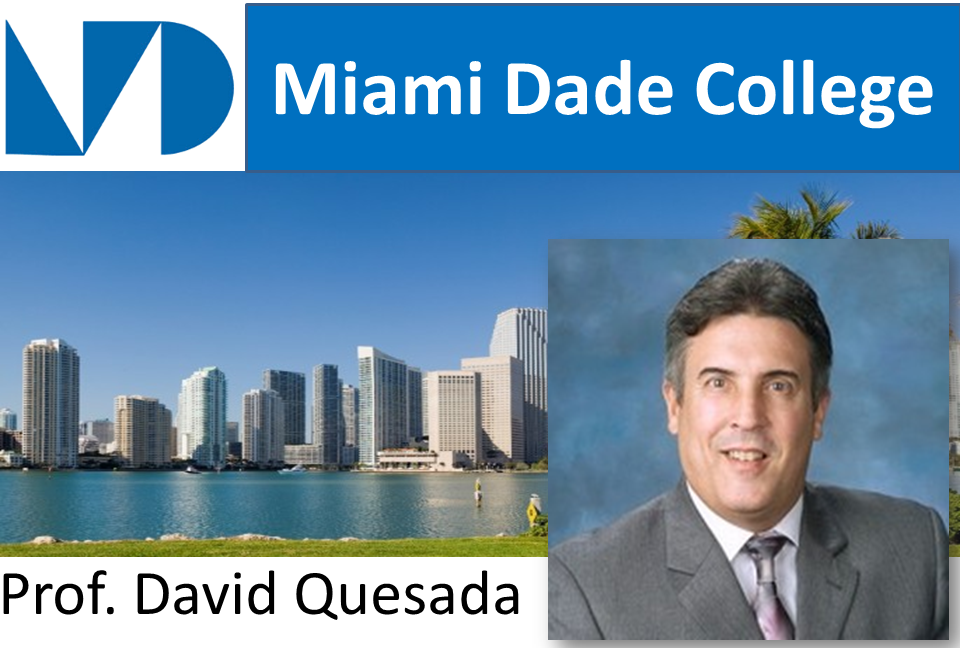
Prof. David Quesada (Email: dquesada@mdc.edu), Full Professor, Chair of Department of Mathematics, Miami Dade College (MDC), Miami, FL, USA. Chairman STU-MDC Summer Research Institute, (SRI09 Workshop Chairman, Miami, USA) (SRI08 Workshop Chairman, Miami, USA)
President of Scientific Committee (Polymers & Materials Sciences)
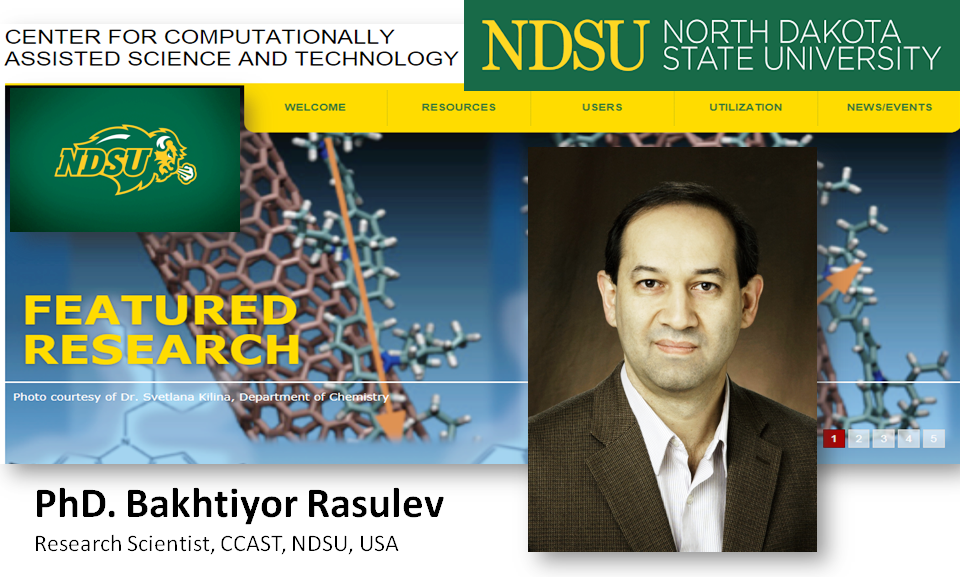
Prof. Bakhtiyor Rasulev, Department of Coatings and Polymeric Material, North Dakota State University (NDSU), Fargo, USA.
President of Scientific Committee (Computational Chemistry and Nanosciences)
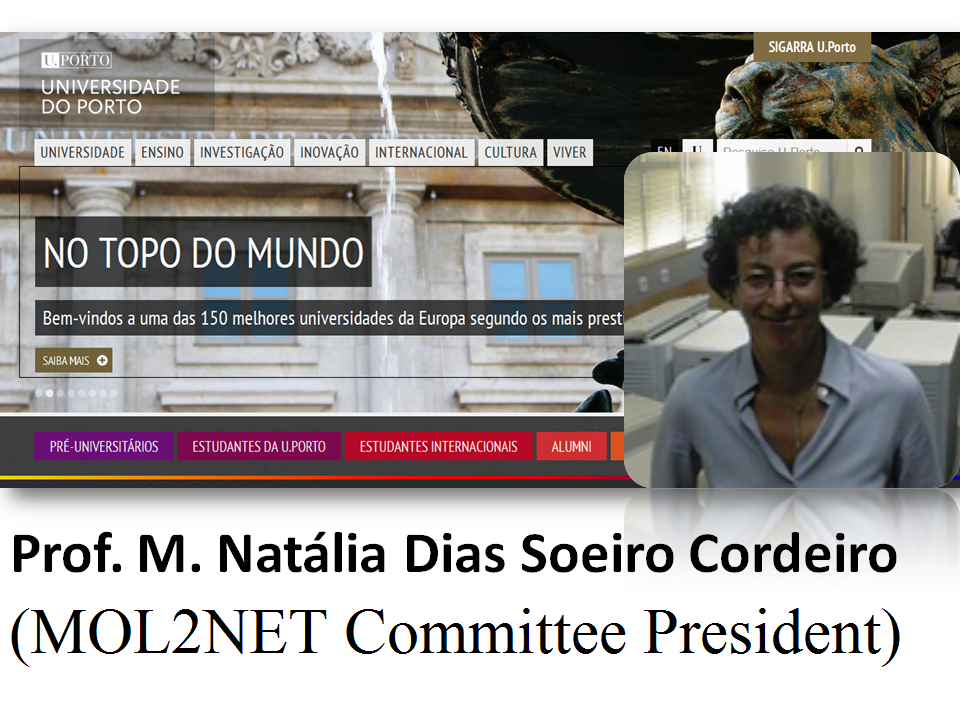
Prof. Natalia D.S. Cordeiro, Department of Chemistry and Biochemistry, Faculty of Sciences, University of Porto, Porto, Portugal.
President of Scientific Committee (Experimental Chemistry)
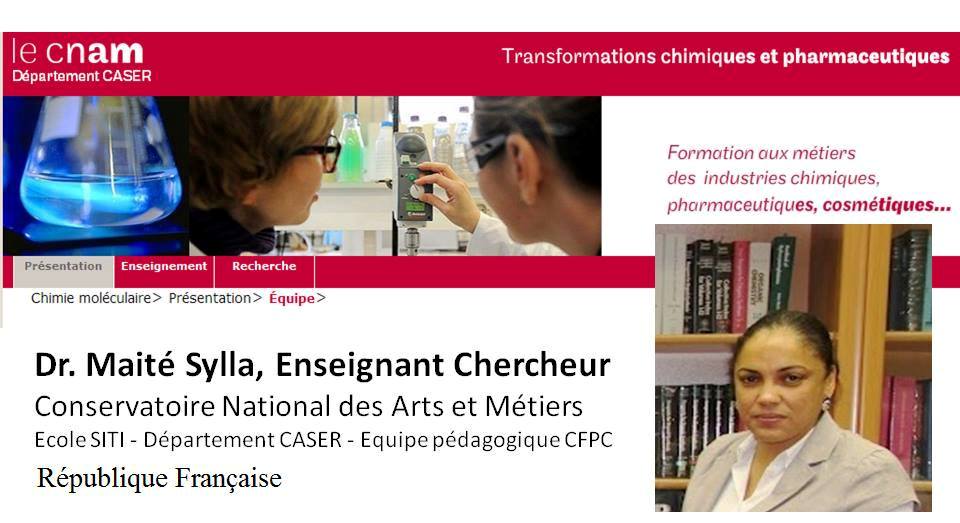
Abroad Scientific Committee (North America)
Prof. James J. Chou, Department Biological Chemistry & Molecular Pharmacology (BCMP), Harvard Medical School, Boston, USA.
Prof. James Robert Green, Assoc. Prof., Dept. of Systems and Computer Engineering, Carleton University, Ottawa, Canada.
Prof. Maykel Cruz-Monteagudo, Consultant, Univ. of Miami, Prof. West Coast University, Miami Campus, FL, USA.
Dr. Natalia Sizochenko, ICN, Dept. of Chemistry and Biochemistry, Jackson State University, Jackson, MS, USA.
Dr. Vanessa Aguiar-Pulido, Research Associate, Weill Cornell Medical College, New York City, NY, USA.
Dr. Robersy Sánchez, Eberly College of Science, Huck Institutes of the Life Sciences, The Pennsylvania State University, USA.
Dr. Shameer Khader, Program Director, Dept. of Medical Informatics and Research Informatics, Northwell Health, NY, USA.
Dr. Gerardo M. Casañola-Martin, Dept. of Coatings and Polymeric Materials, North Dakota State University (NDSU), Fargo, USA.
Members of Scientific Committee (Europe)
Prof. Fernanda Borges, Department of Chemistry and Biochemistry, University of Porto, Portugal.
Dr. Hector M. Díaz-Albiter, Wellcome Trust Centre for Molecular Parasitology, University of Glasgow , United Kingdom.
Porf. Igor Iosifovich Baskin, M.V. Lomonosov Moscow State University, Moscow, Russia.
Dr. Alessandro Guiliani, Istituto Superiore di Sanità (ISS), Italy.
Porf. Luisa Di Paola, Department of Engineering, Università Campus Bio-Medico, Rome, Italy.
Dr. Agnieszka Gajewicz, Assist. Prof., Faculty of Chemistry, University of Gdansk, Gdansk, Poland.
Dr. Irina Moreira, FCT Investigator, University of Coimbra, and Marie Curie Fellow at Utrecht University, Netherlands.
Dr. Riccardo Concu, FCT Post-doctoral Researcher, University of Porto, Porto, Portugal.
Members of Scientific Committee (Other Regions)
Prof. Kunal Roy, Department of Pharmaceutical Technology, Jadavpur University, Kolkata, India.
Prof. Yovani Marrero-Ponce, University San Francisco de Quito, Quito, Ecuador.
Prof. Carolina Horta Andrade, Universidade Federal de Goias, Setor Leste Universitario, Goiania, Brazil.
Prof. Marcus T Scotti, Universidade Federal da Paraíba, Campus IV, Paraíba, Brazil.
Thank you for your support!!!
MOL2NET Chairman
Prof. González-Díaz H., IKERBASQUE Professor, Email: mol2net.chair@gmail.com
(1) Department of Organic Chemistry II, University of the Basque Country UPV/EHU , 48940, Leioa, Biscay, Spain.
(2) IKERBASQUE, Basque Foundation for Science , 48011, Bilbao, Biscay, Spain. ![]() ORCID: https://orcid.org/0000-0002-9392-2797
ORCID: https://orcid.org/0000-0002-9392-2797
MOL2NET Scientific Committee (Local)
*Note: This committee is for MOL2NET Conference Series, to see the committees of each specific workshops associated to the conference visit the page of this workshop.
Chairperson Scientific Committee (Chemical Sciences) 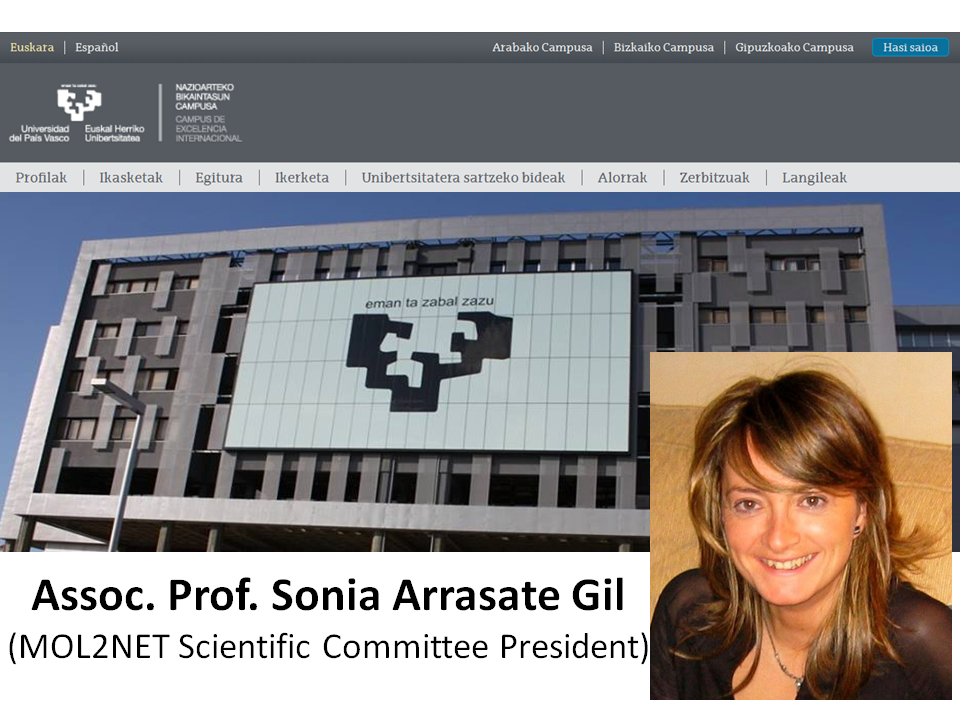
Prof. Sonia Arrasate, Department of Organic Chemistry II, University of Basque Country (UPV/EHU), Leioa, Sarriena w/n, Bizkaia.
Email: sonia.arrasate@ehu.eus
Chairperson Scientific Committee (Physical Sciences)
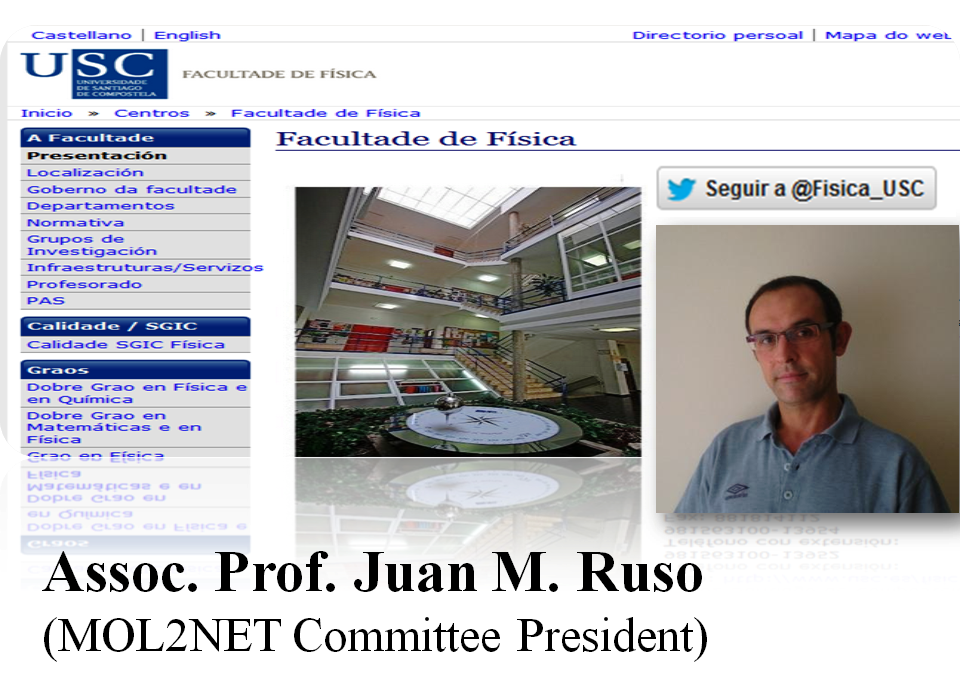
Prof. Juan M. Ruso, Department of Applied Physics, Faculty of Physics, University of Santiago de Compostela (USC), Spain.
Email: juanm.ruso@usc.es
Chairperson Scientific Committee (Neurosciences)
Prof. Shira Knafo, IKERBASQUE Professor, Molecular Cognition Laboratory, (1) Biophysics Institute (CSIC, UPV/EHU), Scientific and Technological Park of Biscay. University of The Basque Country UPV/EHU, Biscay, Spain. Ikerbasque, Basque Foundation for Science. (2) Ben-Gurion University of the Negev Faculty of Health Sciences: Beer Sheva, Southern, Israel.
Chairperson Scientific Committee (ICT & Legal Informatics)

Dr. Aliuska Duardo Sanchez (Ph.D. Legal Informatics), Chair in Law & The Human Genome Research Group, Faculty of Law, University of The Basque Country UPV/EHU, Leioa (Bilbao), Biscay, PANELFIT H2020, Project Manager & EDC Board Coordinator, Europe Commission. Email: aliuska.duardo@ehu.es
Scientific Committee Members
Deusto Tech Research Center, University of Deusto
Prof. Enrique Onieva, Lect. & Researcher, Big Data, Data Mining and Intell. Transp. Systems
BioDonostia Health Research Institute
Prof. Marcos J. Araúzo-Bravo, Ikerbasque Professor, Bioengineering
CIC bioGUNE, Center for Cooperative Research in Biosciences
Prof. Nicola Abrescia, Ikerbasque Professor, Structural Virology Laboratory
University of Santiago de Compostela (USC)
Prof. Julio Seijas , Dept. of Organic Chemistry, Faculty of Sciences, Campus Lugo, USC, Spain.
Prof. Eugenio Uriarte Villares, Dept. of Organic Chemistry, USC, Spain.
Prof. Florencio Martínez Ubeira, Dept. of Microbiology and Parasitology, USC, Spain.
Prof. María Isabel Loza, Department of Pharmacology, USC, Spain.
Prof. Ramón J. Estévez Cabanas, Dept. of Organic Chemistry, USC, Spain.
Prof. Emilio Martinez-Nunez, Dept. of Physical Chemistry, USC, Spain.
University of Vigo (UVIGO)
Prof. Yagamare Fall, Dept. of Organic Chemistry, University of Vigo (UVIGO), Vigo, Spain.
Scientific Committee Members (UPV/EHU)
Prof. Claudio Palomo Nicolau, Director Department of Organic Chemistry I, UPV/EHU, Campus Gipuzkoa
Prof. Francisco Palacios Gambra, Department of Organic Chemistry I, UPV/EHU, Campus Vitoria
Prof. Jose Luis Vicario, Department of Organic Chemistry II, UPV/EHU, Campus Biscay
Prof. Javier Meana, Department of Pharmacology, Faculty of Medicine, UPV/EHU, Campus Biscay
Prof. Néstor Etxebarria Loizate, Dept. Analytical Chemistry, UPV/EHU, Campus Biscay
Prof. Luis Lezama, Department of Inorganic Chemistry, UPV/EHU, Campus Biscay
Prof. Gotzon Madariaga, Department of Physics of Condensed Matter, UPV/EHU, Campus Biscay
Prof. Rosa M. Alonso, Department of Analytical Chemistry, UPV/EHU, Campus Biscay
Prof. Mª Isabel Moreno, Dir. Dept. of Organic Chemistry II, UPV/EHU, Campus Biscay
Prof. Imanol Tellitu Cortazar, Sec. Dept. of Organic Chemistry II, UPV/EHU, Campus Biscay
Prof. Jose Luis Vilas, Dir. Dept. of Physical Chemistry, UPV/EHU, Campus Biscay
Prof. Maria Luisa Carrillo Fernández, Dept. of Organic Chemistry II, UPV/EHU, Campus Biscay
Prof. Efraim Reyes Martín, Dept. of Organic Chemistry II, UPV/EHU, Campus Biscay
Prof. Uxue Uria Pujana, Dept. of Organic Chemistry II, UPV/EHU, Campus Biscay
Prof. Raúl SanMartín Faces, Dept. of Organic Chemistry II, UPV/EHU, Campus Biscay
Prof. Mª Teresa Herrero Corral, Dept. of Organic Chemistry II, UPV/EHU, Campus Biscay
Prof. Eneritz Anakabe Iturriaga, Department of Organic Chemistry II, UPV/EHU, Campus Biscay
Prof. Carmen Iriondo Gabilondo, Dept. of Organic Chemistry II, UPV/EHU, Campus Biscay
Prof. Mario Piris, Ikerbasque Prof., Donostia International Physics Center (DIPC), UPV/EHU, Campus Gipuzkoa
Prof. Inmaculada Arostegui, Dept. of Applied Mathmatics and Statistics, UPV/EHU, Campus Biscay
Prof. Aresatz Usobiaga, Department of Analytical Chemistry, UPV/EHU, Campus Biscay
Prof. Maite Insausti, Department of Inorganic Chemistry, UPV/EHU, Campus Biscay
Prof. Izaskun Gil de Muro, Dept. of Inorganic Chemistry, UPV/EHU, Campus Biscay
Ph.D. Jose Manuel Laza Terroba, Dept. of Physical Chemistry, UPV/EHU, Campus Biscay
Prof. Ailette Prieto Sobrino, Dept. of Analytical Chemistry, UPV/EHU, Campus Biscay
Prof. Jose Luis Ayastuy Arizti, Dept. of Chemical Engineering, UPV/EHU, Campus Biscay
Prof. Irantzu Barrio, Ph.D. Department of Applied Mathematics and Statistics, UPV/EHU, Campus Biscay
PhD. Marta G. Lete, Dept. of Biochemistry and Molecular Biology, UPV/EHU, Campus Biscay
Thank you for your support!!!
MOL2NET Chairman
Prof. González-Díaz H., IKERBASQUE Professor, Email: gonzalezdiazh@yahoo.es
(1) Department of Organic Chemistry II, University of the Basque Country UPV/EHU , 48940, Leioa, Biscay, Spain.
(2) IKERBASQUE, Basque Foundation for Science , 48011, Bilbao, Biscay, Spain. ![]() ORCID: https://orcid.org/0000-0002-9392-2797
ORCID: https://orcid.org/0000-0002-9392-2797
MOL2NET Program & Schedule
MOL2NET Workshops/Sections Schedule
General Schedule
MOL2NET International Conference Series on Multidisciplinary Sciences, MDPI Sciforum, Basel, Switzerland has online sections (3) and workshops (>10) associated. The conference runs officially from Oct-05 to Dec-20 (of the year in course) at the online platform SciForum maintained by the editorial MDPI, Basel, Switzerland. However, the platform is open from Feb-15 to Dec-20 of the year in course (MOL2NET-03 in 2017, MOL2NET-04 in 2018, etc.) for practical reasons; e.g., accommodation of many workshops in different dates along the year, reception of communications, etc.
Schedule for Submission and Publication of communications
As we mentioned before, despite the official dates the online sections (1-3) open at the beginning of the year in course (Feb-15) and are open all the year for submissions of communications in order to enable the accommodation of all workshops in different dates along the year. The associated workshops open in different dates along the year (see specific workshop pages). Submission of papers to all sections/workshops is open until Dec-15 of the year in course (2018 for present edition). The publication of communications is continuous all the year upon acceptance.
Schedule for Online participation
After publication of papers is closed we open the online platform from Dec-15 to Dec-20 of the year in course (2018 for present edition) for online participation. The authors will be able to post online comments and/or answers to comments in this workshop/section and also in the other general sections and/or >10 international workshops of the MOL2NET conference (many of them also run both online and in person). The participants are entitled to receive participation certificates for MOL2NET conference and all the workshops they participate upon request to the respective chairpersons. See committees of MOL2NET and each workshop.
Schedule for in person participation
Many of the workshops associated to MOL2NET are going to be held also in person (face-to-face) in different universities of USA, Spain, Italy, Mexico, Chile, etc. This in person workshops have specific schedules in parallel to their online versions. Please, go to the homepages of these workshops and/or contact their chairpersons for further details.
MOL2NET Assoc. Journals Issues



Entropy (Call for Papers): Special issue entitled Graph and Network Entropies. Journal Entropy (ISSN 1099-4300), JCR IF = 1.821. Topics: network sciences; walk entropies; algegraic graph theory; spectral methods; matrix functions. Editor: Prof. Dr. Ernesto Estrada, Department of Mathematics & Statistics, University of Strathclyde, Glasgow G11XQ, UK.


Email: dquesada@mdc.edu, Prof. González-Díaz H., IKERBASQUE Professor, Dept. of Organic Chemistry II, University of the Basque Country UPV/EHU , 48940, Leioa, Biscay, Spain. Email: mol2net.chair@gmail.com
MOL2NET Hands-on Training Courses
(Year-round Open Call for Applications)
Type of Course: Research Internship Training Courses for Sabbatical Professors, Post-Doc Associates, or PhD, MSc, or Degree Students (Summer internships) coming from aborad or for our university.
Benefits for Students:
(1) Publication of communications in MOL2NET Conference Workshops in Miami Dade College, West Coast University, University of Minnesota (USA), Conservatoire national des arts et métiers (France), etc. (2) Publication of Scientific Papers in International Journals.
Course Duration: PhD Students (upto 1 Year), MSc Students (upto 4 months), Degree Students: Jun-15 to Jul-30.
Course seats: 15, Students Nationality: Worldwide, Attendance Certificate: Delfin certificate (program students)
Enrollment & Fees: Free of cost (no enrollment fees will be levied to students), however scholarship or other funds must cover travel, living, and insurance.

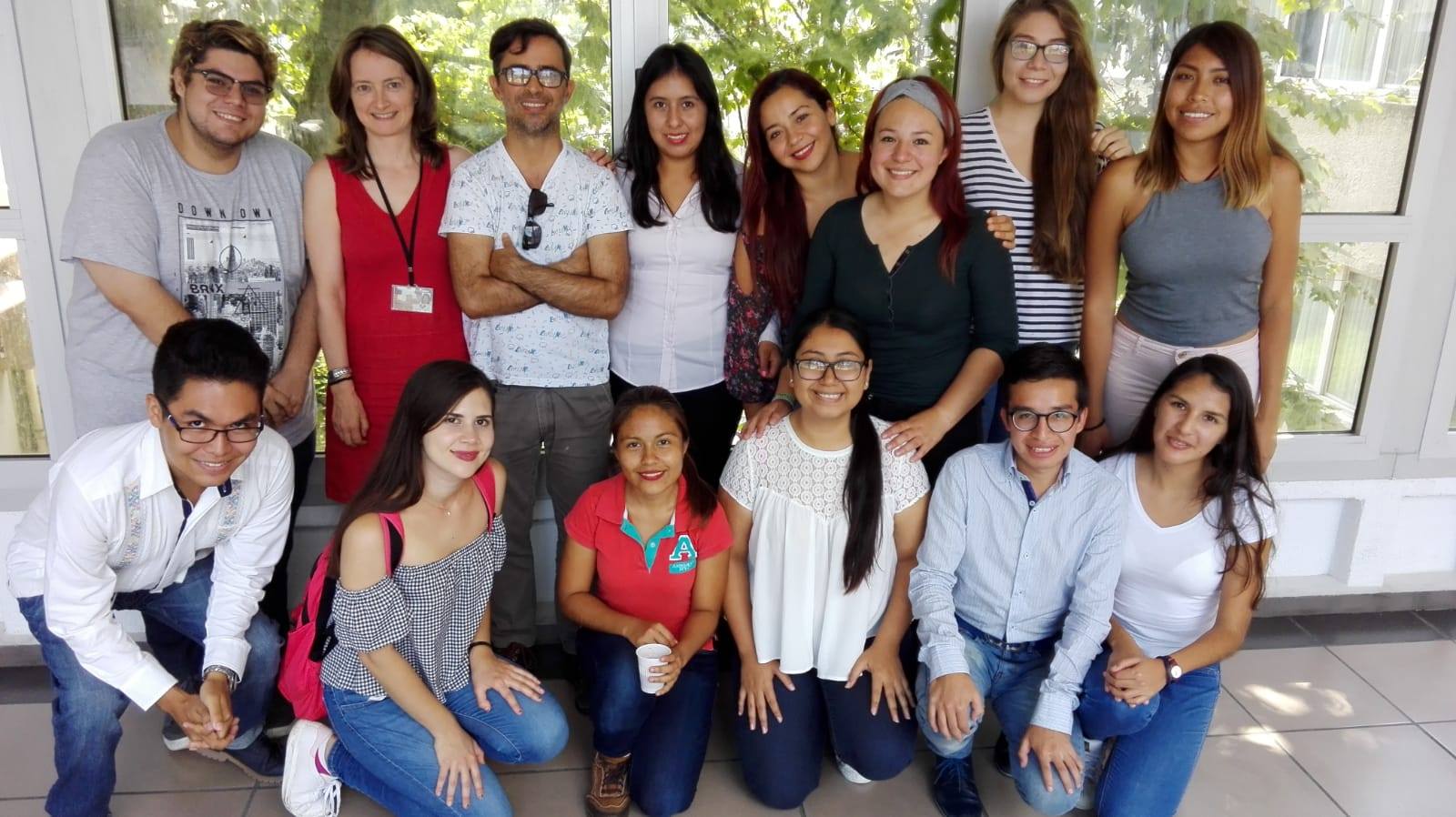
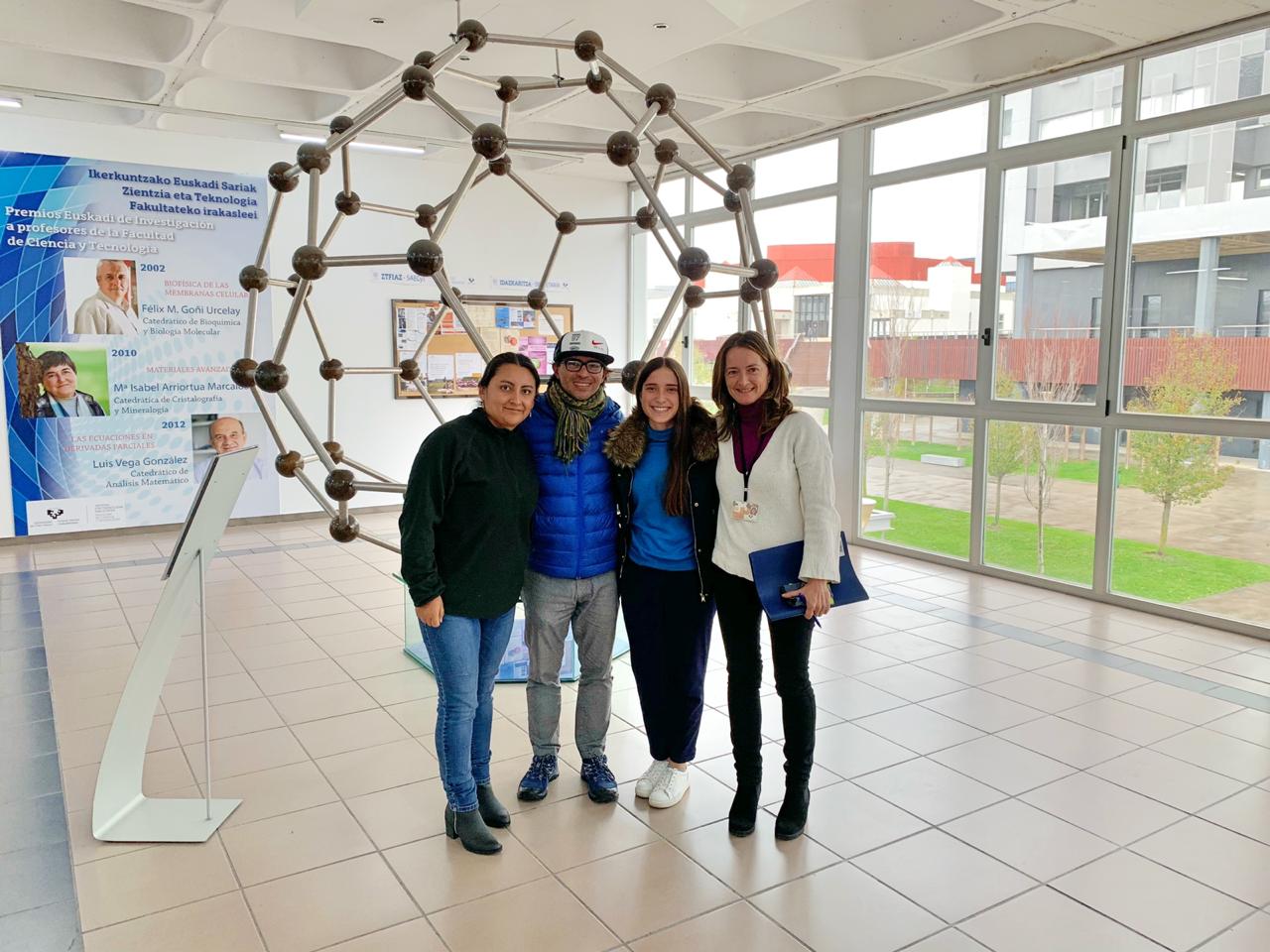

COURSE (2): STU-MDC-MOL2NET SUMMER RESEARCH INSTITUTE: APPL. PHYS., MATHS., MOL. BIOL., ENVIRONM. SCI., MDC, MIAMI, USA
Summer Research Institute (SRI) Symposium of the School of Science, Technology, and Engineering Management of Saint Thomas University (STU) and Miami Dade College (MDC). SRI series have research and education objectives providing undergraduate students, master, and phd students as well as research associated and professor hands-on experiences and computational projects. The workshop is dual including both in person participation (mostly for STU-MDC students and professors) and online participation (including students and professors from abroad). It covers multidisciplinary topics in science ranging from modern techniques of molecular biology, statistical analysis, mathematical modeling, computational physics, bioinformatics, nano sciences and a large variety of characterization techniques to the social, legal, and educational implications of these techniques.
(1) Publication of communications in MOL2NET Conference Workshop Series of Summer Research Institute (SRI) in Miami Dade College.
Sponsor Agencies: Miami Dade College (MDC) and the grant STEM-SPACE P03C1160161. The received contributions provided funding for equipment, logistics, and minor activities associated with the SRI. Ten speakers from and local Technological companies came to St. Thomas to share their wisdom as an in kind contribution. During this last edition, students exchanged experiences with researchers from University of Miami, Florida International University (FIU) and also from NASA.
*Contact: Prof. Dr. David Quesada, Director of Dept. of Mathematics, Miami Dade Colege (MDC), Miami, FL, USA.
Email: dquesada@mdc.edu
Course Photo Galley
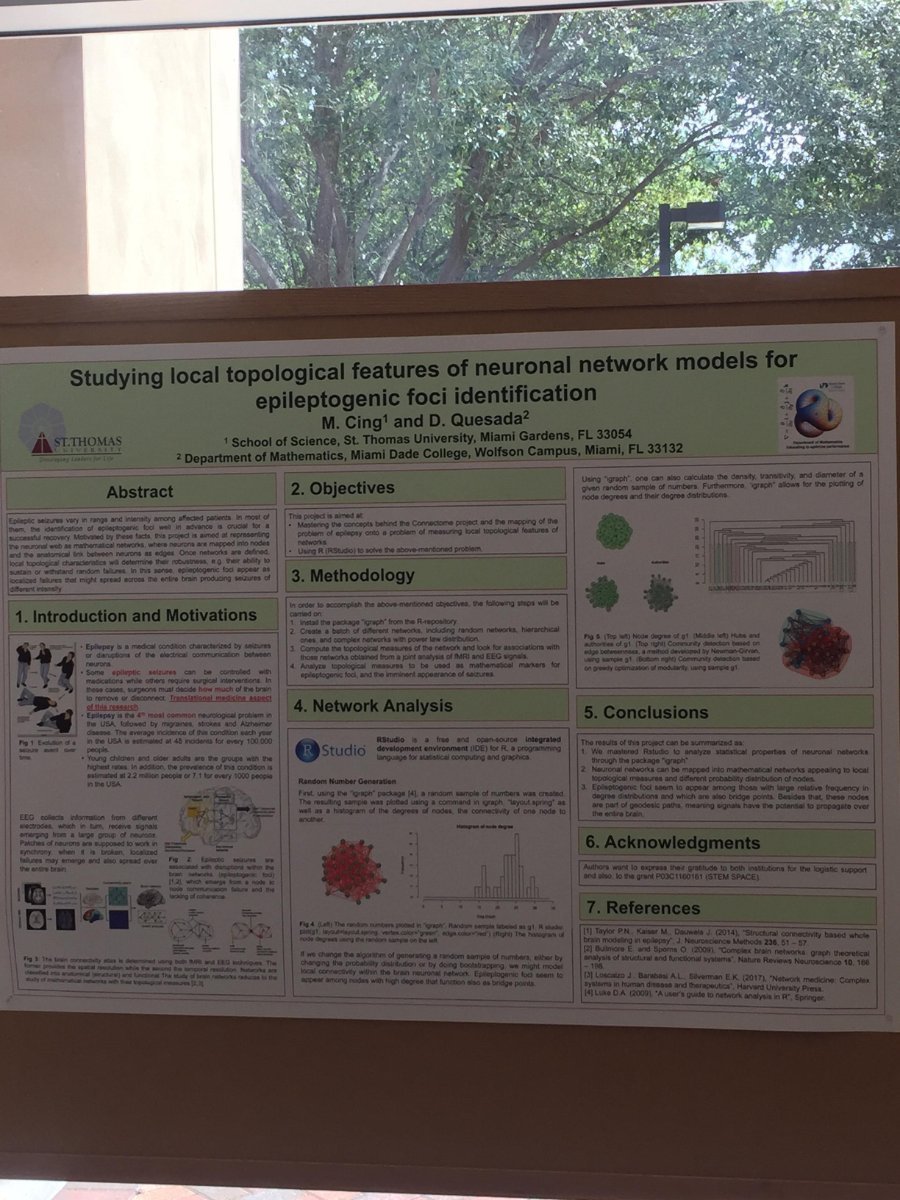 |
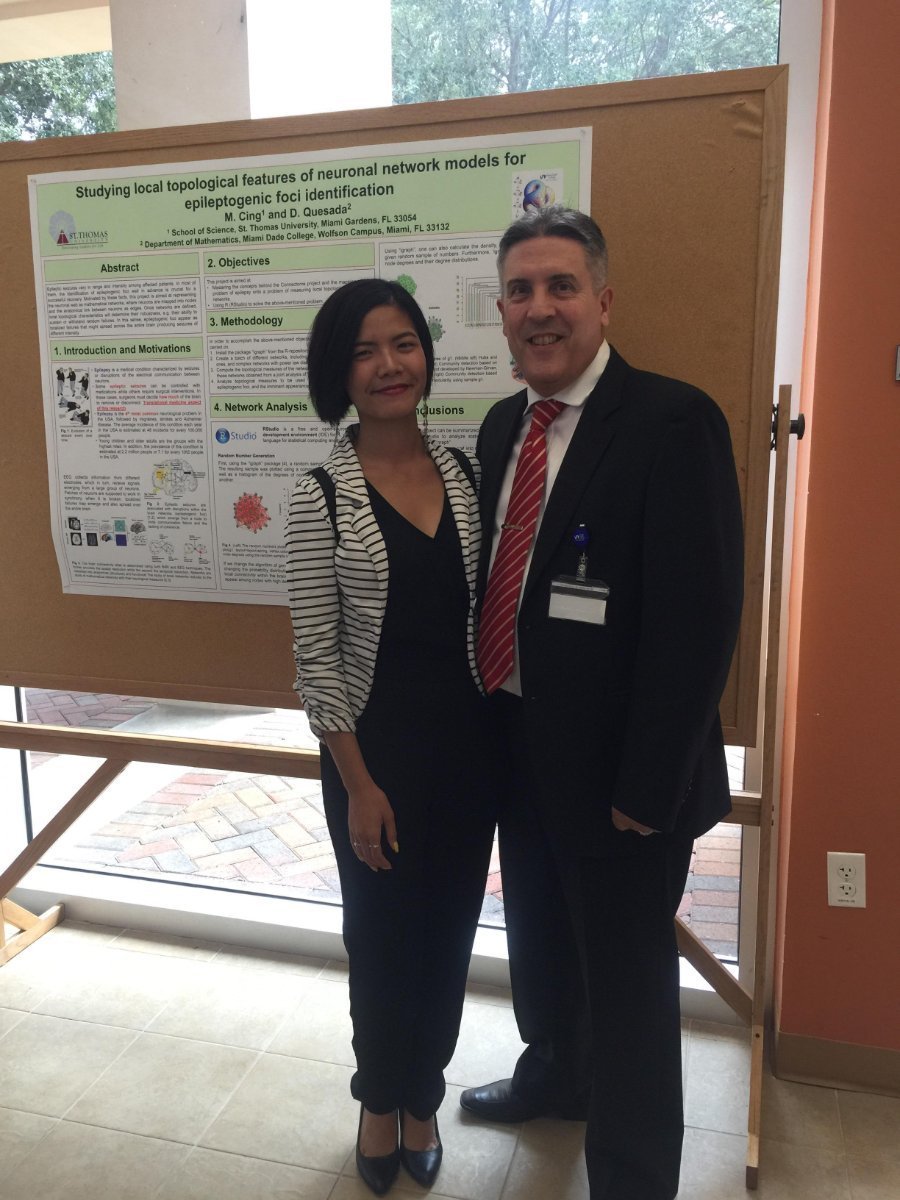 |
MOL2NET-IKERBASQUE Advisory Committee

CALL FOR COLLABORATION: In this committee we list all the names of professors/researchers related to IKERBASQUE, Basque Foundation for Science; which are supporting MOL2NET conference. We welcome all members of Ikerbasque community to participate. As the conference is multidisciplinary we are open to experts in all topics. Please, do not hesitate to contact the chairperson to propose a collaboration by yourself or suggest some colleague.
Members of the committee may have an active role collaborating in managing activities or a low-profile role. Some of the modalities of collaboration are as conference co-chairs, members of committees, workshop chairpersons, guest editors of JCR journals issues, social networks management, etc. Low-profile roles include being members of committee, recommending the conference to other colleagues, or making suggestions of topics, workshops, etc.
MOL2NET-IKERBASQUE COMMITTEE

Prof. F.P. Cossío, Scientific Director, IKERBASQUE, Basque Foundation for Science, Dept. of Organic Chemistry I, UPV/EHU Campus Gipuzkoa.
Prof. J.Jimenez-Barbero, Ikerbasque Professor, Scientific Director of Center for Cooperative Research in Biosciences (CICBiogune), Biscay.
Dept. of Organic Chemistry I, UPV/EHU

Prof. L.M. Liz-Marzán, Ikerbasque Professor, Scientific Director Center for Cooperative Research in Biomaterials CICbiomaGUNE, Gipuzkoa

Prof. E. Solano, Ikerbasque Prof., Ikerbasque Website, Dept. of Physical Chemistry, Univ. of the Basque Country UPV/EHU, 48080 Bilbao, Spain
Prof. S. Knafo, IKERBASQUE Professor, Molecular Cognition Laboratory, Biophysics Institute (CSIC, UPV/EHU), Scientific and Technological Park of Biscay, UPV/EHU, Campus Biscay. Ben Gurion University, Israel.

Prof. Marcos J. Araúzo-Bravo, Ikerbasque Professor, Bioengineering, BioDonostia Health Research Institute, Donostia, Spain.
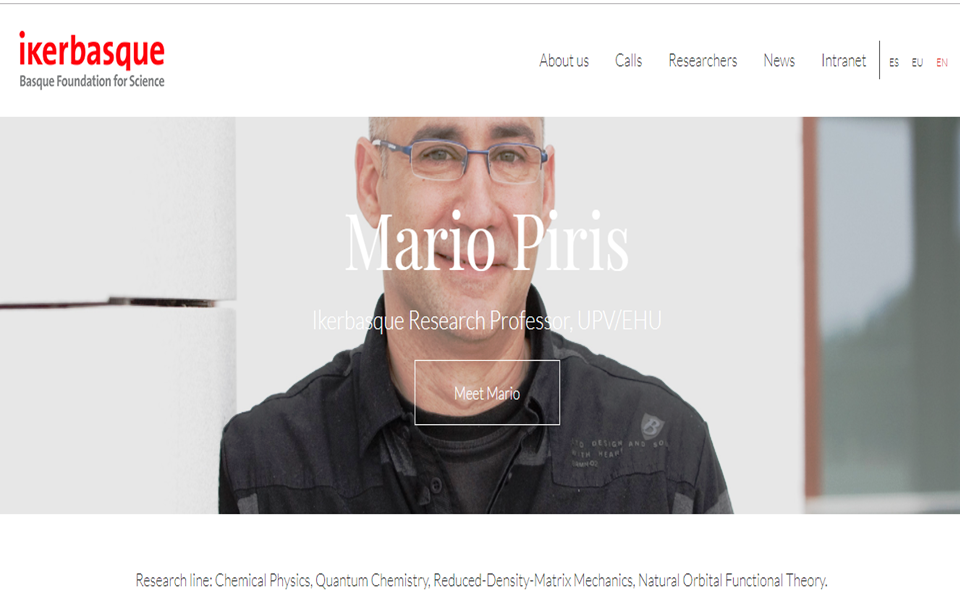
Prof. M. Piris, IKERBASQUE Professor, DIPC Donostia International Physics Center, UPV/EHU, Campus Donostia - San Sebastian
Prof. Geza Toth, Ikerbasque Professor, Department of Physics, UPV/EHU, Campus Biscay
MOL2NET Chairperson
Prof. González-Díaz H., IKERBASQUE Professor, Email: mol2net.chair@gmail.com, (1) Department of Organic Chemistry II, University of the Basque Country UPV/EHU , 48940, Leioa, Biscay, Spain. (2) IKERBASQUE, Basque Foundation for Science , 48011, Bilbao, Biscay, Spain.
![]() ORCID: https://orcid.org/0000-0002-9392-2797
ORCID: https://orcid.org/0000-0002-9392-2797
MOL2NET People Photo Gallery
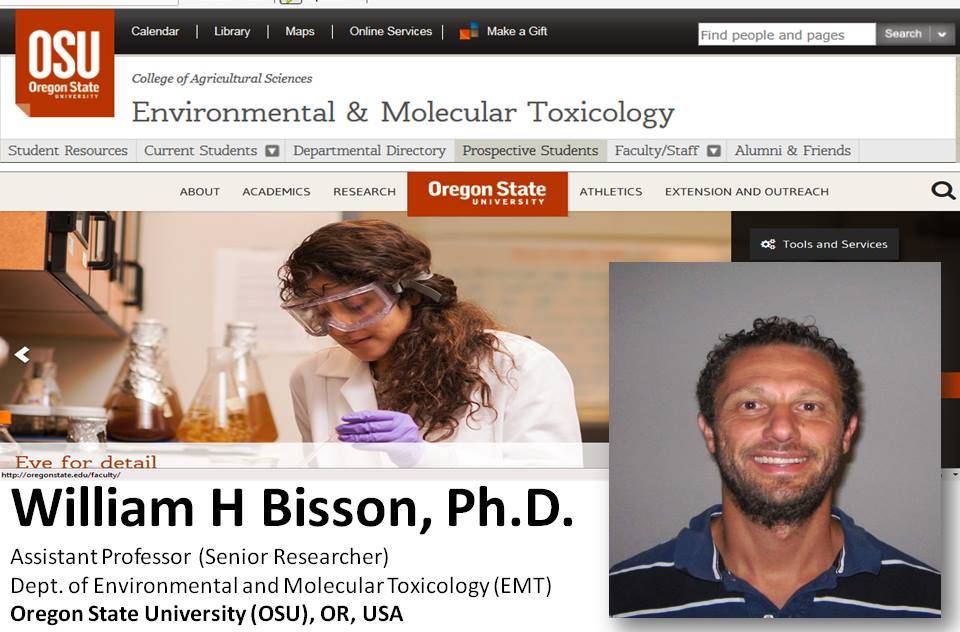

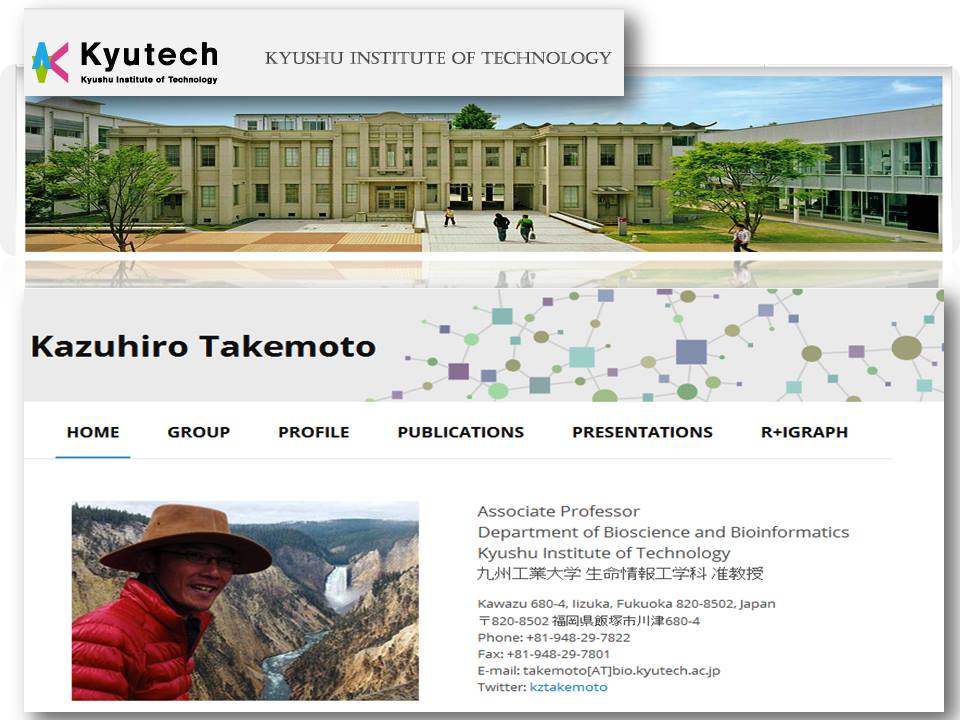
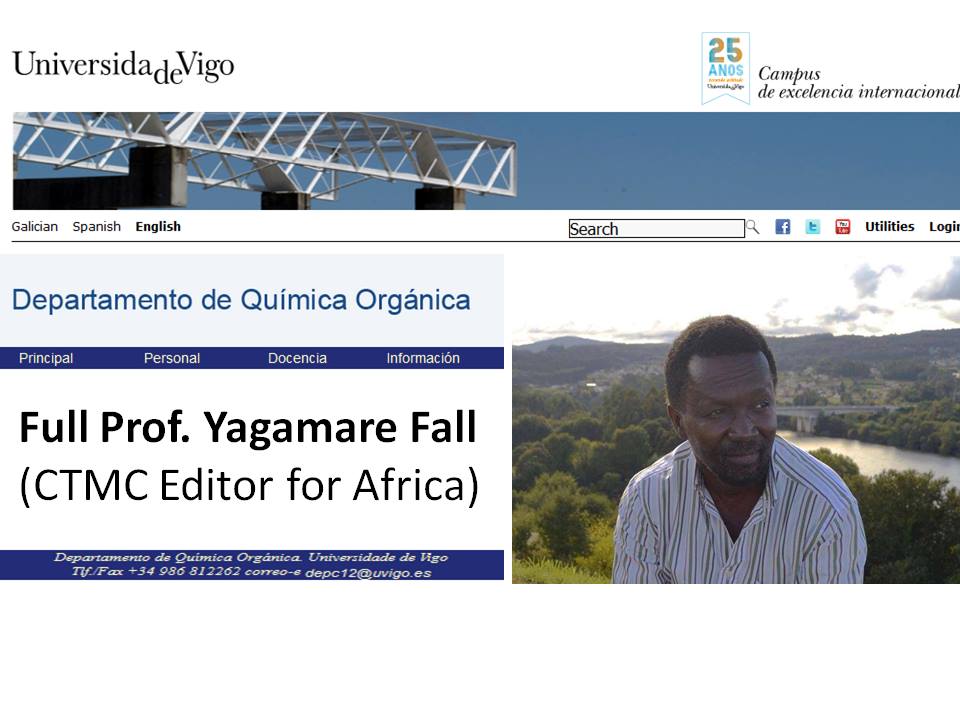
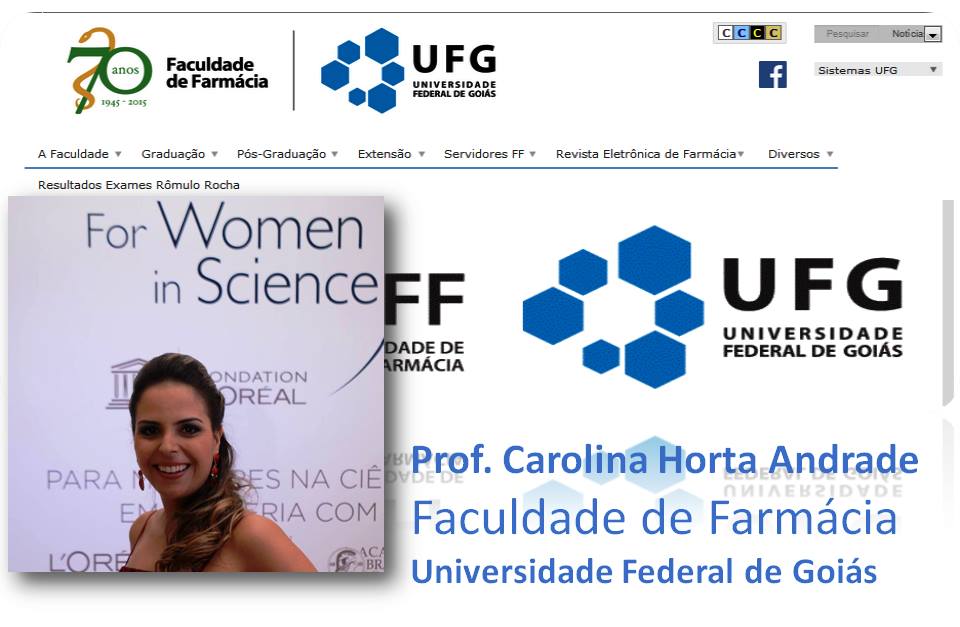
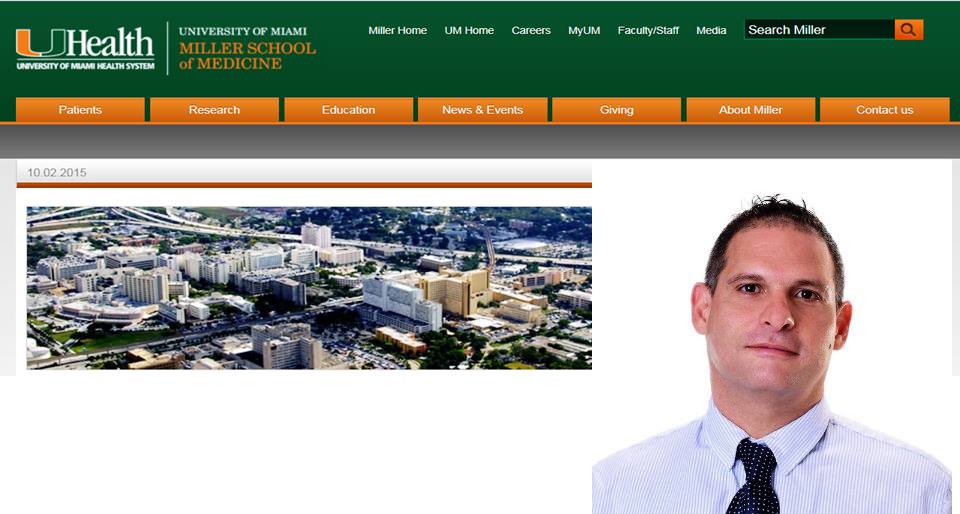
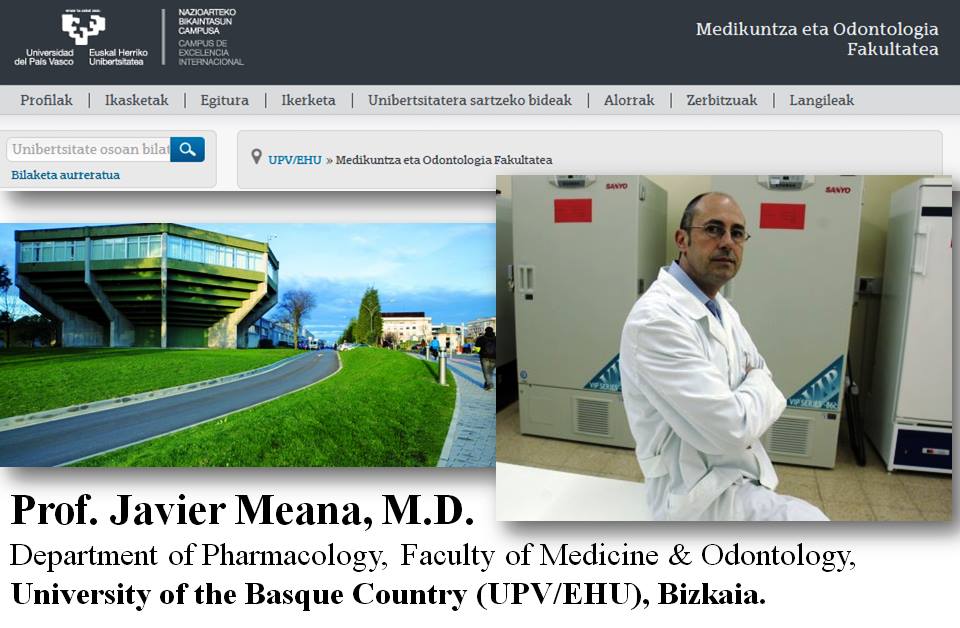

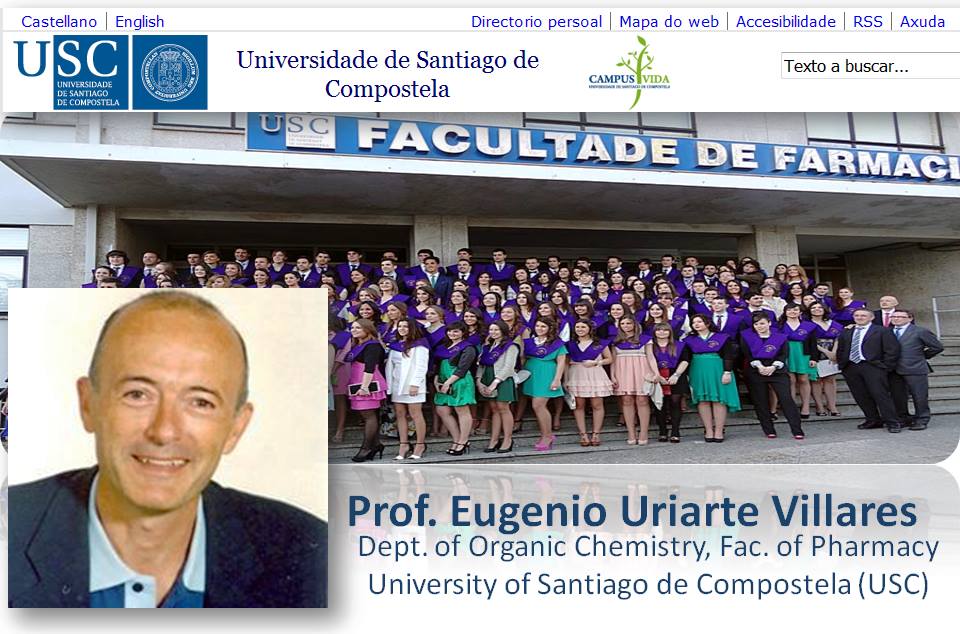

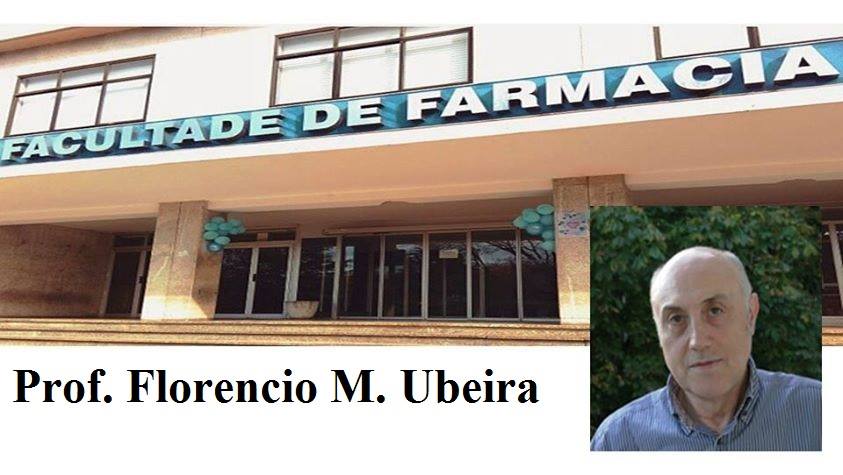
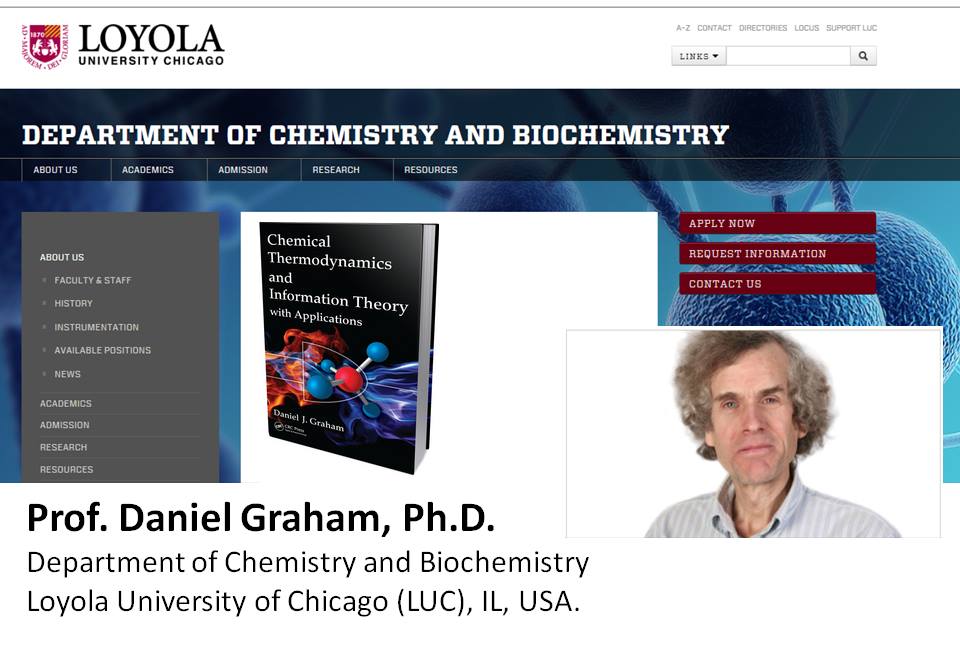




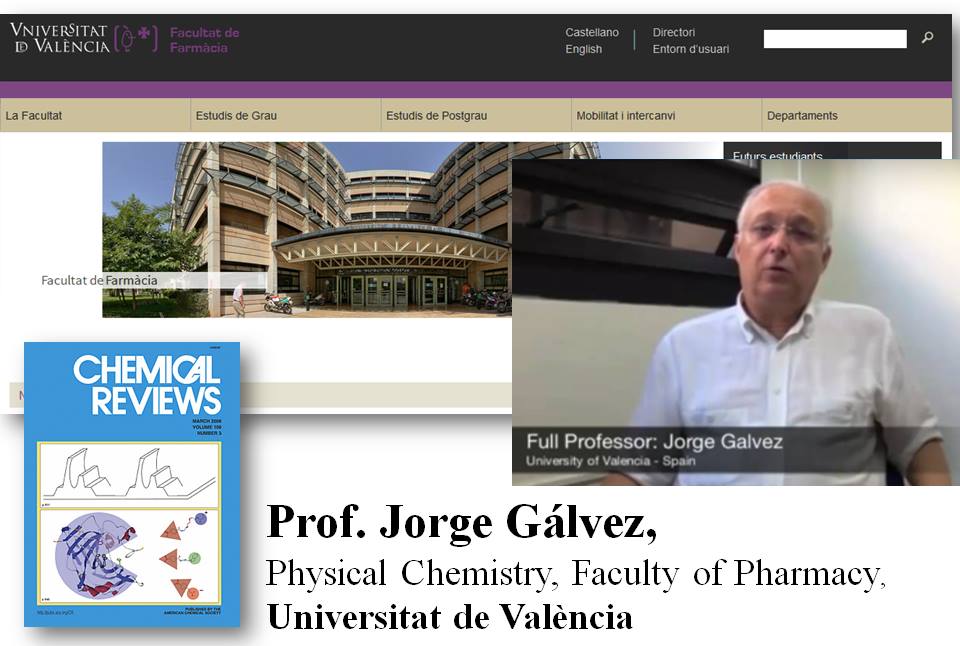
Contributing
Authors
Essential
Presentations
Conference Chairs
Dept. of Organic and Inorganic Chemistry, University of The Basque Country UPV/EHU, Leioa, 48940, Greater Bilbao, Basque Country, Spain. Website
mol2net.chair@gmail.com
Instructions for Authors
(0) Register, Sign in/Login, to Sciforum platform [REGISTER/LOG IN TO SUBMIT]
(1) Submit the title and abstract, select a section or workshop (do not upload paper here) [REGISTER/LOG IN TO SUBMIT]
(2) Wait for Sciforum abstract acceptance email, follow the link, and/or login to upload paper, doc and pdf format
(3) Download template doc and prepare your communication [Template File]
(4) Wait for paper acceptance and publication emails (follow link to proofread your paper) (Asap after upload)
(5) Communicate with chairpersons if corrections are necessary, including past editions (All the year)
(6) Log in to post comments, questions, or answers in a section or one of the workshops
(7) Contact chairpersons if you need author (publication) or attendance (posting) certificate for conference and/or workshops (All the year)
(1) Department of Organic Chemistry II, University of the Basque Country UPV/EHU , 48940, Leioa, Biscay, Spain.
(2) IKERBASQUE, Basque Foundation for Science , 48011, Bilbao, Biscay, Spain.
List of accepted submissions (267)
| Id | Title | Authors | Poster PDF | ||||||||||||||||||||||||||||||||||||||
|---|---|---|---|---|---|---|---|---|---|---|---|---|---|---|---|---|---|---|---|---|---|---|---|---|---|---|---|---|---|---|---|---|---|---|---|---|---|---|---|---|---|
| sciforum-016925 | Modeling and Analysis of AG:IGE Interface of House Dust Mite Allergens of Group 1 | , , , , , |

|
Show Abstract |
|||||||||||||||||||||||||||||||||||||
|
In Peru, 20-28% of people has hypersensitivity to allergens; of these 80% are sensible to at least one house dust mite. The immunotherapy is based on the administration of increasing doses of protein extracts or purified proteins of allergens. These treatments seem to be effective in some cases but still we do not have yet an equilibrium between stability, specificity and immunogenicity. This work analyzes in silico models of antigen-antibody of house dust mite allergens of group 1 of Acarus siro, Euroglyphus maynei, Sarcoptes scabiei y Tyrophagus putrescentiae. We obtained structural in silico models using I-tasser. The assymetric unit of 4PP1 is formed by two DerP1:Fab5H8 complexes; to generate interfaces models we replaced chain A by the allergen model in analysis. Then, we minimized the potential energy using the Steepest Descent algorithm and finally we analyzed the interactions in the allergen:IgE interface. We were able to identify three antibody aminoacids interacting with the four allergens in study (Tyr32, Tyr50, Lys92), one that interacts with SarS1 and TyrP1 and others six that interact only with EurM1 and AcaS1. Our results show the identification of possible regions important in the recognition of group 1 allergens, also we show other aminoacids that could recognize specifically a subgroup of these allergens. |
|||||||||||||||||||||||||||||||||||||||||
| sciforum-016926 | Molecular Dynamics and In Silico Analysis of Oligomerization Surfaces of CYND Enzymes | , , , |

|
Show Abstract |
|||||||||||||||||||||||||||||||||||||
|
Cyanide is a toxic compund widely used in mining. Naturally some bacterias are capable to degrade this molecules. CynD is a type of prokaryote enzyme able to degrade cyanide and its active form seems to be an oligomer. Several attempts to obtain structural models of CynD by crystallography has not success mainly due the insolubility of the oligomeric state of this protein. In this work we aimed to use in silico tools to identify the aminoacids implied in the oligomerization surfaces. These knowledge could lead us to rationally design CynD variants that are not able to form tights oligomers stabilizing other forms such as dimers or monomers that could be better in purification and crystallization assays. For this, we prepared structural models using SWISS-MODEL, PHYRE2, I-TASSER and ROBETTA. Then, we analyzed chemical parameters of the models using RAMPAGE, PDBsum and ModFold6. Next, we did dimer models using dockings in Hex. The monomer and dimer models were used to perform molecular dynamics simulation in order to determine flexible regions, important aminoacids stabilizing the dimeric interface and the stability of the dimer form. We obtain models with good chemical parameters to perform the dynamics simulation. These assays allow us to identify flexible regions that could be removed to stabilize the dimer or monomer in solution. Finally, the docking showed us which are the probable aminoacids stabilizing the dimer interface. Experimental data is now neccesary to confirm those hypotheses. JANDHYLA, D.; Berman, M.;Meyeres, P.; Sewell, B.; Willson, R.; Benedik, M. cynD, the Cyanide Dihidratase from Bacillus pumilus: Gene Cloning and Structural Studies. Applied and Environmental Microbiology. Vol 69, No. 8. Aug. 2003. p 4794 – 4805 Crum, M. A. N., Park, J. M., Mulelu, A. E., Sewell, B. T., & Benedik, M. J. (2015). Probing C-terminal interactions of the Pseudomonas stutzeri cyanide-degrading CynD protein. Applied microbiology and biotechnology, 99(7), 3093-3102. |
|||||||||||||||||||||||||||||||||||||||||
| sciforum-017444 | Precision Medicine: Carbon Nanotubes as Potential Treatment for Human Brain Disorders-Based Mitochondrial Dysfunctions with a First Principles DFT-Study |
,
,
,
Solange Binotto Fagan
|

|
Show Abstract |
|||||||||||||||||||||||||||||||||||||
|
The study of key molecular mechanisms of mitochondrial dysfunctions, which are responsible for neurodegenerative diseases, is a critical step to assist for the diagnosis and therapy success. In this regard, we suggest an alternative of treatment on neurodegenerative disorders-based on Single-Walled Carbon Nanotubes (SWCNT) as potential mito protective -(Phe)-F0-ATPase targeting nanoparticles toward Precision Molecular Nanomedicine against pathological ATP-hydrolysis conditions. Herein, we used ab initio computational simulation to analyze the structural and electronic properties from SWCNT-family with zigzag topologies (n, m - Hamada indices n > 0; m = 0) like: SWCNT-pristine, SWCNT-COOH, SWCNT-OH, SWCNT-monovacancy interacting with the critical (Phe)-residues of the mitochondrial F0-ATPase and using oligomycin A (specific Phe-F0-ATPase inhibitor) as reference control. Then, we show that the SWCNT-family can be potentially used to selectively inhibit the (Phe)-F0-ATPase activity liked to pathological mitochondrial ATP-hydrolysis associated to human neurodegenerative disorders by using DFT-ab initio simulation. The in-silico results suggest the formation of more stable complexes of interaction following the order: SWCNT-COOH/F0-ATPase complex (1.79 eV) > SWCNT-OH/F0-ATPase complex (0.61 eV) > SWCNT/F0-ATPase complex (0.45 eV) > SWCNT-monovacancy/F0-ATPase complex (0.43 eV) based on the strength of the chemisorption interactions. These theoretical evidences open new horizons towards mito-target precision nanomedicine. |
|||||||||||||||||||||||||||||||||||||||||
| sciforum-017349 | MODEC03-2018, International Workshop on the Natural Products and Agro-Industrial Processes in Ecuadorian Amazon region | , , , |

|
Show Abstract |
|||||||||||||||||||||||||||||||||||||
|
Welcome to the MODEC2018 workshop. This is Amazon State University's (UEA) third workshop, devoted to the promotion and application of the Multidisciplinary Sciences to the development of natural products and agro-industrial processes in Ecuadorian Amazon regions. This includes the application of Information and Communications Technologies (ICTs) for data analysis and computational model including the fields of Agro-industrial Engineering, Chemistry, Chemical Engineering, Biotechnology, Veterinary Medicine, and/or Environmental Sciences, etc. We invite you to visit the official web of the workshop: https://sciforum.net/conference/mol2net-04/modec-03 |
|||||||||||||||||||||||||||||||||||||||||
| sciforum-017943 | New tool useful for drug discovery validated through benchmark datasets | , , , , , , , , |

|
Show Abstract |
|||||||||||||||||||||||||||||||||||||
|
Atomic Weighted Vectors (AWVs) are vectors that contain the codified information of molecular structures, which can apply to a set of Aggregation Operators (AOs) to calculate total and local molecular descriptors (MDs). This article presents an exploratory study of a new tool useful for drug discovery using different datasets, such as DRAGON and Sutherland’s datasets, as well as their comparison with other well-known approaches. In order to evaluate the performance of the tool, several statistics and QSAR/QSPR experiments were performed. Variability analyses are used to quantify the information content of the AWVs obtained from the tool, by the way of an information theory-based algorithm. Principal Components Analysis (PCA) is used to analyze the orthogonality of these descriptors, for which the new MDs from AWVs provide different information from those codified by DRAGON descriptors (0-2D). The QSAR models are obtained for every Sutherland’s dataset, according to the original division into training/test sets, by means of the Multiple Linear Regression with Genetic Algorithm (MLR-GA). These models have been validated and compare favorably to several approaches previously published, using the same benchmark datasets. The obtained results show that this tool should be a useful strategy for the QSAR/QSPR studies, despite its simplicity. |
|||||||||||||||||||||||||||||||||||||||||
List of Authors (754)
Sponsors and Partners
For information regarding sponsorship and exhibition opportunities, please click here.
01. Proceedings & Welcome Message
Welcome from the Chairs
[MOL2NET 2015] [MOL2NET 2016] [MOL2NET 2017] [FACEBOOK (>10K followers)]
[Welcome Videos] [官话] [हिन्दी] [Euskera] [Castellano] [Português] [Français]
Headquarters and Supporters
MOL2NET runs both online and/or in person workshops in host universities worldwide and at the SciForum platform maintained by the editorial MDPI, Basel, Switzerland. The Scientific Headquarters (HQs) of this conference series are in the Faculty of Science and Technology, University of Basque Country (UPV/EHU), Biscay. However, the idea of this multidisciplinary conference emerged from the melting pot formed as the result of multiple collaborations of professors from many centers worldwide. Locally, the founders and strongest supporters of the conference are professors endowed by IKERBASQUE, Basque Foundation for Sciences, professors from the two departments Department of Organic Chemistry I and Department of Organic Chemistry II of the University of Basque Country (UPV/EHU), and professors from the Department of Computer Sciences of the University of Coruña (UDC).
Internationally, professors from Dept of Biological Chemistry & Molecular Pharmacology (BCMP), Harvard Medical School, USA; the Center for the Study of Biological Complexity of the Virginia Commonwealth University (VCU), USA; the Natural Resources Research Institute, of the University of Minnesota, USA; CNRS-Université Paris-Sud, Paris, France, and other institutions are also founders and/or supporters of this conference, please see full committees lists [Honor Committee] [Co-Chairs Committee] [Scientific Committee (Abroad)] [Scientific Committee (Local)] and [MOL2NET-IKERBASQUE Staff].
Conference Lemma
The acronym MOL2NET summarizes the running title of this conference: FROM MOLECULES TO NETWORKS. This lemma is inspired by the possibility of spreading the knowledge about multiple topics by promoting multidisciplinary collaborations in science with conferences including topics ranging from quantum world to large social networks. In this sense, the spirit of this conference is in consonance with the lemma EMAN TA ZABAL ZAZU (Give and extend knowledge). This anthem from the 19th century is written in Basque language (Euskera) and is used now a days as the official motto of the University of Basque Country (UPV/EHU).
Sessions & Workshops
01. Proceedings & Welcome Message
02. SRI-10: Summer Research Institute Symposium, MDC, Miami, FL, USA, 2018
03. USINEWS-02: US-IN-EU Worldwide Science Workshop Series, UMN, Duluth, USA, 2018
04. BIOCHEMPHYS-01: International Workshop on Med. Chem., Biotech., and Phys. Chem., CNAM, Paris, France, 2018
05. WCUCW-02: West Coast University Capstone Workshop, WCU, Miami, USA, 2018
06. WRSAMC-03: Workshop in Medicinal Chemistry, UFPB, Paraiba, Brasil, 2018
07. EJIBCE-02: Meeting of Young Researchers in Structural Computational Biology, Porto, Portugal, 2018
08. OTISAD-01: Workshop on Intelligent Decision and Optimization of Complex Systems, UANL, Nuevo Leon, Mexico, 2018
09. ICBSM-02: International Conference in Bioinformatics, Simulations and Modeling, UTALCA, Talca, Chile, 2017
10. IWMEDIC-06: International Workshop in Medical Informatics, UDC, Coruña, Spain, 2018
12. PANELFIT-LAWSCI-02: H2020 Challenges in Law, Technology, Life, and Social Sciences, UPV/EHU, Bilbao, Spain, 2018
11. IWIMSM-02: Iberoamerican Workshop on Modelization and Simulation Methods, Valencia, Spain, 2018
13. AWP-04: Academic Week of Physics, UNIFAL-MG, Alfenas, Brazil, 2018
14. MODEC-03: Workshop on Natural Products and Agro-Industrial Procesess in Amazon, UEA, Puyo, Ecuador, 2018
Steps for Participation
(0) Register, Sign in/Login, to Sciforum platform [Sciforum login]
(1) Submit the title and abstract, select a section or workshop (do not upload paper here) [Submit New Abstract]
(2) Wait for Sciforum abstract acceptance email, follow the link, and/or login to upload paper, doc and pdf format
(3) Download template doc to prepare your communication, for general sessions: [Mol2Net Template], or use the
for other workshops: [BioChemPhys Template], [WRSAMC template] , [MODEC Template], [AWP-04 Template]
(4) Wait for paper acceptance and publication emails (follow link to proofread your paper) (Asap after upload)
(5) Communicate with chairpersons if corrections are necessary, including past editions (All the year)
(6) Log in to post comments, questions, or answers in a section or one of the workshops
(7) Contact chairpersons if you need author (publication) or attendance (posting) certificate for conference and/or workshops (All the year)
Workshops Schedule
General Schedule: MOL2NET International Conference Series on Multidisciplinary Sciences, MDPI Sciforum, Basel, Switzerland has online and/or in person workshops (>10) associated. The conference usually runs online at the online platform SciForum maintained by the editorial MDPI, Basel, Switzerland. The platform is open on a year-round basis almost all the days of the year in course. We have this modality for practical reasons; e.g., accommodation of many workshops in different dates along the year, flexible reception of communications, etc.
Submission and Publication of communications: As we mentioned before, in the practice, the online platform is open at the beginning of the year in course and continue open all the year for submissions of communications. However, the associated workshops may open in different dates along the year (see specific workshop pages). Submission of papers to all workshops is open until the last days of the year in course or the first days of the following. The publication of communications is continuous all the year upon acceptance.
Schedule for Online participation: After publication of papers is closed we open the online platform for online participation. The authors will be able to post online comments and/or answers to comments in this workshop/section and also in the other general sections and/or >10 international workshops of the MOL2NET conference (many of them also run both online and in person). The participants are entitled to receive participation certificates for MOL2NET conference and all the workshops they participate upon request to the respective chairpersons. See committees of MOL2NET and each workshop.
Schedule for in person participation: Many of the workshops associated to MOL2NET are going to be held also in person (face-to-face) in different universities of USA, Spain, Italy, Mexico, Chile, etc. This in person workshops have specific schedules in parallel to their online versions. Please, go to the homepages of these workshops and/or contact their chairpersons for further details.
Notes for participants: MOL2NET conference runs both online (general sections) and/or in person (associated workshops). No physical presence is needed for online participation saving traveling costs. We accept experimental works, theoretical works, or experimental-theoretic works in the areas mentioned. Proceedings will be Published Online, Open Access, and Totally Free of Charges (no cost). For details about in person (face-to-face) participation on associated workshops contact the respective members of the local committees.
Types of communications
Before to submit your communication recommend to download and use the [Template File] to write your communication; we strongly recommend you to read carefully the following information about publication model, copyright, authors responsibilities, etc Firstly, be aware that the works published here belongs to two main modalities preliminary communications or comments on previous works.
Preprints. These are short communications of unpublished results but they are not post-print journal papers. In this sense, committee and/or external reviewers check only scope and apparent scientific soundness. They have the same editorial process than for an online Preprint service. Therefore, all works receive doi number and are indexed in databases (GoogleScholar, Publons, etc.).The works may receive also comments from registered participants (public post-publication review). The authors are encouraged to submit their works to a peer-reviewed scientific journals of MDPI or other editorials during or after finalization of the conference, as per SciForum copyright rules.
Research Highlights. These short communications are comments on already published papers. They are short notes to comment about the more interesting points, highlights, etc. of works previously published by the authors or other groups. In this case, committee and/or external reviewers check also only scope and apparent scientific soundness. The works may receive also comments from registered participants (public post-publication review).
Authors liability
In all cases, is responsibility of authors, to perform a checking similarity, ensure veracity of contents, and carry out a proper citation of previous works. The committee is not responsible of the previous aspects in this publishing modality. Consequently, the opinions expressed on the communications are not necessarily coincident to the opinions of the members of the committees. In this sense, we strongly recommend the authors to use online text-similarity checking services. These tools may help authors to avoid any form of plagiarism or copyright violation. The authors may be requested to modify the communication (re-write their texts) in the case that high similarity is detected and reported to the committee. In these cases, the manuscript could be put on standby or withdrawn temporarily until the authors re-submit the proper version. The authors are also allowed to submit short reviews, comments, letters, or discussions of papers already published if they guarantee sufficient difference to previous public contents.
Call for Collaborators, Editors, Chairpersons, Sponsors
[EN] We sincerely invite you to join MOL2NET Conference Series or one of the worldwide associated workshops; please, sent a direct email to the chairperson: Prof. González-Díaz H., IKERBASQUE Professor, Email: mol2net.chair@gmail.com. You are encouraged to nominating and/or personally applying for a position or active role in some of the following modalities, or other modalities of collaboration suggested by you:
(1) Committee membership (nomination or personal application for membership in honor, steering, or scientific committees).
(2) Guest-Editor of JCR MDPI journal issue (help to propose, editing, announce your special issue in one of the MDPI journals).
(3) Chairperson of workshop (publishing an online or in person workshop of your institution with you as chairperson).
(4) Sponsor of conference (including logo, description, flyer, and link to homepage of your institution).
(5) Speaker (publication of video conferences with cover poster, issn, isbn, and doi number).
MDPI Journals Issues (Organized by MOL2NET Committee Members)
In parallel, the members of committees and/or authors are encouraged to edit special issues for different journals of the editorial MDPI (http://www.mdpi.com/). The special issue is now in call for papers, submissions are welcome in a posteriori, in parallel, or totally independently from the conference. Manuscripts should be submitted online at www.mdpi.com by registering and logging in to this website. In order to send a proposal of associated workshop and/or special issue contact the chairperson of the conference Prof. González-Díaz H. Please, check the following list of past and present special issues associated to our conference:

Nanomaterials (Published): Special issue entitled: Experimental Nanosciences, Computational Chemistry, and Data Analysis. Journal Nanomaterials (ISSN 2079-4991), JCR IF = 3.55. Editors: Prof. González-Díaz H, UPV/EHU, Spain, Prof. B. Rasulev , NDSU, USA,Dr. Shameer Khader, Philips, Cambridge, MA, USA, Prof. H. Kušić, UZ, Croatia.

IJMS (Published): Special issue entitled: Data Analysis in Molecular Sciences. Journal: International Journal of Molecular SciencesIJMS (ISSN 1422-0067), JCR IF = 3.257. Topics: Cheminformatics, Computational Chemistry, Bioinformatics, Data Analysis, Proteomics, Biological Networks, Editors: Prof. González-Díaz H, University of the Basque Country UPV/EHU, Biscay, Spain. Prof. R. Todeschini, University of Milano-Bicocca, Italy, Prof. A. Pazos Sierra, University of Coruña UDC, Spain, Prof. S. Arrasate, University of the Basque Country (UPV/EHU), Biscay, Spain.

Entropy (Call for Papers): Special issue entitled: Biological Statistical Mechanics. Journal Entropy (ISSN 1099-4300), JCR IF = 1.821. Topics: cell differentiation, biocomplexity, order and organization, ecology, epidemics, correlation dynamics, complex networks, systems biology. Editors: Prof. Alessandro Giuliani. Environment and Health Department, Istituto Superiore di Sanità, Roma 00161, Italy. Prof. Mariano Bizzarri, Department of Experimental Medicine, Systems Biology Group Lab, Sapienza University of Rome, Rome, Italy.
Entropy (Call for Papers): Special issue entitled Graph and Network Entropies. Journal Entropy (ISSN 1099-4300), JCR IF = 1.821. Topics: network sciences; walk entropies; algegraic graph theory; spectral methods; matrix functions. Editor: Prof. Dr. Ernesto Estrada, Department of Mathematics & Statistics, University of Strathclyde, Glasgow G11XQ, UK.

Molecules (Call For Papers): Special Issue: GPCR Mechanism and Drug Design. Journal: Molecules (ISSN 1420-3049), JCR IF = 3.098. Topics: data science; drug design and discovery; computational chemistry; structural biology; molecular modeling; molecular docking; computational mutagenesis; G-protein-coupled receptors; protein–protein interactions; protein–ligand interactions. Editor: Dr. Irina Moreira, Email: irina.moreira@cnc.uc.pt, Center for Neuroscience and Cell Biology (CNC), University of Coimbra (UC), Portugal. Workshop Associated: EJIBCE, Encontro de Jovens Investigadores de Biologia Computacional e Estrutural, Portugal, 2018.
Molecules (Call For Papers): Special Issue: Structure and Function of Metalloenzymes. Journal: Molecules (ISSN 1420-3049), JCR IF = 3.098. Topics: catalytic power of enzymes; computer-aided drug design; bio-desulfurization; computational methods in chemistry and biochemistry; metalloenzymes; biological membranes; docking and virtual screening; computational enzymatic catalysis. Editor: Dr. Sérgio Filipe Sousa, Email: sergiofsousa@med.up.pt, UCIBIO/REQUIMTE, BioSIM - Departamento de BioMedicina, Faculdade de Medicina da Universidade do Porto, Porto, Portugal. Workshop Associated: EJIBCE, Encontro de Jovens Investigadores de Biologia Computacional e Estrutural, Portugal, 2018.

Applied Sciences (Call for Papers): Special issue entitled: Complex Networks and Machine Learning: From Molecular to Social Sciences. Journal Applied Sciences (ISSN 2076-3417), JCR IF = 1.679. Topics: machine learning, complex networks, systems biology, protein networks, metabolic networks, ecosystems, artificial neural networks, social, financial, and legal networks. Editors: Prof. Maykel Cruz-Monteagudo, Email: mCruz@westcoastuniversity.edu, West Coast University, Miami Campus, FL, USA, Prof. Dr. David Quesada, Director of Dept. of Mathematics, Miami Dade Colege (MDC), Miami, FL, USA. Email: dquesada@mdc.edu, Prof. González-Díaz H., IKERBASQUE Professor, Dept. of Organic Chemistry II, University of the Basque Country UPV/EHU , 48940, Leioa, Biscay, Spain. Email: mol2net.chair@gmail.com
Associated Workshops
In addition, you can participate both online or in person (face-to-face) in some of the workshops we organize in different universities worldwide (see workshops section). Publication of all communications of the workshops will be also online via the platform SciForum. We welcome proposals for organization of workshops in different universities. Please, do not hesitate to contact conference chairperson and/or scientific committee presidents. Some of the workshops planned to be held in 2018 edition are: SRI-10, St. Thomas University (STU) and Miami Dade College (MDC), Miami, FL, USA (Multidisciplinary Sciences); WCUCW-02, West Coast University (WCU), Miami, FL, USA (Multidisciplinary Sciences); WMCUP-01, University of Padova (UP), Padova, Italy (Medicinal Chemistry); LAWSCI-01, University of the Basque Country UPV/EHU, Bilbao, Spain (TICs, Bioethics, Social, and Legal Sciences), etc.; see other workshops in the list of sections at left panel.
Past Editions
MOL2NET-03, the 3rd edition of this conference series, was held in 2017. This conference received >250 communications, submitted by >450 authors registered, and included >10 workshops in: USA, Spain, Portugal, Brazil, etc.. Some of the world top universities and centers represented in the lists of committee members and/or authors were: Harvard Medical School, Boston, USA; Stanford School of Medicine, USA; Virginia Commonwealth University (VCU), USA; University of Minnesota Duluth, MN, USA; Conservatoire National des Arts et Métiers, CNAM París, France; University of Pennsylvania, USA; Miami Dade Collegue (MDC), USA; EMBL-EBI European Bioinformatics Institute, Cambridge, UK; CAS Chinese Academy of Science, China; ZJU Zhejiang University, China.
MOL2NET-02, the 2nd edition of this conference series, was held in 2016. This 2nd conference published 150 communications of 400+ authors 30+ universities of 20+ countries. Some of the world top universities and centers represented in the lists of committee members and/or authors were: Harvard Medical School, Boston, USA; Stanford School of Medicine, USA; Virginia Commonwealth University (VCU), USA; University of Minnesota Duluth, MN, USA; Conservatoire National des Arts et Métiers, CNAM París, France; University of Pennsylvania, USA; Miami Dade Collegue (MDC), USA; EMBL-EBI European Bioinformatics Institute, Cambridge, UK; CAS Chinese Academy of Science, China; ZJU Zhejiang University, China.
MOL2NET-01, the first edition of this conference series, was held in 2015. This first conference attracted more than 100 papers and 300+ authors and/or committee members representing 30+ universities of 20+ countries. Some of the world top universities and centers represented in the lists of committee members and/or authors were: Harvard Medical School, Boston, USA; Stanford School of Medicine, USA; Virginia Commonwealth University (VCU), USA; University of Minnesota Duluth, MN, USA; Conservatoire National des Arts et Métiers, CNAM París, France; University of Pennsylvania, USA; Miller School of Medicine, University of Miami, USA; EMBL-EBI European Bioinformatics Institute, Cambridge, UK; CAS Chinese Academy of Science, China; ZJU Zhejiang University, China.
People, Media Channels, and Social Networks
We are uploading flyers and promotional videos (in different languages) to the MOL2NET accounts in different social networks such as: FACEBOOK group with >10000 followers; RESEARCHGATE project, LINKEDIN, and TWITTER account @mol2net. In addition, we have uploaded topic-specific pages with lists of contacts of people related to the conference. In this page you can find people with research interests focused on one specific area such as Organic Chemistry, Computational Chemistry, Materials or Nanoscience, etc.
Influences & Sister Conferences
MOL2NET conference series is inspired on various Sciforum conference series, specially on the ECSOC Electronic Conference Series in Organic Chemistry organized during more than 20 years (22nd edition in 2018) by Prof. Julio Seijas at Department of Organic Chemistry, Faculty of Sciences, Campus Lugo, University of Santiago de Compostela (USC), Spain. In consonance, we are glad to list Prof. Siejas in the scientific committee of MOL2NET and we invite all colleagues to participate also in ECSOC conference. In addition, MOL2NET committee members would like to recommend other conferences with some topics in common such as: IWBBIO, International Work-Conference on Bioinformatics and Biomedical Engineering, Chairperson: Prof. Ignacio Rojas, et al., Univerity of Granada, 2018 edition. NetSci: International School and Conference on Network Science.
THANK YOU FOR YOUR SUPPORT!!!
Sincerely yours
MOL2NET Chairman
Prof. González-Díaz H., IKERBASQUE Professor, [RESEARCHGATE], [LINKEDIN], [ORCID],
(1) Department of Organic Chemistry II, University of the Basque Country UPV/EHU , 48940, Leioa, Biscay, Spain.
(2) IKERBASQUE, Basque Foundation for Science , 48011, Bilbao, Biscay, Spain.
Email: mol2net.chair@gmail.com

Show all published submissions (1) Hide published submissions (1)
Submissions
List of Papers (1) Toggle list
02. USEDAT-04: USA-Europe Data Analysis Training Program Workshop, Cambridge, UK-Bilbao, Spain-Miami, USA, 2018
Experimental Data Recording, Computational Data Analysis, Hands-on Training Courses
PhD, MSc, Degree Thesis Tutorship; MSCA Secondments; Summer Internships
USA & Europe Schools, Conferences, Workshops, Enrollment Free of Charge
USEDAT Workshop
The program is directed to researchers and students worldwide. The initiative joins various sister summer schools, workshops, boot camps, hands-on training courses, and/or capstone courses of universities in United States and Europe. This includes courses and research workshops offered/chaired by professors of Miami Dade College (MDC), University of North Carolina at Chapel Hill (UNC), North Dakota State University (NDSU), Jackson State University (JSU), Tulane University New Orleans, Saint Thomas University (STU), and West Coast University (WCU) Miami, in United States and courses/workshops organized by professors / researchers of University of Coruña (UDC) Spain, EMBL-EBI European Bioinformatics Institute, Cambridge, United Kingdom, CNAM, Conservatoire National des Arts et Métiers, Paris, France, University of the Basque Country (UPV/EHU) and Ikerbasque, Basque Foundation for Science, Basque Country, Spain, and other European centers.
The professors and students interested on USEDAT are welcome to submit their research works to be published in USEDAT School Workshop and/or in any other of the MOL2NET workshops associated to the school. For in-site participation contact the coordinators of the different courses or the general coordinator. For participation in the workshops, click submit to send the title and abstract of your communication. After that, wait to receive after approval email. Next, write your communication using the following [USEDAT Template.doc] file to write your communications, after that save a .pdf file and upload. Almost all schools have workshops published by the MOL2NET Conference series (see details at follows). The professors, researchers, and students interested on this workshop are also welcome to participate in the international network of courses offered by USEDAT program. The students of the program can visit one or more of the universities to receive personalized training. It may include introduction to experimental techniques (NMR, EEG, MS, HPLC, 2DGE, etc.) for data acquisition. However, the main focus is on computational algorithms (ML, AI, ANN, SVM, LDA, Deep Learning, SQL, Python, etc.) for data analysis and computational modelling and simulation in Chemistry (All), Biotechnology Biotechnology, Nanotechnology, Biomedical Engineering, etc. See all benefits for students and professors bellow. Follow this link [MORE USEDAT PROGRAM DETAILS] to read more details about USEDAT program.
USEDAT Program Enrollment
Enrollment is free of cost (no fees) for USEDAT hands-on training courses, this include training of Summer school students, training/tutoring of PhD, MSc, and Degree students, training of visiting professors, post-doctoral researchers, sabbatical professors, etc. However, USEDAT students/professors obtain financial support to cover indirect costs (traveling, insurance, living, and other indirect costs) from institutions like MSCA Europe Commission, EMBL-EBI United Kingdom, FCT Portugal, NSF China, COLCIENCIAS Colombia, SENESCYT Ecuador, CONACYT, DELFIN Program México, and PANELFIT H2020 Europe Commision Projects, etc. Follow this link [MORE USEDAT PROGRAM DETAILS] to read more details about USEDAT program.
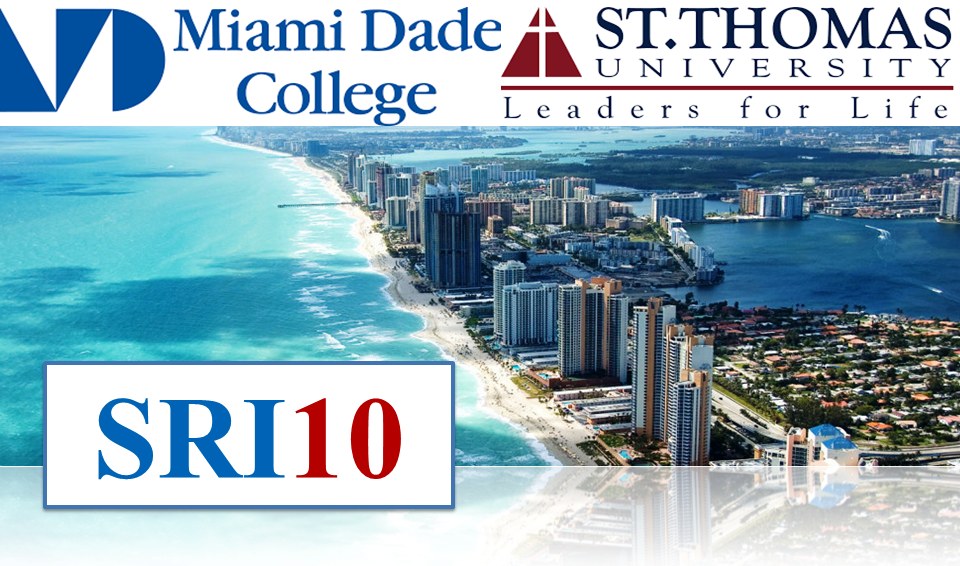
USEDAT-04 publish this year the works presented at the Summer Research Institute (SRI) Symposium of the School of Science, Technology, and Engineering Management of Saint Thomas University (STU) and Miami Dade College (MDC). SRI series have research and education objectives providing undergraduate students, master, and phd students as well as research associated and professor hands-on experiences and computational projects. The workshop is dual including both in person participation (mostly for STU-MDC students and professors) and online participation (including students and professors from abroad). It covers multidisciplinary topics in science ranging from modern techniques of molecular biology, statistical analysis, mathematical modeling, computational physics, bioinformatics, nano sciences and a large variety of characterization techniques to the social, legal, and educational implications of these techniques.
For the third time, this year, the memories of the SRI series will be hosted online by the MOL2NET conference series. It means, that all communications will be published online at Sciforum platform. All presentations will be peer reviewed and a DOI number will be assigned. MOL2NET conference of Sciforum is one of the platforms with international recognition for scientific exchange. The variety of topics included within this new edition acknowledges the inter-disciplinary, teamwork, and networking of modern science. Feel free to contact researchers and participants to foster more collaboration efforts.
SRI Last Edition. The last edition SRI-09 received a total of 27 submissions. Special thanks to our partner Miami Dade College (MDC) and the grant STEM-SPACE P03C1160161. The received contributions provided funding for equipment, logistics, and minor activities associated with the SRI. Ten speakers from and local Technological companies came to St. Thomas to share their wisdom as an in kind contribution. During this last edition, students exchanged experiences with researchers from University of Miami, Florida International University (FIU) and also from NASA. To see another previous edition you can follow the link SRI-08 and witness the quality of 38 submissions with a total of 21 publications.
OTISAD-01: Workshop on Intelligent Decision and Optimization of Complex Systems, UANL, Nuevo Leon, Mexico, 2018
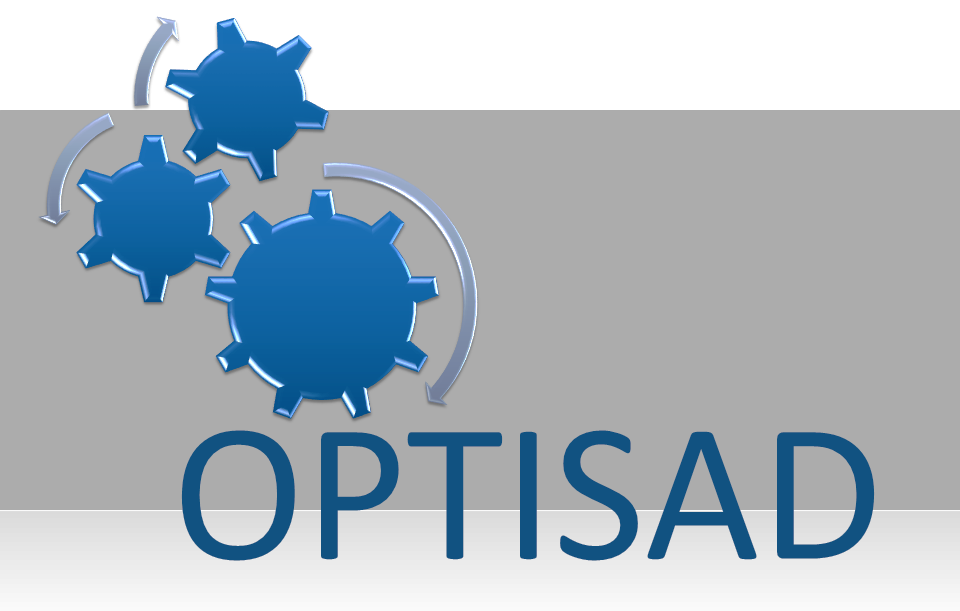
USEDAT-04 also publish this year the works presented at OPTISAD’18, Workshop of the Thematic Network to Support The Intelligent Decision and Optimization of Complex and Large Scale Systems, Conacyt, Mexico. The topics of interest include Intelligent Optimization, Multi-criteria Decision Making, and Fuzzy Sets and Systems and Applications. The topics also include the application in the previous areas other methods like Machine Learning, Statistics, Artificial Intelligence, Artificial Neural Networks, Deep Learning, Big Data analysis, etc. In addition, the workshop focus on the applications of all kind of computational techniques to Decision-making in the Optimization of large systems in Omics, Biotechnology, Systems Biology, Chemical Biology, Chemical Engineering, Medicine, Social Sciences, Education, Economics, Industry, Transport, Ecology and Environmental Sciences, etc. We suggest you to download the [Template File] to write your communication and to read carefully the [Instructions to authors] about publication model, copyright, authors responsibilities, etc.
USEDAT MDPI Associated Journals Issue
In parallel, the members of USEDAT committees and/or authors are encouraged to edit special issues for different journals of the editorial MDPI (http://www.mdpi.com/). The special issue is now in call for papers, submissions are welcome in a posteriori, in parallel, or totally independently from the conference. Manuscripts should be submitted online at www.mdpi.com by registering and logging in to this website. In order to send a proposal of associated workshop and/or special issue contact the chairperson of the conference Prof. González-Díaz H. Please, check the following special issue associated to our conference:

Applied Sciences (Call for Papers): Special issue entitled: Complex Networks and Machine Learning: From Molecular to Social Sciences. Journal Applied Sciences (ISSN 2076-3417), JCR IF = 1.679. Topics: machine learning, complex networks, systems biology, protein networks, metabolic networks, ecosystems, artificial neural networks, social, financial, and legal networks. Editors: Prof. D. Quesada, Director of Dept. of Mathematics, Miami Dade Colege (MDC), Miami, FL, USA. Prof. M. Cruz-Monteagudo, West Coast University, Miami Campus, FL, USA, FCT Fellow University of Porto Portugal, Consultant, Center for Computer Science (CCS), University of Miami, FL, USA. Prof. González-Díaz H., IKERBASQUE Professor, Dept. of Organic Chemistry II, University of the Basque Country UPV/EHU , Leioa (Great Bilbao), Biscay, Spain.
USEDAT-SRI & OTISAD Co-Host Chairmen
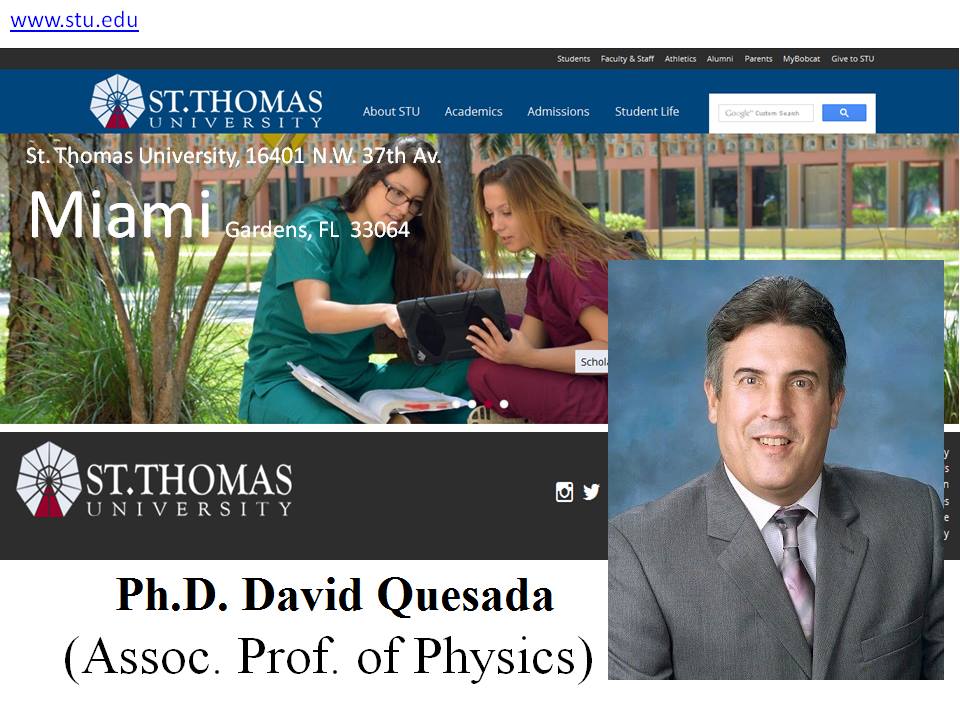
Prof. David Quesada, Director of Dept. of Mathematics, SRI Series Founder Chairman
Miami Dade Colege (MDC), Miami, FL, USA.
Email: dquesada@mdc.edu
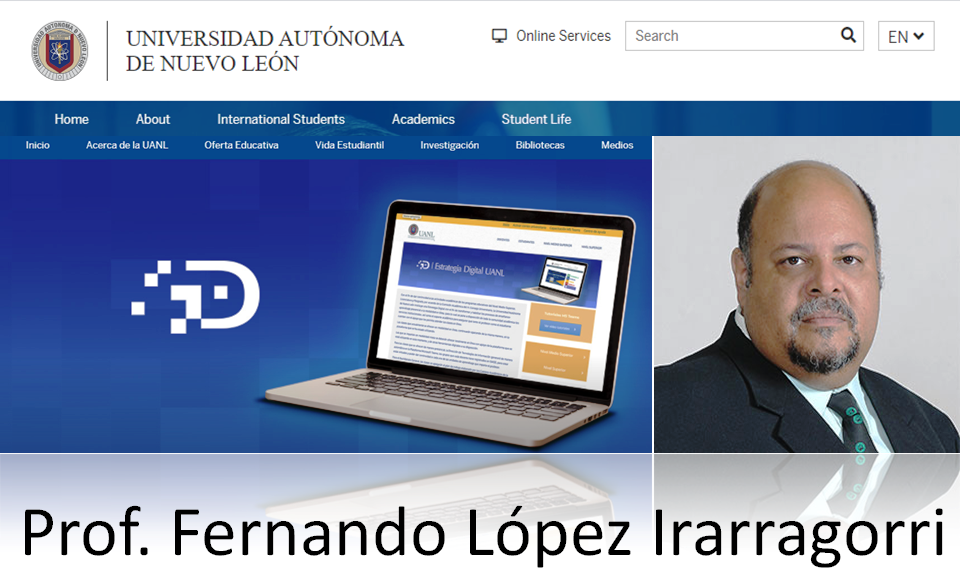
Prof. Fernando López Irarragorri, OTISAD 2018 Chairperson
Professor at the Autonomous University of Nuevo Leon (UANL), México.

 Prof. Humbert González-Díaz, IKERBASQUE Professor, Email:mol2net.chair@gmail.com, MOL2NET & USEDAT Founder Chairman
Prof. Humbert González-Díaz, IKERBASQUE Professor, Email:mol2net.chair@gmail.com, MOL2NET & USEDAT Founder Chairman(1) Dept. of Organic Chemistry II, University of the Basque Country UPV/EHU , 48940, Leioa, Biscay, Spain.
(2) IKERBASQUE, Basque Foundation for Science , 48011, Bilbao, Biscay, Spain.
ORCID:https://orcid.org/0000-0002-9392-2797
USEDAT - SRI Lecturers and Collaborating Professors

People listed as collaborators and/or collaborating professors of the USEDAT school project are those who have: [i] acted as lecturer or coordinator of one of the courses; [ii] Acted as chairperson of one of the workshops, [iii] offered institutional and/or hosting support, [iv] acted as tutor and/or have sent at least one student to participate in courses of other centers.
Professors/Collaborators [North America]:
Prof. Eugene Muratov i,ii, Eshelman School of Pharm., Univ. of North Carolina (UNC), Chapell Hill, USA.
Assist. Prof. Matthew M. Montemore i,iii,iv, Chem. & Biomol. Eng., Tulane University, New Orleans, USA.
Prof. James Robert Green i,ii,iii,iv, Dept. of Systems and Comput. Eng., Carleton University, Canada.
Prof. Terace Fletcher i,ii,iii,iv, Northeast Lakeview College, University of Texas, San Antonio, TX, USA.
USEDAT Professors/Collaborators [Europe]:
Prof. Humbert Gonzalez-Diaz (USEDAT Coord.)i,ii,iii,iv , Prof. Sonia Arrasate i,ii,iii,iv, Prof. Esther Lete (PhD Coord.)i,ii,iii,
Prof. Nuria Sotomayor (MSc Coord.)i,ii,iii, Prof. Fernando Plazaola (Dean)iii, Prof. Ma. Isabel Moreno (Dir. Dept.)ii,iii,
Dr. Aliuska Duardo (Fac. Law)i,ii,iii,iv, Univ. of The Basque Country (UPV/EHU), Leioa, Basque Country, Spain.
Prof. Cristian R Munteanu i,ii,iii,iv, Prof. Alejandro Pazos i,ii,iii,iv, University of Coruña (UDC), Coruña, Spain.
Dr. Yasset Perez-Riverol i,ii, European Bioinformatics Institute (EMBL-EBI), Cambridge, United Kingdom.
Prof. Pedro L. Fernandes i,ii,iii,iv, Bioinformatics Training Coordinator, Instituto Gulbenkian de Ciencia (IGC), Portugal.
Prof. Amaury Pérez Martínezii,iii, Amazon State Univ. (UEA), Ecuador.
Prof. Eduardo Tejera i,ii,iii,iv, Prof. Yunierkis Perez Castillo i,ii,iii,iv (Bio-Cheminformatics Group), Prof. Vinicio Armijos iii,iv,
MSc. Emilia Vasquez i,ii,iii,iv (Biotechnology), Universidad de Las Americas (UDLA), Quito, Ecuador.
Prof. Marcus T Scotti i,ii,iii, Dir. Cheminformatics Lab., Universidade Federal da Paraíba (UFPB), Brazil.
Prof. Esvieta Tenorio-Borroto i,ii,iii,iv , Universidad Autónoma del Estado de México (UAEM), Mexico.
Prof. Boris Mederos iii,iv, Dept. Phys. and Mathematics, Univ. Autónoma de Ciudad Juárez (UACJ), México.
OTISDA 2018 Scientific Committee
Dr. Igor Litvinchev, Professor at the Universidad Autónoma de Nuevo Leon (UANL), México.
Dr. Viacheslav Kalashnikov, Professor at the Instituto Tecnológico de Monterrey (ITESM), México.
Dr. Eduardo R. Fernández González, Professor at the Universidad Autónoma de Sinaloa (UAS) , México.
Dr. Jorge A. Navarro Castillo, Professor at the Universidad Autónoma de Sinaloa (UAS), México.
Dr. Juan C. Leyva López, Professor at the Universidad de Occidente (UdO) , México.
Dra. Laura Cruz Reyes Professor at the Instituto Tecnológico de Ciudad Madero (ITCM), México.
Dr. Rafael A. Espin Andrade, Professor at the Universidad Autónoma de Coahuila (UAC), México.
Dr. Maxim Todorov, Professor at the Universidad de las Americas de Puebla(UDLAP), México
Dr. Rafael Caballero Fernández, Universidad de Malaga (UM), España.
Dra. Rosario C. Garza Rios, Universidad Técnica de la Habana (CUJAE), Cuba.
USEDAT - SRI Scientific Committee
Prof. Dr. Alexis Tapanes-Castillo, Assistant Professor of Biology
School of Science, Technology and Engineering Management,
St. Thomas University (STU), Miami, FL, USA.
Email: atapanes-castillo@stu.edu
Prof. Dr. Reinaldo Sanchez-Arias, Assistant professor of Mathematics,
School of Science, Technology and Engineering Management,
St. Thomas University (STU), Miami, FL, USA.
Email: rsanchez-arias@stu.edu
Prof. Dr. Luis Fernandez-Torres, Assistant Professor of Chemistry,
School of Science, Technology and Engineering Management,
St. Thomas University (STU), Miami, FL, USA.
Email: lfernandez-torres@stu.edu
Dr. Marta G. Lete, Post-Doctoral Research Associate
Dept. of Biochem. & Mol. Biol. and Biofisika: Basque Center for Biophysics
University of the Basque Country UPV/EHU , 48940, Leioa, Biscay, Spain.
Email: marta.gutierrez@ehu.es
Dr. Aliuska Duardo-Sanchez (Law.Lic., Ph.D. TICs & Legal Sciences)
PANELFIT European Commission Project Manager. Research Group: Chair in Law and The Human Genome,
Dept. of Public Law, University of Basque Country (UPV/EHU), Campus Biscay, Leioa 48940, Spain.
Photo Gallery
 |
 |
Thank you for your support!
Congress Chairs
Prof. Dr. David Quesada, Director Department of Mathematics, Miami Dade Colege (MDC), Miami, FL, USA.
Prof. Dr. Humbert Gonzalez-Diaz, Dept. of Org. Chem II, UPV/EHU, Campus Biscay, Ikerbasque, Basque Foundation for Science
03. CHEMBIOINFO-04: Chem-Bioinformatics Congress Cambridge, UK-Chapel Hill and Duluth, USA, 2018

[MOL2NET 2015] [MOL2NET 2016] [MOL2NET 2017] [FACEBOOK (>10K followers)]
[Welcome Videos] [官话] [हिन्दी] [Euskera] [Castellano] [Português] [Français]
CHEMBIPINFO Honor Co-Host Chairpersons
Prof. Alexander Tropsha, Associated Dean UNC Eshelman School of Pharmacy, Associated Editor J. Chem. Info. Model., ACS, USA.
University of North Carolina , Chapel Hill , North Carolina 27599 , USA. Email: alex_tropsha@unc.edu

Prof. Eugene Muratov, Laboratory for Molecular Modeling, UNC Eshelman School of Pharmacy, University of North Carolina , Chapel Hill , North Carolina 27599 , USA. Email: murik@email.unc.edu

Prof. Weifan Zheng, Department of Pharmaceutical Sciences, North Carolina Central University, Durham, USA.
Email: wzheng@nccu.edu
 Dr. Subhash C. Basak, Department of Chemistry and Biochemistry, University of Minnesota, Duluth, MN, USA.
Dr. Subhash C. Basak, Department of Chemistry and Biochemistry, University of Minnesota, Duluth, MN, USA.
 Dr. Yasset Perez-Riverol, European Bioinformatics Institute(EMBL-EBI), Cambridge, United Kingdom.
Dr. Yasset Perez-Riverol, European Bioinformatics Institute(EMBL-EBI), Cambridge, United Kingdom.
 Prof. Humbert González-Díaz, IKERBASQUE Professor, Email: mol2net.chair@gmail.com, MOL2NET & USEDAT Founder Chairman
Prof. Humbert González-Díaz, IKERBASQUE Professor, Email: mol2net.chair@gmail.com, MOL2NET & USEDAT Founder Chairman
(1) Dept. of Organic Chemistry II, University of the Basque Country UPV/EHU , 48940, Leioa, Biscay, Spain.
(2) IKERBASQUE, Basque Foundation for Science , 48011, Bilbao, Biscay, Spain.
ORCID: https://orcid.org/0000-0002-9392-2797
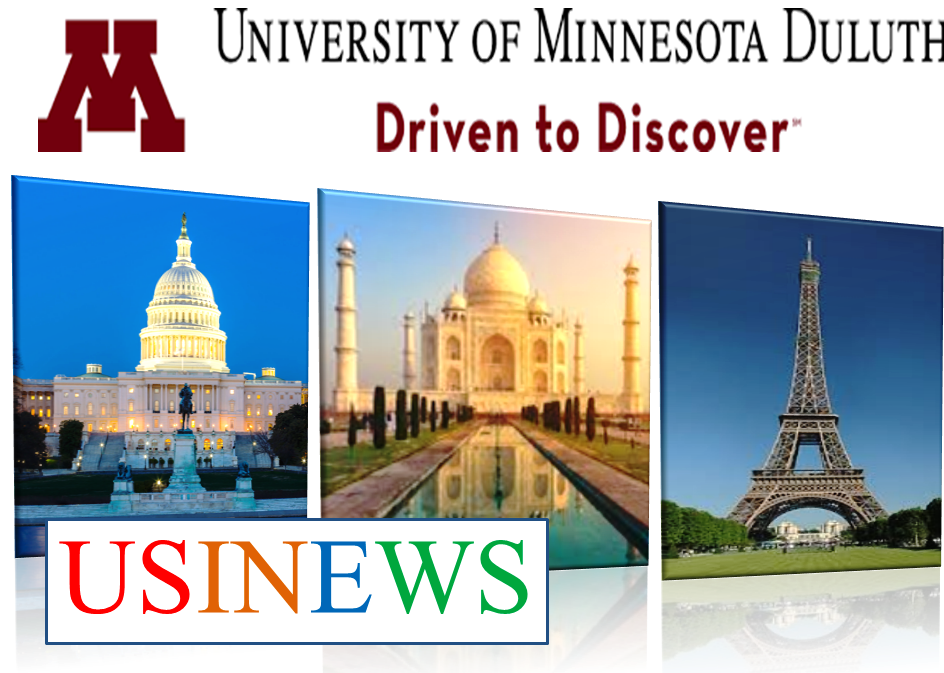
(5) Follow the link in the email or login to upload paper (doc and pdf format) until 2018-Dec-20
(6) Login to post comments, questions, or answers in a section or in one of the MOL2NET workshops (2018-Dec-20 to Dec-25)
Dr. Suhbash C. Basak, Natural Resources Research Institute, Duluth, MN, USA.
Prof. Ashok. K. Dubey, Head of Division, Dean International Affairs, NSIT, New Delhi, India.
Prof. Kunal Roy, Dept. of Pharmaceutical Technology, Jadavpur University, Kolkata, India.
Dr. Shameer Khader, Dept. of Med. Info. and Research Informatics, Northwell Health, NY, USA.
Prof. Rajeev K Singla (M.Pharm), Assist. Prof., SMAS, K.R. Mangalam University, Gurgaon, Haryana, India.
Prof. Dr. Gangarapu Kiran, Assoc. Prof., Dept. of Pharmacy, Anurag Group of Institutions, Venkatapur, Ghatkesar, India.
Prof. Kirtan Dave, Center for Interdisciplinary Studies in Science and Technology, Sardar Patel University, India.
Prof. Nitin Sapre, Shri Govindram Seksaria Institute of Technology and Science, Indore, India.
Dr. Girinath G. Pillai, Zastra Innovations, Bengaluru, Karnataka, India.
Prof. González-Díaz H., IKERBASQUE Professor, Email: mol2net.chair@gmail.com
(1) Department of Organic Chemistry II, University of the Basque Country UPV/EHU , 48940, Leioa, Biscay, Spain.
(2) IKERBASQUE, Basque Foundation for Science , 48011, Bilbao, Biscay, Spain.
Advisory Chairman Assistant
Dr. Aliuska Duardo-Sanchez (Law.Lic., Ph.D. TICs & Legal Sciences)
Post-Doctoral Research Associate, PANELFIT European Comission Project,
Research Group: Chair in Law and The Human Genome, Dept .of Public Law,
University of Basque Country (UPV/EHU), Faculty of Law, Campus Biscay, Leioa 48940, Spain.
Congress Chairs
Prof. Dr. Rajeev K Singla, Assist. Prof., SMAS, K.R. Mangalam University, Gurgaon, Haryana, India.
Prof. Dr. Humbert González-Díaz, Dept. of Org. Chem II, UPV/EHU, Campus Biscay, Ikerbasque, Basque Foundation for Science
04. AIMEDIC-06: AI, Med. Info., & Biomed. Eng. Congress, Coruña, Spain-Miami, USA, 2018.
AIMEDIC-06, UDC, CORUÑA, SPAIN, 2018
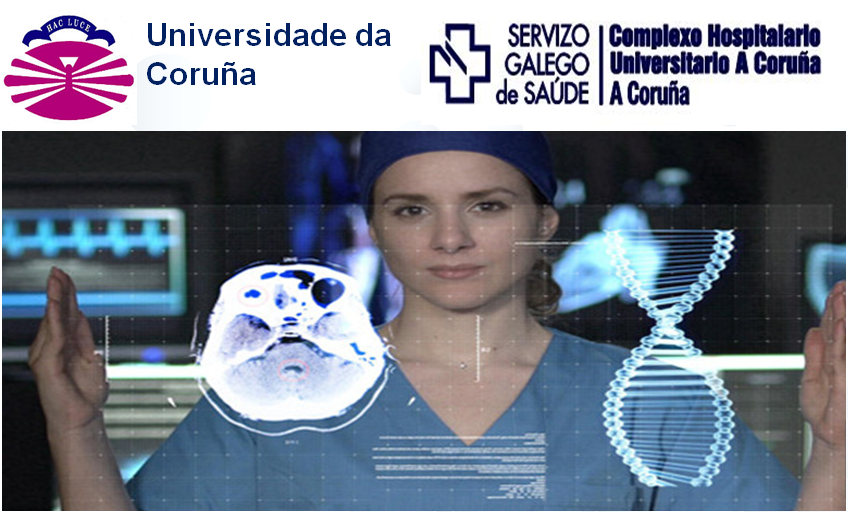
Workshop Chairman

Prof. Alejandro Pazos, Ph.D., M.D., Chair Professor of Department of Information and Communication Technologies, Faculty of Computer Sciences, University of Coruña (UDC), Coruña, Spain.

Prof. David Quesada, Director of Dept. of Mathematics, SRI Series Founder Chairman
Miami Dade Colege (MDC), Miami, FL, USA.
Email: dquesada@mdc.edu
Scientific Committee
Dr. Antolín Rodriguez Martínez
Dr. Guillermo Vázquez González
Local Committee
Prof. Cristian Robert Munteanu
Prof. Nieves Pedreira
Prof. Javier Pereira
Prof. Ana B Porto-Pazos
Prof. Juan R. Rabuñal
Organizing Committee
Assist. Prof. drián Carballal Mato
Ph.D. Enrique Fernández Blanco
M.Sc. Candela Rodríguez Suárez
(RNASA-IMEDIR Project Manager)
Advisory Publication Chair
Prof. González-Díaz H., IKERBASQUE Professor, Email: mol2net.chair@gmail.com
(1) Department of Organic Chemistry II, University of the Basque Country UPV/EHU , 48940, Leioa, Biscay, Spain.
(2) IKERBASQUE, Basque Foundation for Science , 48011, Bilbao, Biscay, Spain. ![]() ORCID: https://orcid.org/0000-0002-9392-2797
ORCID: https://orcid.org/0000-0002-9392-2797
(Online Publication)
Conference Proceedings
Video Conferences Playlists
Please, visit the channel of the RANASA-IMEDIR group and/or follow the present link to visualize all the video conferences presented o this workshop [IWMEDIC playlist]. You can see these conference also on the IWMEDIC - MOL2NET shared playlist as alternative landing page [IWMEDIC mirror]
SPONSORS
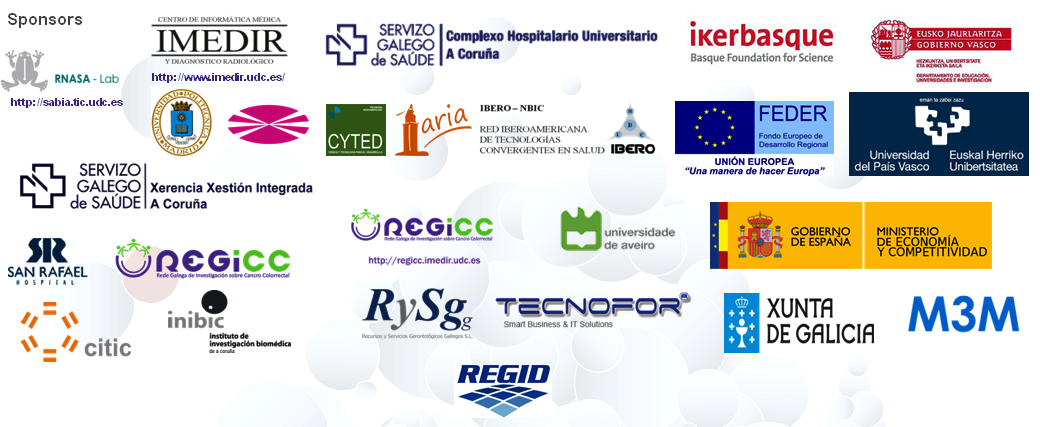
Congress Chairs
Prof. Dr. med. Alejandro Pazos, RNASA-IMEDIR, Computer Sciences Faculty, University of Coruña, 15071 Coruña, Spain., INIBIC Institute of Biomedical Research, CHUAC, UDC, 15006 Coruña, Spain.
Ms. Cadela Rodriguez-Suarez, RNASA-IMEDIR, University of Coruña (UDC), Coruña, Spain
05. MODEC-03: Workshop on Natural Products and Agro-Industrial Procesess in Amazon, UEA, Puyo, Ecuador, 2018
MODEC, 3rd Edition
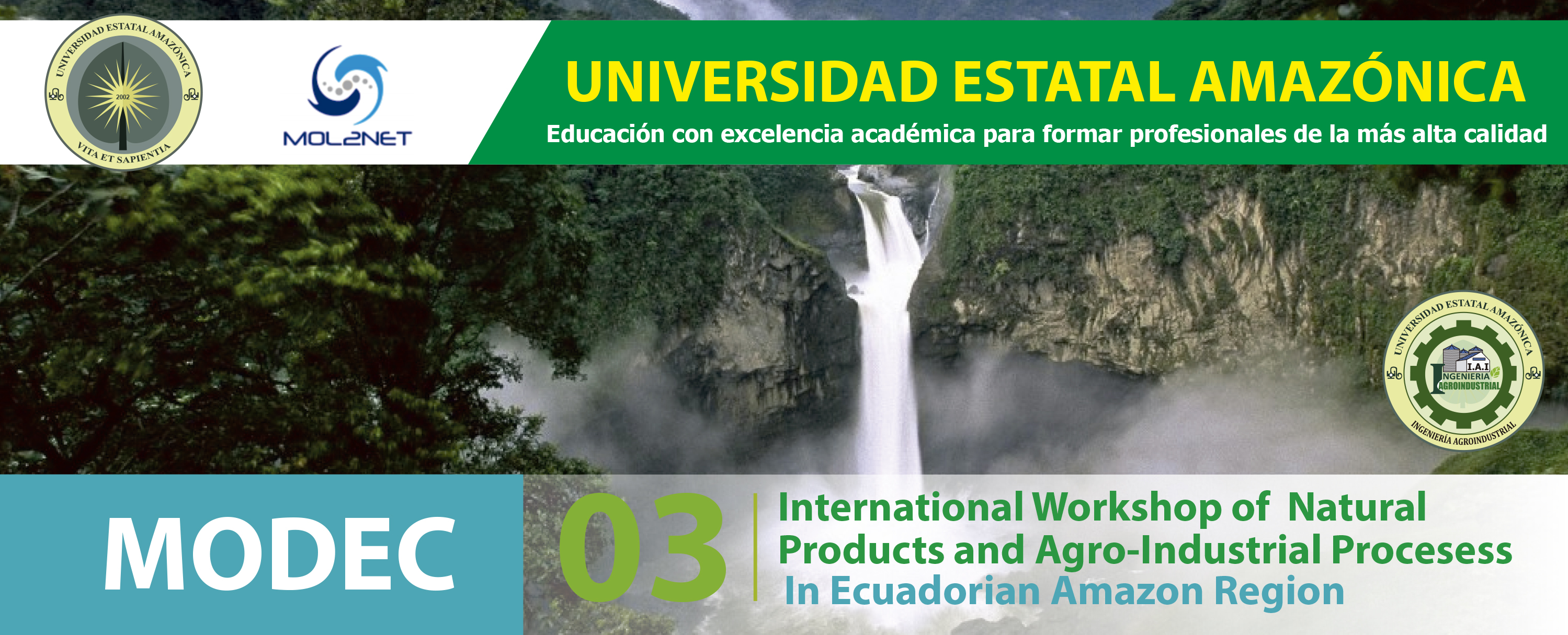
[Workshop Editorial & Full Committee]
MODEC 2018 (Submissions Open)
NOTE ON PUBLICATION MODEL: Before to submit your work be aware that the editorial publication model of this workshop is similar to a PREPRINTservice. It means that works presented here have to be considered only as preliminary communications and not as final post-print versions of journal papers. In this sense, even when all the works published are revised by at least one member of the committee and/or external reviewer this level of revision checks only apparent scientific soundness and general scientific interest. In a second level, collective post-publication review, the works published may receive comments (published in the form of posts) from all the participants registered in the conference. The authors are prompted to use all these opinions to write the full versions of their works and submit them to publication in a peer-reviewed scientific journals according to SciForum copyright rules. In any case, the authors are the only one responsible of the veracity of the contents, checking similarity to other works, citing properly previous works, etc.
MODEC2018, International Workshop on the Natural Products and Agro-Industrial Processes in Ecuadorian Amazon region
Welcome to the MODEC2018 workshop. This is Amazon State University's (UEA) first workshop, devoted to the promotion and application of the Multidisciplinary Sciences to the development of natural products and agro-industrial processes in Ecuadorian Amazon regions. This workshop runs both online and on location at the university. The online portion of the workshop is powered by the SciForum platform of MDPI, hosted by the MOL2NET International Conference Series on Interdisciplinary Sciences.
Additionally, the physical component of the workshop is also scheduled to run through the Department of Earth Sciences (Facultad de Ciencias de la Tierra) at Universidad Estatal Amazónica (UEA), Puyo, Ecuador. Please, contact the workshop chairmen for further details. Paper submission is already open and the publication of papers for conference purposes in SciForum platform is free of cost.
Publications are expected to be short papers consisting of 1-3 pages. Be aware that the submission is a two step process. First you must register and submit a tentative title, authors list and abstract. Next, you need to submit your full publication upon acceptance of the abstract by the committee. Full publications will be published online, free of charge, with doi number as soon as possible after acceptance. If you are planning to submit a publication, please use the following template, MODEC Template.doc. Click on the following link to register and/or submit your communication Sumit to MODEC here.
All submitted papers should fall under one of the following categories:
- Computational chemistry, Cheminformatics, and Bioinformatics
- Mathematical modeling
- Organic and Functional Foods
- BioTrade: Natural Products of the Amazon
- Production systems with agro-business and forestry purposes or biomass for energy purposes
- Environmental impacts
- Agro-industrial development processes
- Abstracts submission until 2018-Oct-01, Envio de los abstract hasta el 01 de octubre de 2018.
- Abstract acceptance until 2018-Oct-03.
- Communications submission until 2018-Nov-01.
- Communications acceptance until 2018-Nov-15.
- Communications publication until 2018-Nov-30.
Chairperson
Prof. Amaury Pérez Martínez received his Bs. in Chemical Engineering in 2002, his MSc degree in Chemical Engineering Processes and Analysis in 2007, and his PhD degree in Chemical Engineering in 2013. He has worked in the development of new technology in the Chemical Industry. Currently, he is an Assistant Professor of Agro industrial Engineering at Amazon State University (UEA) in Puyo, Ecuador. His research interests include philosophy of process design, simulation, and sustainable development
Institution: Universidad Estatal Amazónica, Ecuador
Email: amperez@uea.edu.ec
Honoray Chairman
Prof. Dr. C. Julius Caesar Vargas Burgos, Full Professor and Rector of Amazon State University (UEA), Puyo, Ecuador
Congress Chair
Dr. Amaury Pérez Martínez
06. CHEMBIOMOL-04: Chem. Biol. & Med. Chem. Workshop, Paraiba, Porto, Rostock, Germany-Galveston, Texas, USA, 2018
CHEMBIOMOL Associated Workshops.
BIOCHEMPHYS Workshop
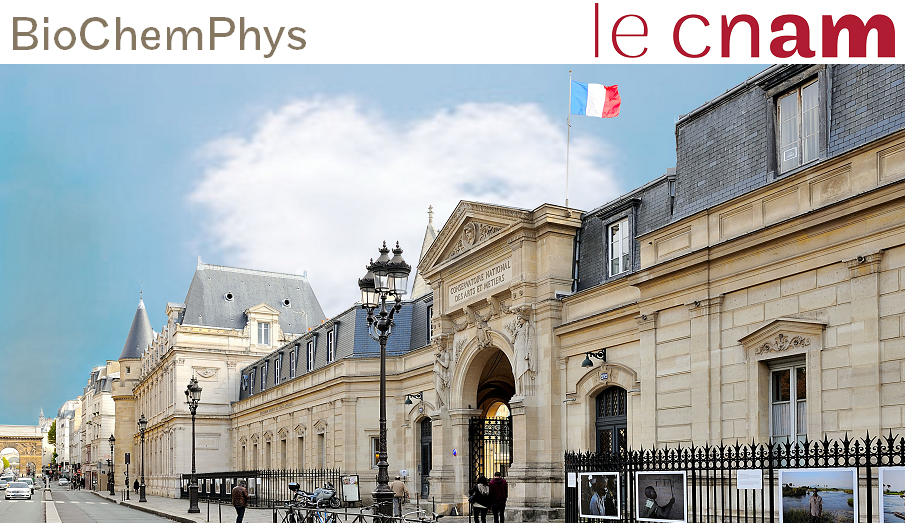
You are cordially invited to participate in BIOCHEMPHYS-01: International Franco-Tunisian workshop on Med. Chem., Biotech., and Phys. Chem., Cnam, Paris, France, 2018. This is the first International Franco Tunisian Workshop on Medicinal Chemistry, Biotechnology, and Physical Chemistry at Cnam, Paris, France, 2018. This scientific workshop is organized by Professors and Researchers of the Laboratory of Molecular Chemistry (CMGPCE) and the Laboratory of Systems & Applications of Information & Energy Technologies (SATIE) (at Cnam, Paris, France) with their Tunisian colleagues who participate to the UTIQUE Hubert Curien Program (PHC UTIQUE managed by Campus France and CMCU). The Tunisians partners are Professors and Researchers at the Laboratory of interfacing and advanced materials (LIMA, Monastir University), Biotechnology Center of Sfax (CBS), the Higher Institute of Biotechnology of Sfax (ISBS) and Unité de Recherche "Physique des Matériaux Isolants et Semi-isolants" (PMISI, Faculty of Sciences of Sfax). The host institution, Conservatoire national des arts et métiers, Cnam, is a higher education and research institution dedicated to adult continuing education. It holds a unique, original position in the French educational landscape with nearly 150 educational centers in France and a large presence worldwide. Since its foundation in 1794, Cnam has closely combined academic knowledge and professional skills with a strong relationship with the industry. In a context marked by new economic and societal expectations, the Research in Cnam is very dynamic, and guaranty a high-level scientific positioning. It covers a large variety of domains varying from chemistry, biology, bio-informatic to physics, mathematics and material science. This workshop series is planned to be held each academic term an. It is devoted to fostering both education and research in multidisciplinary sciences with emphasis in Molecular Sciences (Organic and Medicinal Chemistry), Physical-chemistry, Biochemistry, Nanotechnology, Materials Sciences, Cheminformatics, Physics, …. Researchers and students from other institutions around the world are welcomed. All accepted papers receive a DOI number and are published online before being published at the end of year on the conference proceedings book with ISSN and ISBN numbers. The BIOCHEMPHYS-01 is in large measure targeted for graduate and PhD students, chemists and bioinformaticians researchers and scientists involved in areas related to Medicinal Chemistry, Cheminformatics and /or Bioinformatics, Biophysics, Physics, Protein Engineering, Biosensors and Chemical Sensors, Biomarker detection, Modelling and Simulation. Research work related with the use of new materials for photocatalytic applications and energy storage are also welcome.
Steering Committee (Chairpersons)
Dr. Maité SYLLA (Associated Professor) Email: maite.sylla@lecnam.net
Conservatoire National des Arts et Métiers (Cnam), Laboratory of Molecular chemistry, Chemical and Energy Process Engineering, CMGPCE, EA7341, Paris, France
Dr. Najla FOURATI (Associated Professor) Email: najla.fouratiennouri@lecnam.net
Conservatoire National des Arts et Métiers (Cnam), Laboratory of systems & application of information & energy technologies, SATIE UMR CNRS 8029, Paris, France.
Dr. Chouki ZERROUKI (Associated Professor) Email: chouki.zerrouki@lecnam.net
Conservatoire National des Arts et Métiers (Cnam), Laboratory of systems & application of information & energy technologies, SATIE UMR CNRS 8029, Paris, France.
Scientific Committee
Pr. Marc PORT, Professor of Organic and Medicinal Chemistry; Email: marc.port@lecnam.net
Conservatoire National des Arts et Métiers (Cnam), Laboratory of Molecular chemistry, Chemical and Energy Process Engineering CMGPCE, EA7341, Paris, France
Pr. Mathieu MONTES, Professor of Bioinformatics Email: matthieu.montes@lecnam.net
Conservatoire National des Arts et Métiers (Cnam), Laboratory of genomics, bioinformatics and applications, Paris, France
Dr. Mehdi El ARBI Assistant professor of Biology and Biotechnology; Email: mehdi.elarbi@isbs.usf.tn
Higher Institute of Biotechnology of Sfax (ISBS), Tunisia
Pr. Mandouh BEN ALI, Professor of Microbiology Email: mamdouh.benali@cbs.rnrt.tn
Laboratory of Microbial Biotechnology and Enzyme Engineering, Center of biotechnology of Sfax (CBS), Tunisia
Pr. Hajer GUERMAZI, Professor of Physics; Email: hajer.guermazi@gmail.com
Faculty of sciences of Sfax, Research Unit "Physique des Matériaux Isolants et Semi-isolants", PMISI, Sfax, Tunisia
Pr. Ali OTHMAN, Professor of Biophysics; Email: ali.othmane54@gmail.com
Faculty of Medicine of Monastir, Laboratoire d'interface et de matériaux avancés, LIMA, Monastir, Tunisia.
Pr. Mustapha MAJDOUB, Professor of Polymers; Email: mustaphamajdoub@gmail.com
Faculty of Sciences of Monastir, Laboratoire d'interface et de matériaux avancés, LIMA, Monastir, Tunisia
Pr. Moncef MSADDEK, Professor of Organic Chemistry, Email: moncef.msaddek@fsm.rnu.tn
Faculty of Sciences of Monastir, Laboratory LR11ES39, Heterocyclic chemistry team, Monastir, Tunisia
Dr. Girish GUPTA, P, Associate Professor of Organic and medicinal chemistry; Email: girish_pharmacist92@rediffmail.com
M.M.College of Pharmacy, Maharishi Markandeshwar, Mullana, Amabala, Haryana, India
Pr. Riadh HAMMAMI, Microbiology, Faculty of Health Sciences, University of Ottawa, Canada
Email: Riadh.hammami@uottawa.ca, Website: http://hammamilab.org/
Pr. Elisa JORGE RODRIGUEZ, Professor of Pharmaceutical Email: elisa@uclv.edu.cu
Department of Pharmacy, Universidad Central "Marta Abreu" de Las Villas, Cuba
Honor Advisory Committee
Pr. Clotilde FERROUD, Director of research of Conservatoire national des arts et métiers (Cnam), Paris, France
Email: clotilde.ferroud@lecnam.net (Institution site: http://www.cnam.fr/)
Pr. Slim ABDELKAFI, Director of the National School of Engineers of Sfax (ENIS), Tunisia.
Email: slim.abdelkafi@enis.usf.tn (Institution site: http://www.enis.rnu.tn)
Pr. Mohamed KOUBAA, Director of Higher Institute of Biotechnology of Sfax, (ISBS), Tunisia.
Email: mohamed.koubaa@isbs.usf.tn (Institution site: http://www.isbs.rnu.tn )
Pr. Hammadi AYADI, CEO of Sidi Thabet BiotechPole, Tunisia
Email: ayadi.hammadi@gmail.com (Institution site: http://www.biotechpole.tn)
Dr. Moez BEN ALI, Oncology Region Europe Director at Novartis, France
Email: moez.ben_ali@novartis.com, (Institution site: https://www.novartis.fr/)
Pr. Sonia ARRASATE, Department of Organic Chemistry II,
University of Basque Country (UPV/EHU), 48940, Leioa, Biscay, Spain.
Email: sonia.arrasate@ehu.eus ,
Advisory Publication Chairs
Pr. Humbert GONZALEZ-DIAZ, IKERBASQUE Professor, Email: mol2net.chair@gmail.com
(1) Department of Organic Chemistry II, University of the Basque Country UPV/EHU, 48940, Leioa, Biscay, Spain.
(2) IKERBASQUE, Basque Foundation for Science, 48011, Bilbao, Biscay, Spain.
Dr. Aliuska DUARDO-SANCHEZ (Law.Lic., Ph.D. TICs & Legal Sciences) Post-Doctoral Research Associate, Program Juan de La Cierva (JdC),
Chair in Law and The Human Genome, Department of Public Law, Faculty of Law, University of Basque Country (UPV/EHU), Biscay, Leioa 48940, Spain.
CHEMBIOPHYS Sponsors
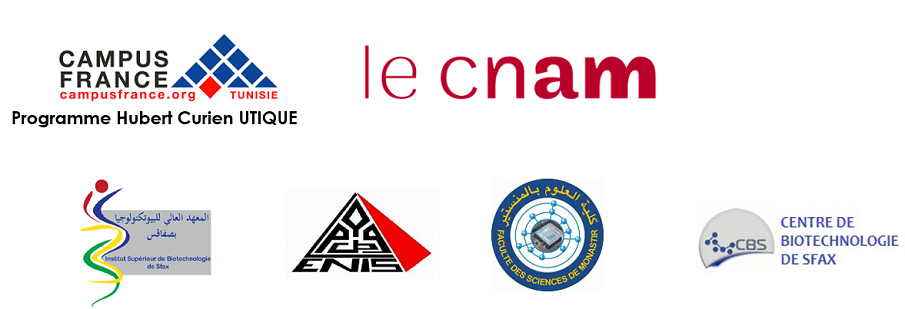
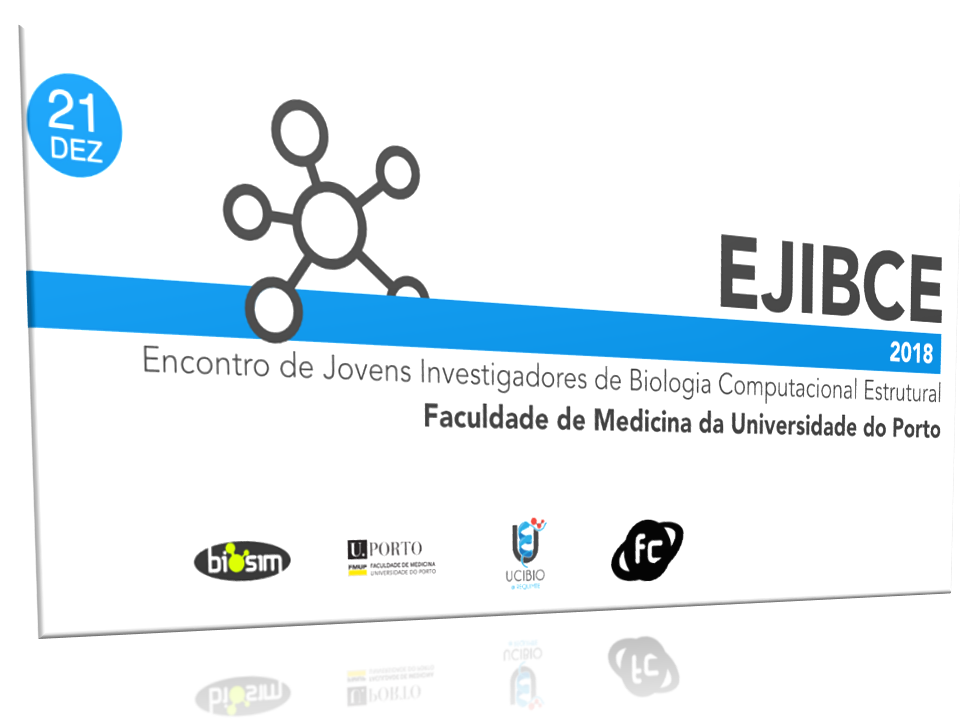
CHEMBIOMOL-04 published the works presented at the Meeting of Young Researchers in Structural Computational Biology (EJIBCE 2018), see last edition (EJIBCE 2017), aims at bringing together the Portuguese scientific community working in the field in a free-of-charge meeting, to provide a forum for discussion and sharing with no strings attached. This Sixth edition builds on the success of previous editions in Porto, Lisbon, Coimbra, Oeiras and Coimbra, which gathered ca. 60 participants and had over 10 oral communications in each edition. Given the current economic situation in Europe, and particularly in Portugal, it is increasingly harder to obtain funding and to have an optimistic approach to science and collaborations. Besides, the recent austerity measures put in place by the Portuguese government led many researchers to join groups and institutes abroad, and eventually lose touch with the Portuguese scientific community and developments. After obtaining a doctoral degree or finishing a postdoctoral appointment, many Portuguese scientists abroad look back to their country looking for an opportunity to continue their careers and contribute to the development of Portuguese science. Others wish to remain abroad, but at the same time reach out to the Portuguese community and cultivate stronger ties to its researchers. However, what groups are there on Computational Structural Biology? What do they actually focus on? Are they open to collaborations? This meeting was created in order to answer these and other similar questions. Its main goal is to provide a simple no-frills environment where Portuguese researchers in Computational Structural Biology, active both in Portugal and abroad, can meet and get to know each other’s research and ambitions. Ultimately, we hope that in doing so, we will be able to stimulate new collaborations and broaden the horizons of the Portuguese community of Computational Structural Biologists. EJIBCE 2018 builds up on the format of previous editions, focusing on a small number of oral communications interspersed with several breaks to encourage discussion and exchange of ideas. Throughout the day, 12 researchers will present their results. Seven will be selected from the submitted abstracts by the Scientific Committee, based on the quality and originality of the work, and will be given 15 minutes to speak, followed by a short discussion. The remaining 5 oral communications will be delivered by invited keynotes, who will be given 25 minutes to speak plus 10 for discussion.
Invited Keynotes: Diogo Santos-Martins (Scripps Research Institute, California, USA), Ana Newton (Yale University, USA), João Henriques (University of Copenhagen, Denmark), Marta Carneiro (ZoBio B.V., The Netherlands), Joana Pereira (Max Planck Institute, Tübingen, Germany), Website: http://ejibce.github.io
Statement of Responsibility. All materials and services on this website are provided without warranties. The content published in these pages may contain errors for which the organization assumes no liability or responsibility. The content is also subject to periodic changes without the duty of notice. Any doubts and questions should be addressed to the organization by email (ejibce@biosim.pt). Registration to this event implies acceptance of these conditions.
CHEMBIOMOL MDPI Associated Journal Special Issues

Molecules (Call For Papers): Special Issue: GPCR Mechanism and Drug Design. Journal: Molecules (ISSN 1420-3049), JCR IF = 3.098. Topics: data science; drug design and discovery; computational chemistry; structural biology; molecular modeling; molecular docking; computational mutagenesis; G-protein-coupled receptors; protein–protein interactions; protein–ligand interactions. Editor: Dr. Irina Moreira, Email: irina.moreira@cnc.uc.pt, Center for Neuroscience and Cell Biology (CNC), University of Coimbra (UC), Portugal. Workshop Associated: EJIBCE, Encontro de Jovens Investigadores de Biologia Computacional e Estrutural, Portugal, 2018.
Molecules (Call For Papers): Special Issue: Structure and Function of Metalloenzymes. Journal: Molecules (ISSN 1420-3049), JCR IF = 3.098. Topics: catalytic power of enzymes; computer-aided drug design; bio-desulfurization; computational methods in chemistry and biochemistry; metalloenzymes; biological membranes; docking and virtual screening; computational enzymatic catalysis. Editor: Dr. Sérgio Filipe Sousa, Email: sergiofsousa@med.up.pt, UCIBIO/REQUIMTE, BioSIM - Departamento de BioMedicina, Faculdade de Medicina da Universidade do Porto, Porto, Portugal. Workshop Associated: EJIBCE, Encontro de Jovens Investigadores de Biologia Computacional e Estrutural, Portugal, 2018.
WRSAMC-03: Workshop in Medicinal Chemistry, UFPB, Paraiba, Brasil, 2018
 |
WRSAMC-03: Workshop in Medicinal Chemistry. This year CHEMBIOMOL-04 also published selected papers in English presented at the conference WRSAMC-03: Workshop in Medicinal Chemistry, UFPB, Paraiba, Brasil, 2018. |
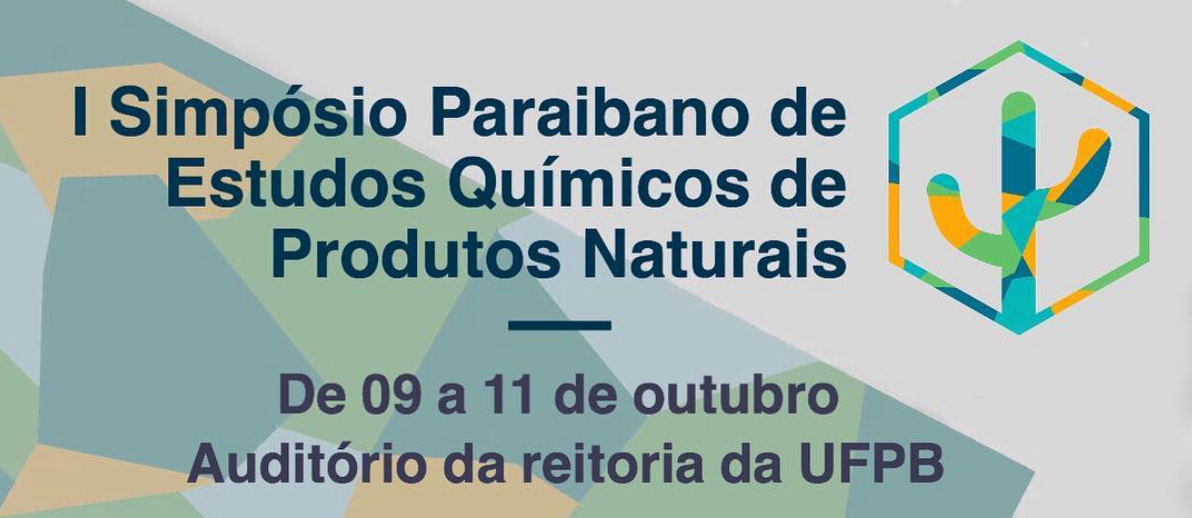
CHEMBIOMOL-04 publish the communications presented at the Workshops on Research in Sciences Applied to Medicinal Chemistry (WRSAMC) 2018. This workshop series is organized by researches from Department of Chemistry, Programa de Pós-Graduação em Produtos Naturais e Sintéticos Bioativos (PgPNSB - Postgraduate Program in Natural Products and Synthetic Bioactive) and Hospital Universitário of Universidade Federal da Paraíba (UFPB). This year, as well as last year, WRSAMC is dedicate to the PgPNSB 40th Anniversary. More specifically, this year WRSAMC hosts the first symposium in Paraiba for chemical studies of natural products. It included the 1st Paraiban Symposium on Chemicals for Natural Products (I SIMPEQPN) will take place from 9 to 11 October 2018 in the Auditorium of the Rectory of the Federal University of Paraíba, in João Pessoa. To celebrate the 40th anniversary of PPgPNSB, the scientific committees and organizers of I SIMPEQPN are developing a versatile scientific program around the current and exciting topic: Chemicals for Natural Products. The symposium will have as main theme the chemical studies of natural products, among them: spectroscopic techniques, chromatographic, synthesis, quality control, among others. Guests from the institution and outside will present / discuss aspects related to natural history, cultivation, breeding, quality control, ethnobotany, ethnopharmacology, phytochemistry, pharmacology, among other research areas, conferences and lectures that will take place during the three days of the event. There will also be poster sessions as well as oral presentations. Participants will receive certificates and abstracts of papers will be published in online proceedings. -150 participants; -Presentations in posters and oral; -Speeches; -Conferences. Please, check official SIMPEQPN event page in Facebook as well.
I Simpósio Paraibano de Estudos Químicos de Produtos Naturais (I SIMPEQPN)
O I Simpósio Paraibano de Estudos Químicos de Produtos Naturais (I SIMPEQPN) acontecerá de 9 a 11 de outubro de 2018 no auditório da Reitoria da Universidade Federal da Paraíba, em João Pessoa. Para celebrar o 40º aniversário da PPgPNSB, os comitês científicos e organizadores do I SIMPEQPN estão desenvolvendo um programa científico versátil em torno do atual e excitante tema: Estudos Químicos de Produtos Naturais. O simpósio terá como tema principal os estudos químicos de produtos naturais, entre eles: técnicas espectroscópicas, cromatográficas, síntese, controle de qualidade, entre outros. Convidados da instituição e externos apresentarão/debaterão aspectos relacionados à história natural, cultivo, melhoramento, controle de qualidade, etnobotânica, etnofarmacologia, fitoquímica, farmacologia, entre outras áreas de investigação, em conferências e palestras que ocorrerão ao longo dos três dias de evento. Haverá também apresentação sessões de pôsteres, além das apresentações orais. Os participantes receberão certificados e os resumos dos trabalhos serão publicados em anais online. -150 participantes; -Apresentações em pôsteres e oral; -Palestras; -Conferências.
CHEMBIOMOL Computational Sciences Topics: In addition, the workshop also deals with the application of new Information and Communication Technologies (ICTs) in the previous experimental areas. This includes, Chemoinformatics, Bioinformatics, Data Analysis, Statistics, Artificial Intelligence, Deep Learning, Programming, Databases, Complex Network Analysis of Biosystems, Complexity in Biosystems, Multiscale Systems, Chemical Computation, Theoretical Biology, etc.
Bioethics & Regulatory Topics: Last, not the least, the workshop deals with all the Legal, Regulatory, and Bioethics issues emerging from use of new experimental and ICTs in the previous areas such as Drug Patenting, Drug re-purposing patents, Proteome and Genome patentability, Synthetic Biology, Modified Organisms, Biomedical Personal Image Processing, Personal Data Protection, Personalized Medicine, Software and Models Copyrights, etc.
(5) Follow the link in the email or login to upload paper (doc and pdf format).
(6) Login to post comments, questions, or answers in a section or in one of the MOL2NET workshops.
 Prof. Jia Zhou, Department of Pharmacology and Toxicology, University of Texas Medical Branch, Galveston, TX, USA.
Prof. Jia Zhou, Department of Pharmacology and Toxicology, University of Texas Medical Branch, Galveston, TX, USA.
(EIC Current Topics in Medicinal Chemistry)



(Coordinator Ph.D. Synth. & Ind. Chemistry)

Prof. Nuria Sotomayor, Dept. Org. & Inorg. Chem., University of Basque Country (UPV/EHU), Basque Country, Spain.

(Coordenador Docente), Dept. de Química, Centro de Ciências Exatas e da Natureza,
Universidade Federal da Paraíba - Campus I, Cidade Universitária, Paraíba, Brazil.
Prof. Vicente Carlos de Oliveira Costa (Vice-coordenador Docente), Instituto de Pesquisa em Farmacos e Medicamentos, Universidade Federal da Paraíba - Campus I, Cidade Universitária, CEP: 58.051-900, João Pessoa - Paraíba – Brasil.
Msc. Ana Rita Rodrigues de Almeida Silva (Coordenadora Discente)
Msc. Laisla Rangel Peixoto (Vice-coordenadora Discente)
EJIBCE-02 Chairpersons
Dr. Sérgio F. Sousa, UCIBIO/REQUIMTE, BioSIM - Departamento de BioMedicina, Universidade do Porto, Portugal.
Dr. Nuno S Cerqueira, UCIBIO/REQUIMTE, BioSIM - Departamento de BioMedicina, Universidade do Porto, Portugal.
CHEMBIOMOL Scientific Committee
Prof. Yagamare Fall, Dept. of Organic Chemistry, University of Vigo (UVIGO), Vigo, Spain.
Prof. Generosa Gómez, Dept. of Organic Chemistry, University of Vigo (UVIGO), Vigo, Spain.
CHEMBIOMOL Advisory Publication Chairman
Prof. González-Díaz H., IKERBASQUE Professor, Email: mol2net.chair@gmail.com
(1) Department of Organic Chemistry II, University of the Basque Country UPV/EHU , 48940, Leioa, Biscay, Spain.
(2) IKERBASQUE, Basque Foundation for Science , 48011, Bilbao, Biscay, Spain.
![]() ORCID: https://orcid.org/0000-0002-9392-2797
ORCID: https://orcid.org/0000-0002-9392-2797
ICTs & Regulatory Affairs Chairperson
Dr. Aliuska Duardo-Sanchez (Law.Lic., Ph.D. TICs & Legal Sciences)
PANELFIT European Commission Project Manager. Research Group: Chair in Law and The Human Genome,
Dept. of Public Law, University of Basque Country (UPV/EHU), Campus Biscay, Leioa 48940, Spain.
Congress Chairs
Prof. Dr. Luciana Scotti, Hospital Universitário, Universidade Federal da Paraíba - Campus I, Cidade Universitária, João Pessoa - Paraíba - Brasil
Prof. Dr. Marcus T. Scotti, Departamento de Química, Centro de Ciências Exatas e da Natureza, Universidade Federal da Paraíba - Campus I, Cidade Universitária, João Pessoa - Paraíba - Brasil
07. TECHLAWSCI-02: PANELFIT H2020 Tech. Law. & Sci. Challenges, Bilbao, Spain, Halden, Norway, Baltimore, USA, 2018

Welcome to the workshop TECHLAWSCI-05: PANELFIT & NKL H2020 Tech. Law. & Sci. Challenges, Bilbao, Spain, Halden, Norway, Baltimore, USA, 2018. LAWSci workshop series promotes multidisciplinary collaborations and debate in the frontiers of Law, Technology, Life, Education, Ethics, and Social Sciences in general. The conference will run on-line and free, saving traveling and participation costs (subscriptions, open publication, participation in forum, certificates, etc., are free of cost). The presentations will be focused on legal trends in different fields covering, but not limited to:
Law, Ethics, Biomedical Sciences. Patentability in plants and human genomics. Clinical procedures’ standards. Personalised Medicine and Patients’ personal data protection, informed consent. Regulatory issues in Vaccine design, Drug Discovery, Biomedical research legislation. Medical affairs, medico-legal problems, healthcare malpractice, medical insurance or ethics in medical practice, and social sciences. Taxes in the Biotechnology industry and causality/liability in environmental pollution, criminology, etc.
ICTS, Law, Education, Commerce, & Social Sciences. Law and Bioethics in Artificial Intelligence. Taxes and causality/liability in Online Social Networks, Online E-Commerce, and Cryptocurrency, e.g, Bitcoin. Cybersecurity and Personal Data Protection in Web Applications and Online Social Networks, e.g., Whatsapp, Skype, Facebook, Tik Tok, Instagram, etc. Online Education, Mutual Learning, Massive Online Courses. Software protection in Chemo-informatics, Bioinformatics, Medical informatics and Biomedical Engineering.
PANELFIT Sponsorship
Both LAWSci and NKL4 conference have been sponsored, among others, by the European Commission Project PANELFIT H2020. In this sense, the workshop series will help to attract the attention of the pubic worldwide over the topics of the project. The project is concerned about changes in the regulation of ICT research and innovation are opening up a new scenario. It is expected that stakeholders, policy makers, and end users adapt to them as soon as possible. PANELFIT is firmly committed to facilitating this adaptation process by producing a set of editable, open access Guidelines, validated by two data protection agencies. Once produced, they will serve as operational standards able to reduce the ethical and legal issues posed by ICT technologies while promoting innovation and market growth, enabling high-quality job creation and ensuring an adequate level of privacy and security/cybersecurity. Furthermore, we will produce a complementary set of six outcomes to 1) suggest possible concrete improvements to the current regulatory and governance framework, both at the EU and the national level, 2) create mutual learning and support tools and to promote networking among stakeholders and policy makers and 3) increase the quantity and quality of the information available to policy makers, professionals, researchers, journalists and the public. All these outcomes will be produced by a co-creation process involving policy makers, stakeholders, and end-users. They will all participate in the creation of the main outcomes of the project through a range of engagement activities that includes workshops, public consultations, encounters, surveys, etc. This will be combined with a strong communication and dissemination strategy that includes numerous activities, such as webinars, MOOC courses, public debates, a constant use of a web site and social networks and the creation of a Platform for Mutual Learning, which is meant to become the reference forum for the discussion of the issues at stake even after the end of the project. The participation in PANELFIT of the European Data Journalism Network, with an aggregated web audience of almost 70 million monthly visits will help us reach this aim.
Publication Model and Authors Responsibility: Before to submit your work be aware that the editorial process is the same than for a PREPRINT service. Therefore, all works receive doi number and are indexed in databases (GoogleScholar, Publons, etc.). However, the works published here are preliminary communications and not post-print journal papers. In this sense, committee and/or external reviewers check only scope and apparent scientific soundness. The works may receive also comments from registered participants (public post-publication review). The authors are encouraged to submit their works to a peer-reviewed scientific journals of MDPI or other editorials during or after finalization of the conference, as per SciForum copyright rules.
In any case, it is the responsibility of the authors, to ensure the veracity of the contents, checking similarity to other works, and carry out a proper citation of previous works. The committee is not responsible of this previous aspects in this publishing modality. In this sense, we strongly recommend the authors to use online text-similarity checking services to avoid any form of plagiarism or copyright violation. Some workshops in this conference series use specialized services to checked for possible text similarity. For instance, some users use institutional accounts for URKUND web server. Please, be aware that the authors may be requested to modify (re-write their texts) the communication in the case that high similarity is detected and reported to the committee. In these cases, the manuscript could temporarily withdrawn until the authors re-submit the proper version. The authors are also allowed to submit short reviews, comments, letters, or discussions of papers already published if they guarantee sufficient difference to previous public contents.
PANELFIT MOOC Training Program: This year, we are promoting a totally free of cost Massive Online Open Course (MOOC) about ICTs, Data Analysis, and GDPR Data Protection Legislation. The main organizer of this course is PANELFIT H2020 European Union project, grant agreement No 788039. The enrollment page for the course opens several times along the year. Please click on the following link in order to check if online registration is open or see the next date [PANELFIT MOOC HOMEPAGE] . As part of this course you need to watch some videos, and answer some questions to complete it. This course is offered within the framework of the PANELFIT H2020 Project by the University of the Basque Country UPV/EHU, with the help of the Partners and especially of the European Citizen Science Association (ECSA). The specific objective of this course is to train citizens on basic ethical and legal issues related to the protection of personal data, in accordance with the new European Data Protection Regulation and complementary regulations.
TECHLAWSci Steering Committee
|
|
|
Prof. Dr. Iñigo de Miguel Beriain IKERBASQUE Professor, Research Group: Chair in Law and The Human Genome, Department of Public Law, University of Basque Country (UPV/EHU), Faculty of Law, Campus Biscay, Leioa 48940, Spain. Lecturer at The National Distance Education University (UNED), Biscay, Spain. E-mail: inigo.demiguelb@ehu.es
LAWSci-PANELFIT Honor Committee
Prof. Dr. Frank Pasquale. Professor of Law, University of Maryland Francis King Carey School of Law, Baltimore, MD, USA. JD, Yale Law School; MPhil, Oxford University; BA, Harvard University, Summa cum laude, E-mail: fpasquale@law.umaryland.edu
Prof. Dr. Antonio López Díaz LAWSci Conference Organising Committee Prof. Dr. Cesar García Novoa Prof. Dra. Mª Pilar Nicolás Jiménez Prof. Dra. Mª Begoña Villaverde Gomez Prof. Dr. Marcos Almeida Prof. Dr. Juan A. Lecaros Prof. Dr. Emilio José Armaza Armaza Prof. Dr. Miren Josune Pérez Estrada |
Congress Chair
Dr. Aliuska Duardo-Sanchez
08. NANOBIOMAT-04: Nanotechnology & Biomaterials Sci. Congress, Jackson & Fargo, USA, 2018



Prof. Bakhtiyor Rasulev, President of MOL2NET Scientific Committee for Polymers & Materials Sciences.
Department of Coatings and Polymeric Material, North Dakota State University (NDSU), Fargo, USA.
Honor Chairperson

Prof. Jerzy Leszczynski, (USA Presidential Distinguished Fellow)
Director CREST NSF Interdisciplinary Center for Nanotoxicity (ICN),
Dept. of Chem. and Biochem., Jackson State University (JSU), USA.
NANOBIOMATJND-04 Scientific Committee
Prof. Ihosvany Camps Rodriguez, NANOBIOMATJND - AWP-04 Contact
Federal University of Alfenas (UNIFAL-MG), Alfenas, Minas Gerais, Brazil.
AWP-04: Academic Week of Physics, UNIFAL-MG, Alfenas, Brazil, 2018
Prof. Juan M. Ruso, Department of Applied Physics,
Faculty of Physics, University of Santiago de Compostela (USC), Spain.
Prof. Natalia D.S. Cordeiro, Department of Chemistry and Biochemistry,
Faculty of Sciences, University of Porto, Porto, Portugal.
Assoc. Prof. Ricardo Grau-Crespo, Department of Chemistry,
University of Reading, Whiteknights, Reading, United Kingdom.
Prof. Juan M. Gutierrez-Zorrilla, Dir. Dept. of Inorganic Chemistry,
Faculty of Science and Technology, UPV/EHU, Campus Biscay, Basque Country, Spain.
Prof. Jose Luis Vilas, Dir. Dept. of Physical Chemistry,
Faculty of Science and Technology, UPV/EHU, Campus Biscay, Basque Country, Spain.
Prof. Luis Lezama, Department of Inorganic Chemistry,
Faculty of Science and Technology, UPV/EHU, Campus Biscay, Basque Country, Spain.
Prof. Alla Toropova, Laboratory of Environmental Chemistry and Toxicology,
Istituto di Ricerche Farmacologiche Mario Negri IRCCS, Milano, Italy.
Prof. Andrey Toropov, Laboratory of Environmental Chemistry and Toxicology,
Istituto di Ricerche Farmacologiche Mario Negri IRCCS, Milano, Italy.
Dr. Natalia Sizochenko, Department of Computer Science,
Dartmouth College, Hanover, NH, USA.
Dr. Guillermin Agüero, CIIMAR/CIMAR, Interdisciplinary Centre of Marine and
Environmental Research, University of Porto, Portugal.
Dr. Gerardo M. Casañola-Martin, Dept. of Coatings and Polymeric Materials,
North Dakota State University (NDSU), Fargo, USA.
AWP-04 Scientific Committee
Prof. Dr. Aníbal Thiago Bezerra (lead chairman), Federal University of Alfenas (UNIFAL-MG), Alfenas, Minas Gerais, Brazil.
Prof. Dr. Artur Justiniano Roberto Júnior, Federal University of Alfenas (UNIFAL-MG), Alfenas, Minas Gerais, Brazil.
Prof. Dr. Ihosvany Camps Rodriguez, Federal University of Alfenas (UNIFAL-MG), Alfenas, Minas Gerais, Brazil.
Prof. Dr. Frederico Augusto Toti, Federal University of Alfenas (UNIFAL-MG), Alfenas, Minas Gerais, Brazil.
Prof. Dr. Samuel Bueno Soltau, Federal University of Alfenas (UNIFAL-MG), Alfenas, Minas Gerais, Brazil.
NANOBIOMATJND-04 & AWP-04 Publication Advisory Chairman
Prof. González-Díaz H., IKERBASQUE Professor, Email: mol2net.chair@gmail.com
(1) Dept of Org. Chem. II and Basque Center for Biophysics (CSIC UPV/EHU),
University of the Basque Country UPV/EHU , 48940, Leioa, Biscay, Spain.
(2) IKERBASQUE, Basque Foundation for Science , 48011, Bilbao, Biscay, Spain.
ICTs, Bioethics & Regulatory Affairs Chairperson
Dr. Aliuska Duardo-Sanchez (Law.Lic., Ph.D. TICs & Legal Sciences)
Dept. of Public Law, University of Basque Country (UPV/EHU), Campus Biscay, Leioa 48940, Spain.
09. NICEXSM-04: North-Ibero-American Congress on Exp. and Simul. Methods., Valencia, Spain-Talca, Chile-Miami, USA, 2018-2019
We are glad to invite all colleagues worldwide to participate on a new edition of the workshop NICEXSM-05: North-Ibero-American Congress on EXperimental and Simulation Methods, Valencia, Bilbao, Spain - Miami, USA, 2018-2019. The workshop publish totally free of charge communications in multidisciplinary sciences involving experimental and/or computational methods. The field of application include, but are not limited to, Biomolecular, Biomedical, Materials, Environmental, Trade, Learning, Education, and Social sciences in general (see scope section). This is an inter-university transatlantic joint workshop co-chaired by USA and Europe institutions. In first instance, the founder chairs are professors of the Institute of Molecular Science (ICMol), University of Valencia (UV), and the Catholic University of Valencia (UCV), Valencia, Spain. From the America's side the workshop is co-hosted by professors of Department of Mathematics Miami Dade College (MDC) and Department of Chemistry and Biomolecular Engineering, Tulane University (TULANE), New Orleans, USA. All in all, the workshop is associated to the MOL2NET International Conference Series on Multidisciplinary Sciences. MOL2NET (From Molecules to Networks) series is running this year MOL2NET-2020, International Conference on Multidisciplinary Sciences, ISSN: 2624-5078, MDPI SciForum, Basel, Switzerland, 2020. Consequently, it is co-chaired and promoted as well by researchers of the University of The Basque Country (UPV/EHU) and IKERBASQUE, Basque Foundation for Science, Bilbao, Basque Country. ICBSM-02: International Conference in Bioinformatics, Simulations and Modeling, UTALCA, Talca, Chile, 2017. NIXMSM-04 is a transatlantic workshp. As is, it publish results presented on different scientific meetings in all North-Ibero-American area. This includes, the works presented at the colleagues iCBSM-02: Second International Conference in Bioinformatics, Simulations and Modeling, Talca, Chile, 2017. This second version of iCBSM will be held at the Centro de Bioinformática y Simulación Molecular (CBSM) which is associated to the School of Bioinformatics Engineering, Faculty of Engineering, Universidad de Talca, Chile. The conference aim is to maintain and strengthen the research collaborations already initiated with the research groups participating in the previous version of the congress (2015). In addition, it seeks to extend international cooperation networks with research groups located in North America and Europe, mostly in lines of research that are still weak in our group. This conference is in large measure targeted at graduate and PhD students, bioinformatics engineers, researchers and scientists involved in areas related to Medicinal chemistry, Biophysics, Computational Materials chemistry and Biochemistry, Protein Engineering and Biotechnology and Bioinformatics/Genomics. Available spaces: 80-100 attendants. The program will be built around talks from accepted abstracts and international/national invited speakers. Abstracts will fall into two categories: oral and poster presentation. We kindly invite all interested graduate and PhD students, as well as postdocs and researchers, to submit your abstracts. The deadline for the abstract submission, either for oral presentation or poster format, is October 15, 2017. The Word template for the preparation of abstracts (in english) can be downloaded from the link: Abstract_iCBSM-2017.doc, and these must be submitted via the link [Submit New Abstract]. Working Languages
Welcome Message
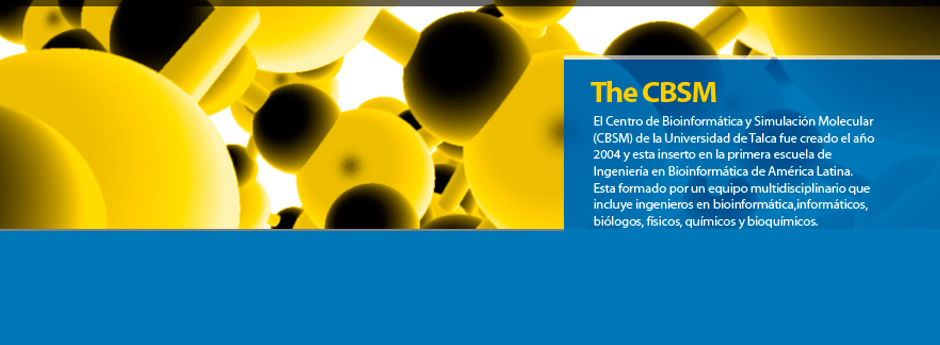

English is the main working language of the workshop. However, as a North-Ibero-American inclusive conference the workshop aims to accept papers to be published in multiple languages spoken on the countries, states, and communities of the entire North-Ibero-American area of influence. It involve, but is not limited to: México, Brazil, Spain, Portugal, USA, Canada, Chile, Ecuador, Basque Country, Catalunya, Valencia, Galicia, etc. Consequently, we accept papers on the following languages: English, Spanish, Portuguese, French, Basque (Euskera), Catalá / Valenciano, and Galego. We also accept bi-lingual posters in two-column format, e.g, English-Basque, English-Spanish, English-Portuguese, Spanish-Galego, etc.
Scope and Target Audience
Last, not the least, the workshop deals with all the Legal, Regulatory, and Bioethics issues emerging from the use of both experimental and modelling and simulation methods in the previous areas. This include, Drug, Gene, Protein, Vaccine, Biomarkers, and Biomaterials patentability, Personalized Medicine and Personal Data Protection, Cybersecurity, Cryptocurrency Mining, Data Protection in Personal Image Processing, Software and Models Copyrights, etc.
Abstract preparation and submission
We strongly recommend you to read carefully the notes to participants at the following page [Instructions to authors] about publication model, copyright, authors responsibilities, etc. Submit your communications in two steps, first submit your title, authors, and abstract. Next, upload your communication after abstract approval.
Steps for Participation
(0) Register, Sign in/Login, to Sciforum platform [Sciforum login] (All the year)
(1) Submit the title and abstract, select a section or workshop (do not upload paper here) [Submit New Abstract] (until Dec-15)
(2) Wait for Sciforum abstract acceptance email, follow the link, and/or login to upload paper, doc and pdf format (until Dec-15)
(3) Download template doc and prepare your communication [IWIMSM Template File.doc] (until Dec-15)
(4) Wait for paper acceptance and publication emails (follow link to proofread your paper) (Asap after upload)
(5) Communicate with chairpersons if corrections are necessary, including past editions (All the year)
(6) Log in to post comments, questions, or answers in a section or one of the workshops (Dec-15 to Dec-20)
(7) Contact chairpersons if you need author (publication) or attendance (posting) certificate for conference and/or workshops (All the year)
Honor Scientific Committee (Chairpersons)
Prof. Gloria Castellano, Email: gloria.castellano@ucv.es
Director of Department of Experimental Sciences and Mathematics,
Catholic University of Valencia (UCV), Valencia, Spain.
Editor of NEREIS, ISSN: 1888-8550, Revista Iberoamericana
Interdisciplinar de Métodos, Modelización y Simulación
Prof. Francisco Torrens, Email: Francisco.Torrens@uv.es
Institute of Molecular Science (ICMol),
University of Valencia (UV), Valencia, Spain.
Prof. Wendy Gonzalez, CBSM Director
Center for Bioinformatics, Simulations and Modelling (CBSM)
Campus Licray, University of Talca, Talca, Chile.
Prof. Jans Alzate Morales, , ICBSM - MOL2NET Contact
CBSM, University of Talca, Talca, Chile.
Prof. Julio Caballero, ICBSM - MOL2NET Contact
Director CBSM, University of Talca, Talca, Chile.
Prof. David Quesada, Email: dquesada@mdc.edu
Director of Dept. of Mathematics,
Miami Dade Colege (MDC), Miami, FL, USA.
Prof. Matthew M. Montemore,
Department of Chemistry & Biomolecular Engineering,
Tulane University, New Orleans, Louisiana, USA.
Prof. Jose L Medina-Franco,
National Autonomous University of Mexico (UNAM), México.
Fellow of The Royal Society of Chemistry, United Kingdom.
Scientific Committee
Prof. Gloria Castellano, Dir. Dept. of Exp. Sci. and Math., Catholic University of Valencia (UCV), Valencia, Spain.
Prof. Francisco Torrens, Inst. of Molecular Science (ICMol), Univ. of Valencia (UV), Valencia, Spain.
Prof. Ingo Dreyer, CBSM, Cent. Bioinfo., Simul. & Model. (CBSM), Univ. of Talca, Talca, Chile.
Dr. Gonzalo Riadi, CBSM, Cent. Bioinfo., Simul. & Model. (CBSM), Univ. of Talca, Talca, Chile.
Dr. Horacio Poblete Vilches, Cent. Bioinfo., Simul. & Model. (CBSM), Univ. of Talca, Talca, Chile.
Dra. Ariela Vergara-Jaque, Cent. Bioinfo., Simul. & Model. (CBSM), Univ. of Talca, Talca, Chile.
Dra. Janin Riedelsberger, Cent. Bioinfo., Simul. & Model. (CBSM), Univ. of Talca, Talca, Chile.
Prof. Marcus Tullius Scotti, Univ. Federal da Paraíba, Joao Pessoa, Paraíba, Brasil.
Prof. Carolina Horta Andrade, Univ. Federal de Goias, Setor Leste Universitario, Goiania, Brazil.
Prof. Dr. Aníbal Thiago Bezerra (lead chairman), Federal University of Alfenas (UNIFAL-MG), Alfenas, Minas Gerais, Brazil.
Prof. Dr. Artur Justiniano Roberto Júnior, Federal University of Alfenas (UNIFAL-MG), Alfenas, Minas Gerais, Brazil.
Prof. Dr. Ihosvany Camps Rodriguez, Federal University of Alfenas (UNIFAL-MG), Alfenas, Minas Gerais, Brazil.
Prof. Dr. Frederico Augusto Toti, Federal University of Alfenas (UNIFAL-MG), Alfenas, Minas Gerais, Brazil.
Prof. Dr. Samuel Bueno Soltau, Federal University of Alfenas (UNIFAL-MG), Alfenas, Minas Gerais, Brazil.
Prof. Oscar M. Rivera Borroto, Mathematics, Houston Community College, Houston, TX, USA.
Prof. James Robert Green, Dept. of Systems and Comput. Eng., Carleton University, Canada.
Prof. Carlos Velazquez Martinez, Fac. Pharm. & Pharm. Sci., University of Alberta, Canada.
Prof. Jorge Gálvez, Dept. of Physical Chemistry, Faculty of Pharmacy, University of Valencia, Spain.
Prof. Ramon García-Domenech, Dept. of Phys. Chem., Fac. of Pharm., Univ. of Valencia, Spain.
Prof. Enrique Onieva, DEUSTOTECH Institute, University of Deusto, Bilbao, Spain.
Prof. Facundo Pérez Giménez, Dept. of Phys. Chem., Fac. of Pharm., Univ. of Valencia, Spain.
Dr. Riccardo Zanni, Dept. Phys. Chem., Fac. of Pharm., Univ. of Valencia, Spain.
Prof. Alejandro Pazos, Ph.D., M.D., Dir. Dept. of Comput., Univ. of Coruña (UDC), Coruña, Spain.
Prof. Cristian R. Munteanu, Department of Computation, University of Coruña (UDC), A Coruña, Spain.
Prof. Juan M. Ruso, Dept. of Applied Physics, University of Santiago de Compostela (USC), Spain.
Dr.Maria Galvez-Llompart, Dept. of Phys. Chem., Fac. of Pharm., Univ. of Valencia, Spain.
Prof. Jesus V. De Julián Ortiz, Dept. Phys. Chem., Fac. of Pharm., Univ. of Valencia, Spain.
PhD. Gisselle Pérez-Machado, EPIDISEASE S.L. CIBERER, Valencia, Spain.
Prof. Natalia D.S. Cordeiro, Department of Chemistry and Biochemistry, University of Porto, Porto, Portugal.
Dr. Guillermin Agüero, CIIMAR, Interdisc. Centre of Marine and Environ. Research, Univ. of Porto, Portugal.
Prof. Yovani Marrero-Ponce, University San Francisco de Quito, Cumbayá, Quito, Ecuador.
Prof. Eduardo Tejera, Bio-Cheminformatics, Universidad de Las Americas (UDLA), Quito, Ecuador.
Dr. Carlos Polanco González, Dept. of Mathematics, Universidad Nacional Autonoma de México (UNAM), México.
Dr. Jose Correa Basurto, Escuela Superior de Medicina, IPN, México.
Dr. Fabien Plisson. CINVESTAV- UGA-LAENGEBIO Mexico.
Honor Advisory Chairman
Prof. Humberto González-Díaz H., IKERBASQUE Professor, Email: mol2net.chair@gmail.com
(1) Department of Organic and Inorganic Chemistry and Basque Centre for Biophysics,
University of the Basque Country UPV/EHU , 48940, Leioa, Biscay, Spain.
(2) IKERBASQUE, Basque Foundation for Science , 48011, Bilbao, Biscay, Spain.
ICTs & Regulatory Affairs Chairperson
Dr. Aliuska Duardo-Sanchez (Law.Lic., Ph.D. TICs & Legal Sciences),
Chair in Law & The Human Genome Research Group, Faculty of Law,
University of The Basque Country UPV/EHU, Leioa (Bilbao), Biscay,
PANELFIT H2020, Project Manager & EDC Board Coordinator, Europe Commission.
Congress Chair
Professor Jans Alzate Morales, Centre for Bioinformatics and Molecular Simulations (CBSM), Faculty of Engineering, University of Talca
10. MOL2NET'18 Abstracts & Workshops
MOL2NET'18 Transversal Workshops



You are cordially invited to participate in BIOCHEMPHYS-01: International Franco-Tunisian workshop on Med. Chem., Biotech., and Phys. Chem., Cnam, Paris, France, 2018. This is the first International Franco Tunisian Workshop on Medicinal Chemistry, Biotechnology, and Physical Chemistry at Cnam, Paris, France, 2018. This scientific workshop is organized by Professors and Researchers of the Laboratory of Molecular Chemistry (CMGPCE) and the Laboratory of Systems & Applications of Information & Energy Technologies (SATIE) (at Cnam, Paris, France) with their Tunisian colleagues who participate to the UTIQUE Hubert Curien Program (PHC UTIQUE managed by Campus France and CMCU). The Tunisians partners are Professors and Researchers at the Laboratory of interfacing and advanced materials (LIMA, Monastir University), Biotechnology Center of Sfax (CBS), the Higher Institute of Biotechnology of Sfax (ISBS) and Unité de Recherche "Physique des Matériaux Isolants et Semi-isolants" (PMISI, Faculty of Sciences of Sfax). The host institution, Conservatoire national des arts et métiers, Cnam, is a higher education and research institution dedicated to adult continuing education. It holds a unique, original position in the French educational landscape with nearly 150 educational centers in France and a large presence worldwide. Since its foundation in 1794, Cnam has closely combined academic knowledge and professional skills with a strong relationship with the industry. In a context marked by new economic and societal expectations, the Research in Cnam is very dynamic, and guaranty a high-level scientific positioning. It covers a large variety of domains varying from chemistry, biology, bio-informatic to physics, mathematics and material science. This workshop series is planned to be held each academic term an. It is devoted to fostering both education and research in multidisciplinary sciences with emphasis in Molecular Sciences (Organic and Medicinal Chemistry), Physical-chemistry, Biochemistry, Nanotechnology, Materials Sciences, Cheminformatics, Physics, …. Researchers and students from other institutions around the world are welcomed. All accepted papers receive a DOI number and are published online before being published at the end of year on the conference proceedings book with ISSN and ISBN numbers. The BIOCHEMPHYS-01 is in large measure targeted for graduate and PhD students, chemists and bioinformaticians researchers and scientists involved in areas related to Medicinal Chemistry, Cheminformatics and /or Bioinformatics, Biophysics, Physics, Protein Engineering, Biosensors and Chemical Sensors, Biomarker detection, Modelling and Simulation. Research work related with the use of new materials for photocatalytic applications and energy storage are also welcome.
Steering Committee (Chairpersons)
Dr. Maité SYLLA (Associated Professor) Email: maite.sylla@lecnam.net
Conservatoire National des Arts et Métiers (Cnam), Laboratory of Molecular chemistry, Chemical and Energy Process Engineering, CMGPCE, EA7341, Paris, France
Dr. Najla FOURATI (Associated Professor) Email: najla.fouratiennouri@lecnam.net
Conservatoire National des Arts et Métiers (Cnam), Laboratory of systems & application of information & energy technologies, SATIE UMR CNRS 8029, Paris, France.
Dr. Chouki ZERROUKI (Associated Professor) Email: chouki.zerrouki@lecnam.net
Conservatoire National des Arts et Métiers (Cnam), Laboratory of systems & application of information & energy technologies, SATIE UMR CNRS 8029, Paris, France.
Scientific Committee
Pr. Marc PORT, Professor of Organic and Medicinal Chemistry; Email: marc.port@lecnam.net
Conservatoire National des Arts et Métiers (Cnam), Laboratory of Molecular chemistry, Chemical and Energy Process Engineering CMGPCE, EA7341, Paris, France
Pr. Mathieu MONTES, Professor of Bioinformatics Email: matthieu.montes@lecnam.net
Conservatoire National des Arts et Métiers (Cnam), Laboratory of genomics, bioinformatics and applications, Paris, France
Dr. Mehdi El ARBI Assistant professor of Biology and Biotechnology; Email: mehdi.elarbi@isbs.usf.tn
Higher Institute of Biotechnology of Sfax (ISBS), Tunisia
Pr. Mandouh BEN ALI, Professor of Microbiology Email: mamdouh.benali@cbs.rnrt.tn
Laboratory of Microbial Biotechnology and Enzyme Engineering, Center of biotechnology of Sfax (CBS), Tunisia
Pr. Hajer GUERMAZI, Professor of Physics; Email: hajer.guermazi@gmail.com
Faculty of sciences of Sfax, Research Unit "Physique des Matériaux Isolants et Semi-isolants", PMISI, Sfax, Tunisia
Pr. Ali OTHMAN, Professor of Biophysics; Email: ali.othmane54@gmail.com
Faculty of Medicine of Monastir, Laboratoire d'interface et de matériaux avancés, LIMA, Monastir, Tunisia.
Pr. Mustapha MAJDOUB, Professor of Polymers; Email: mustaphamajdoub@gmail.com
Faculty of Sciences of Monastir, Laboratoire d'interface et de matériaux avancés, LIMA, Monastir, Tunisia
Pr. Moncef MSADDEK, Professor of Organic Chemistry, Email: moncef.msaddek@fsm.rnu.tn
Faculty of Sciences of Monastir, Laboratory LR11ES39, Heterocyclic chemistry team, Monastir, Tunisia
Dr. Girish GUPTA, P, Associate Professor of Organic and medicinal chemistry; Email: girish_pharmacist92@rediffmail.com
M.M.College of Pharmacy, Maharishi Markandeshwar, Mullana, Amabala, Haryana, India
Pr. Riadh HAMMAMI, Microbiology, Faculty of Health Sciences, University of Ottawa, Canada
Email: Riadh.hammami@uottawa.ca, Website: http://hammamilab.org/
Pr. Elisa JORGE RODRIGUEZ, Professor of Pharmaceutical Email: elisa@uclv.edu.cu
Department of Pharmacy, Universidad Central "Marta Abreu" de Las Villas, Cuba
Honor Advisory Committee
Pr. Clotilde FERROUD, Director of research of Conservatoire national des arts et métiers (Cnam), Paris, France
Email: clotilde.ferroud@lecnam.net (Institution site: http://www.cnam.fr/)
Pr. Slim ABDELKAFI, Director of the National School of Engineers of Sfax (ENIS), Tunisia.
Email: slim.abdelkafi@enis.usf.tn (Institution site: http://www.enis.rnu.tn)
Pr. Mohamed KOUBAA, Director of Higher Institute of Biotechnology of Sfax, (ISBS), Tunisia.
Email: mohamed.koubaa@isbs.usf.tn (Institution site: http://www.isbs.rnu.tn )
Pr. Hammadi AYADI, CEO of Sidi Thabet BiotechPole, Tunisia
Email: ayadi.hammadi@gmail.com (Institution site: http://www.biotechpole.tn)
Dr. Moez BEN ALI, Oncology Region Europe Director at Novartis, France
Email: moez.ben_ali@novartis.com, (Institution site: https://www.novartis.fr/)
Pr. Sonia ARRASATE, Department of Organic Chemistry II, University of Basque Country (UPV/EHU), 48940, Leioa, Biscay, Spain.
Email: sonia.arrasate@ehu.eus , (Institution site: https://www.ehu.eus/)
Advisory Publication Chairs
Pr. Humbert GONZALEZ-DIAZ, IKERBASQUE Professor, Email: mol2net.chair@gmail.com
(1) Department of Organic Chemistry II, University of the Basque Country UPV/EHU, 48940, Leioa, Biscay, Spain.
(2) IKERBASQUE, Basque Foundation for Science, 48011, Bilbao, Biscay, Spain.
Dr. Aliuska DUARDO-SANCHEZ (Law.Lic., Ph.D. TICs & Legal Sciences) Post-Doctoral Research Associate,
Program Juan de La Cierva (JdC), Chair in Law and The Human Genome,
Department of Public Law, Faculty of Law, University of Basque Country (UPV/EHU),
Biscay, Leioa 48940, Spain.
CHEMBIOPHYS Sponsors


CHEMBIOMOL-04 published the works presented at the Meeting of Young Researchers in Structural Computational Biology (EJIBCE 2018), see last edition (EJIBCE 2017), aims at bringing together the Portuguese scientific community working in the field in a free-of-charge meeting, to provide a forum for discussion and sharing with no strings attached. This Sixth edition builds on the success of previous editions in Porto, Lisbon, Coimbra, Oeiras and Coimbra, which gathered ca. 60 participants and had over 10 oral communications in each edition. Given the current economic situation in Europe, and particularly in Portugal, it is increasingly harder to obtain funding and to have an optimistic approach to science and collaborations. Besides, the recent austerity measures put in place by the Portuguese government led many researchers to join groups and institutes abroad, and eventually lose touch with the Portuguese scientific community and developments. After obtaining a doctoral degree or finishing a postdoctoral appointment, many Portuguese scientists abroad look back to their country looking for an opportunity to continue their careers and contribute to the development of Portuguese science. Others wish to remain abroad, but at the same time reach out to the Portuguese community and cultivate stronger ties to its researchers. However, what groups are there on Computational Structural Biology? What do they actually focus on? Are they open to collaborations? This meeting was created in order to answer these and other similar questions. Its main goal is to provide a simple no-frills environment where Portuguese researchers in Computational Structural Biology, active both in Portugal and abroad, can meet and get to know each other’s research and ambitions. Ultimately, we hope that in doing so, we will be able to stimulate new collaborations and broaden the horizons of the Portuguese community of Computational Structural Biologists. EJIBCE 2018 builds up on the format of previous editions, focusing on a small number of oral communications interspersed with several breaks to encourage discussion and exchange of ideas. Throughout the day, 12 researchers will present their results. Seven will be selected from the submitted abstracts by the Scientific Committee, based on the quality and originality of the work, and will be given 15 minutes to speak, followed by a short discussion. The remaining 5 oral communications will be delivered by invited keynotes, who will be given 25 minutes to speak plus 10 for discussion.
Invited Keynotes: Diogo Santos-Martins (Scripps Research Institute, California, USA), Ana Newton (Yale University, USA), João Henriques (University of Copenhagen, Denmark), Marta Carneiro (ZoBio B.V., The Netherlands), Joana Pereira (Max Planck Institute, Tübingen, Germany), Website: http://ejibce.github.io
Statement of Responsibility. All materials and services on this website are provided without warranties. The content published in these pages may contain errors for which the organization assumes no liability or responsibility. The content is also subject to periodic changes without the duty of notice. Any doubts and questions should be addressed to the organization by email (ejibce@biosim.pt). Registration to this event implies acceptance of these conditions.
Congress Chairs
Dr. Maité SYLLA, Cnam, Paris, France
Dr. Najla FOURATI ENNOURI, Cnam, Paris, France
Dr. Chouki ZERROUKI, Cnam, Paris, France
Dr. Aliuska DUARDO-SANCHEZ, UPV/EHU, Faculty of Law, Bilbao, Spain
Prof. Dr. Humbert GONZÁLEZ-DÍAZ, UPV/EHU, Faculty of Science and Technology, Bilbao, Spain
Show all accepted abstracts (5) Hide accepted abstracts (5)
List of Accepted Abstracts (5) Toggle list
13. Session-13 (Empty)
Empty
Congress Chairs
Prof. Dr. Terace Fletcher, Academic Dean and Professor, West Coast University, Miami Campus, FL, USA.
Professor Melissa Cueto, MAInstructor II, West Coast University, Miami, FL, USA, Adjunct Prof., University of Miami, Coral Gables, FL, USA.
Prof. Dr. Maykel Cruz-Monteagudo, West Coast University, Miami Campus, FL, USA.
15. Session 15 (Empty)
Empty
Congress Chairs
Prof. Dr. Francisco Torrens, Institute of Molecular Science (ICMol), University of Valencia (UV), Valencia, Spain.
Prof. Dr. Gloria Castellano, Director of Department of Experimental Sciences and Mathematics, Catholic University of Valencia (UCV), Valencia, Spain.





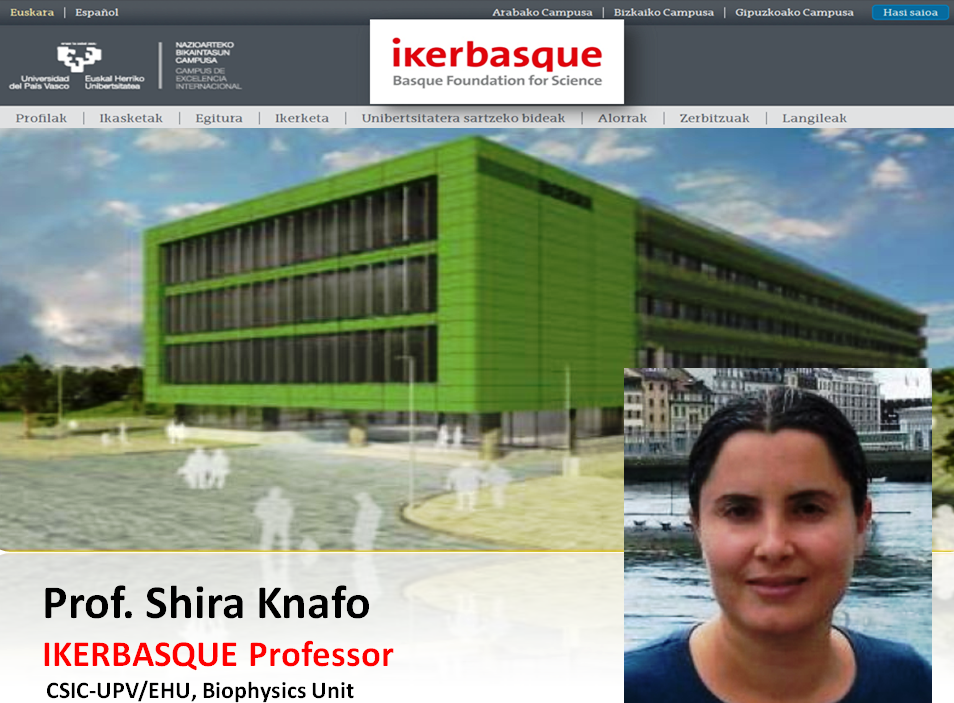

































































































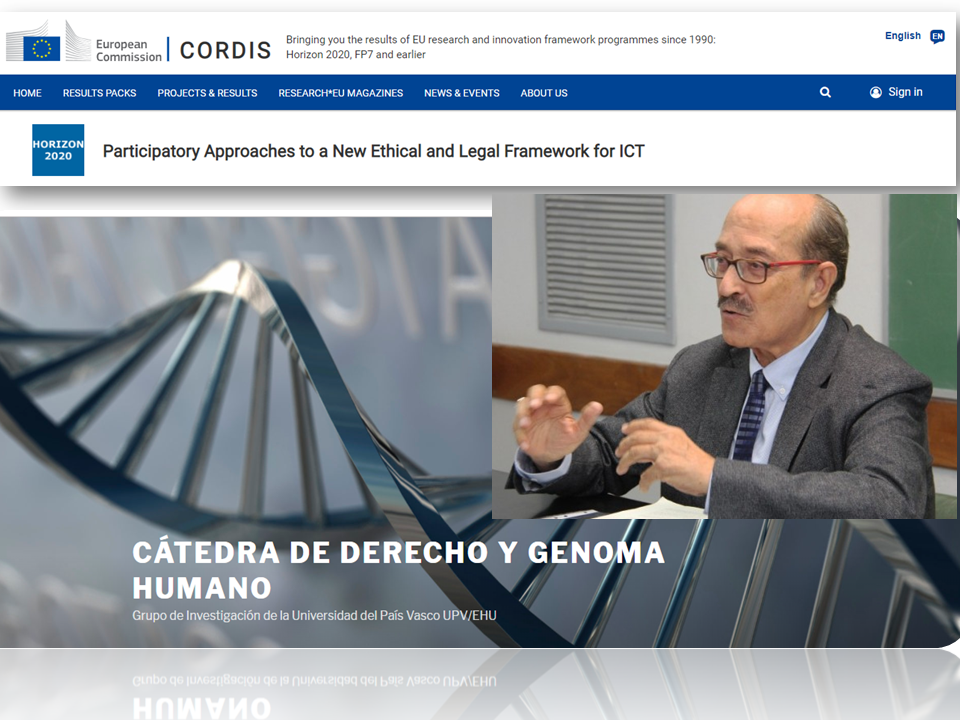
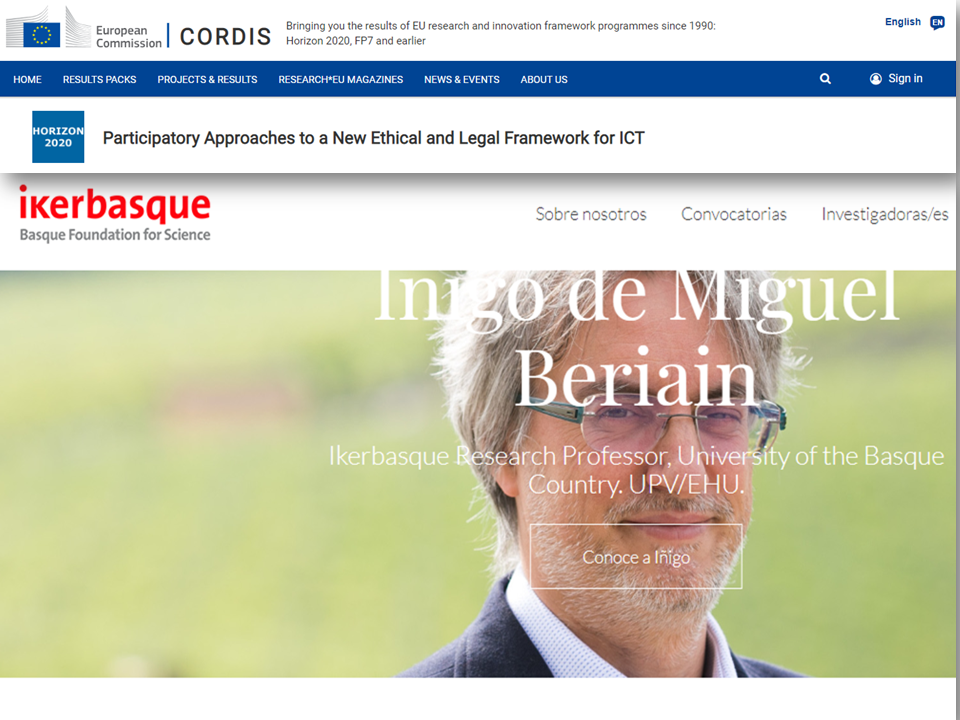
 LAWSci Workshop Chairperson
LAWSci Workshop Chairperson


